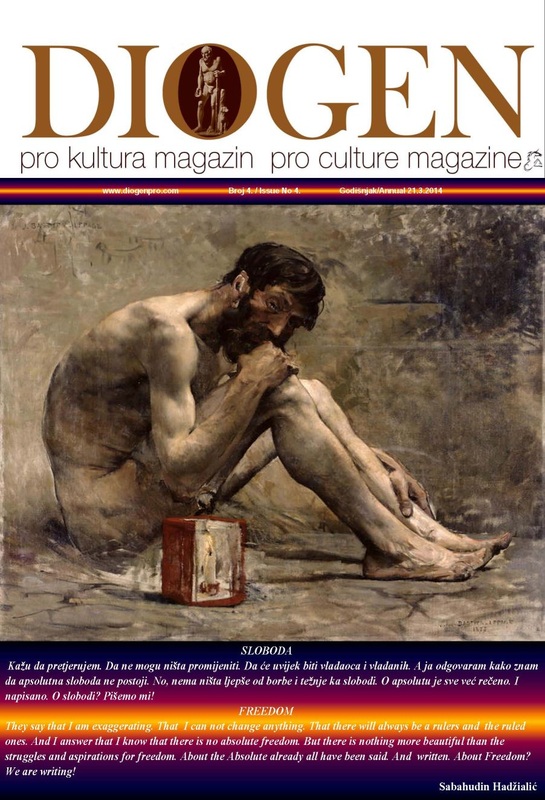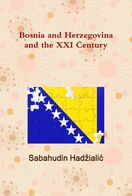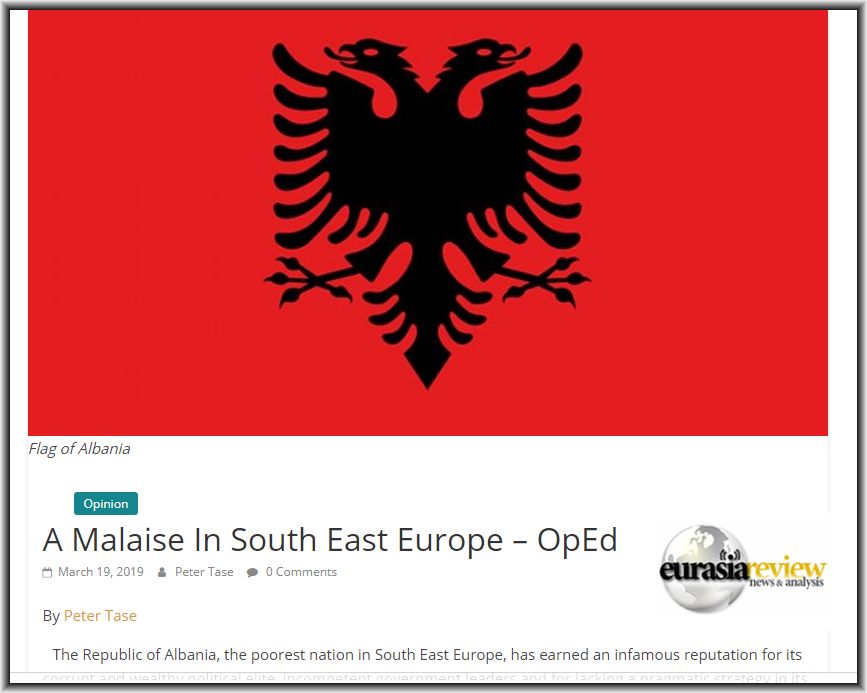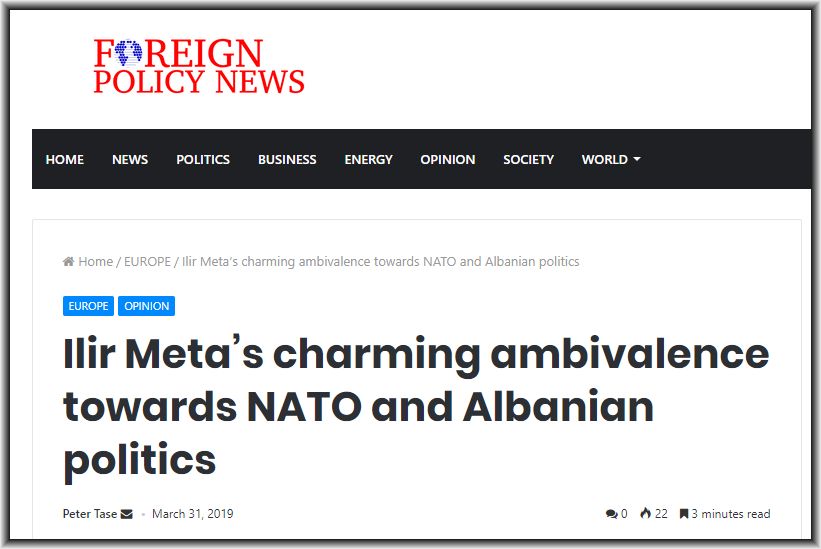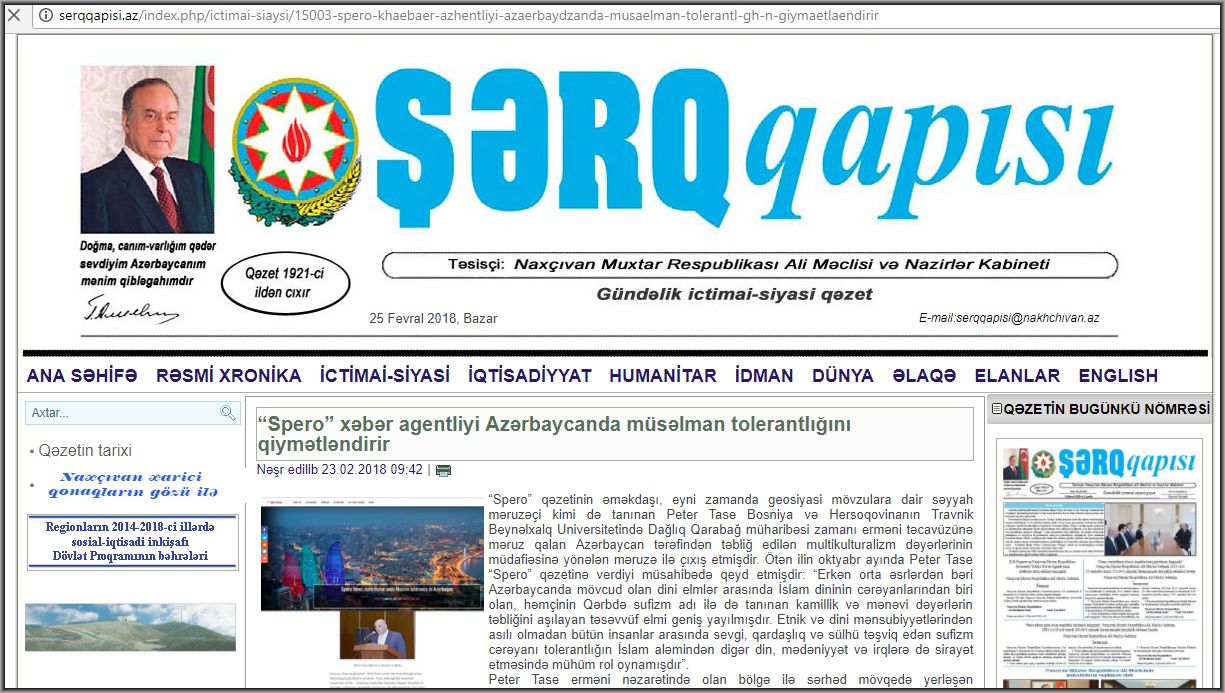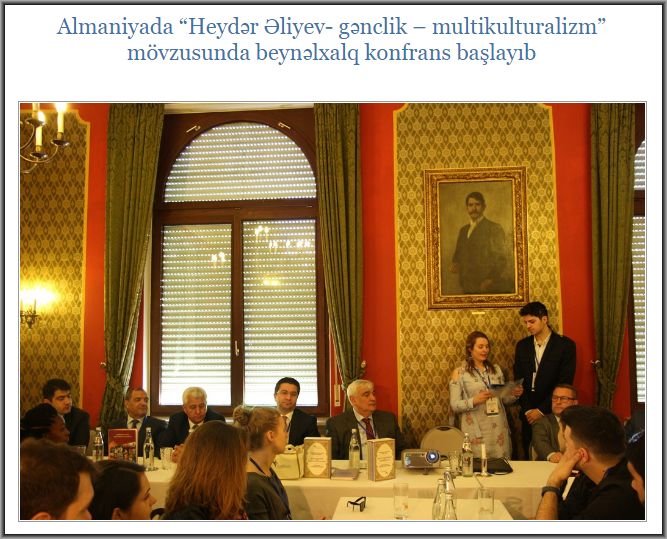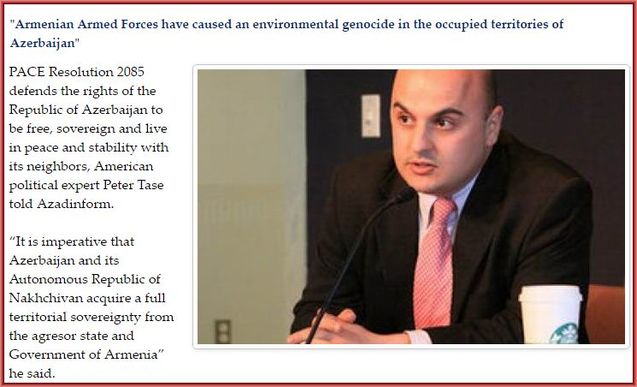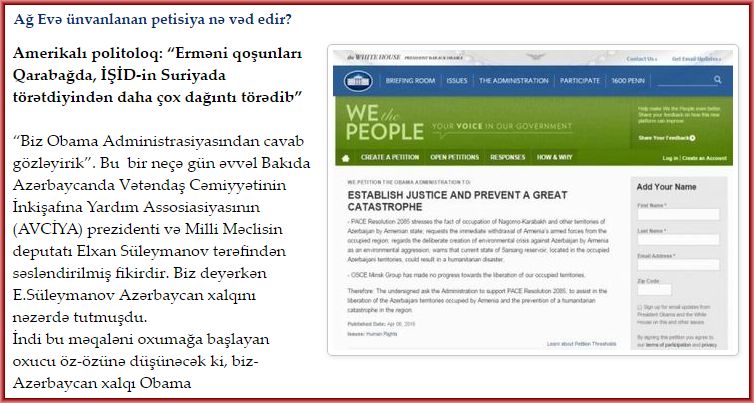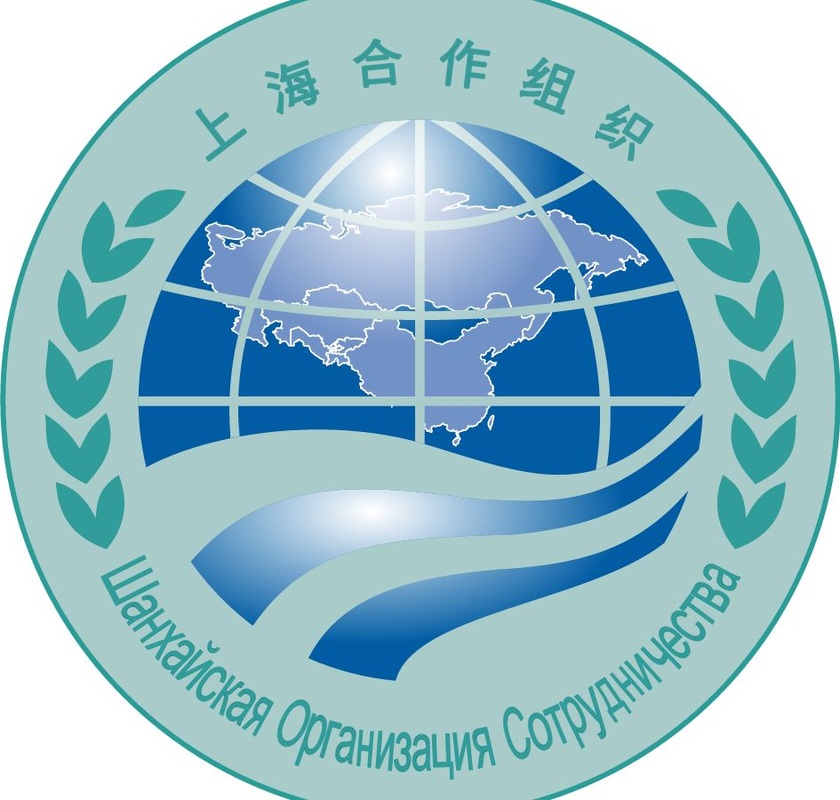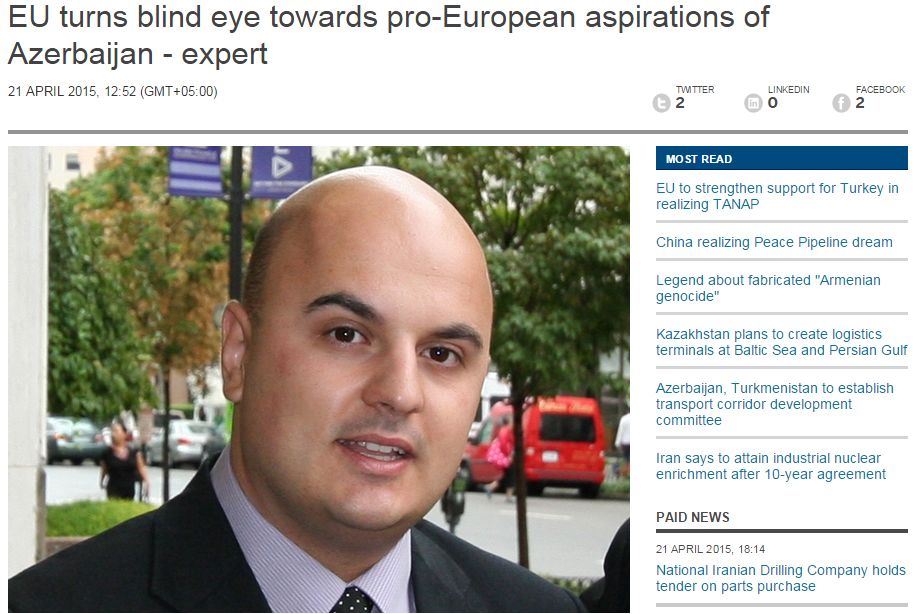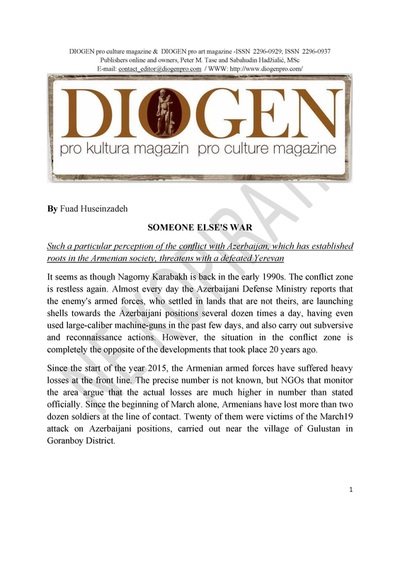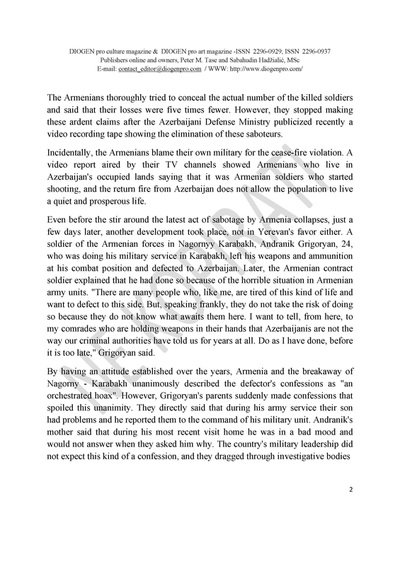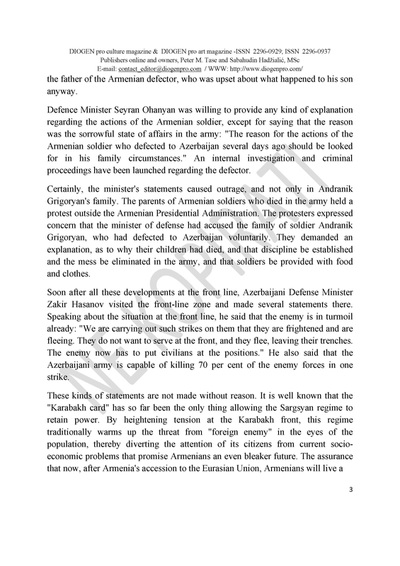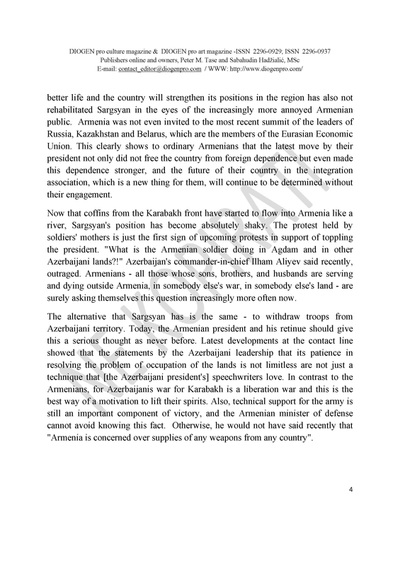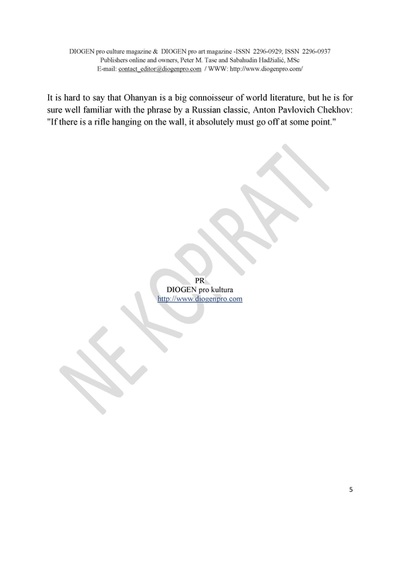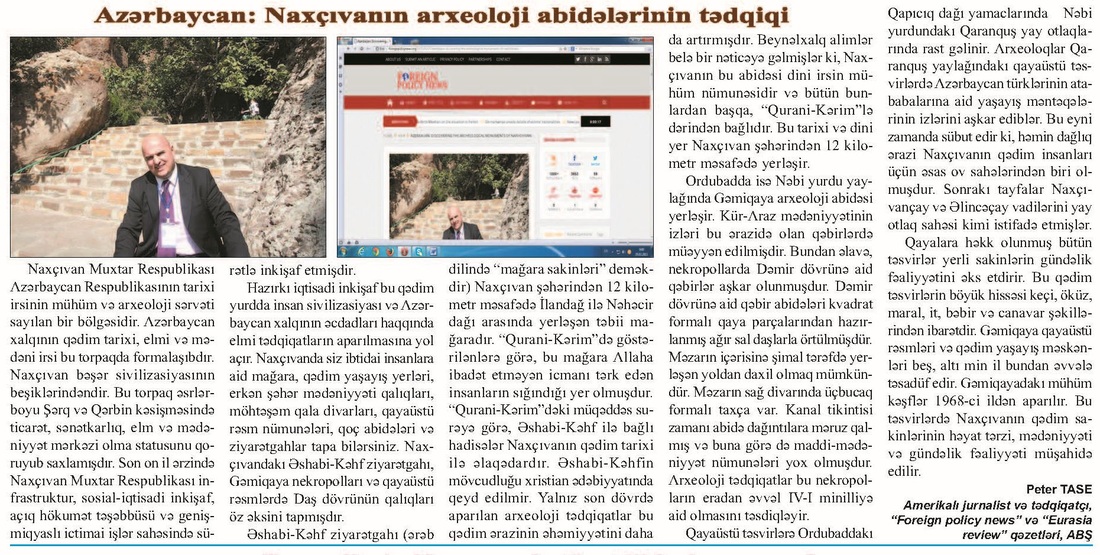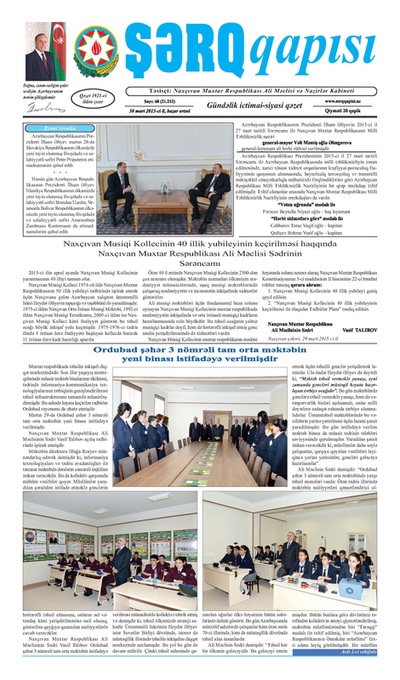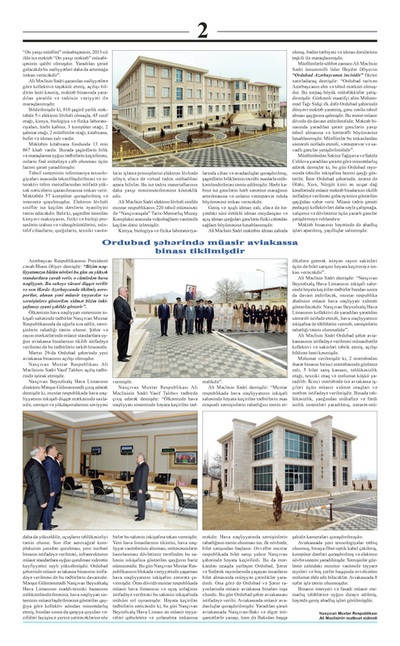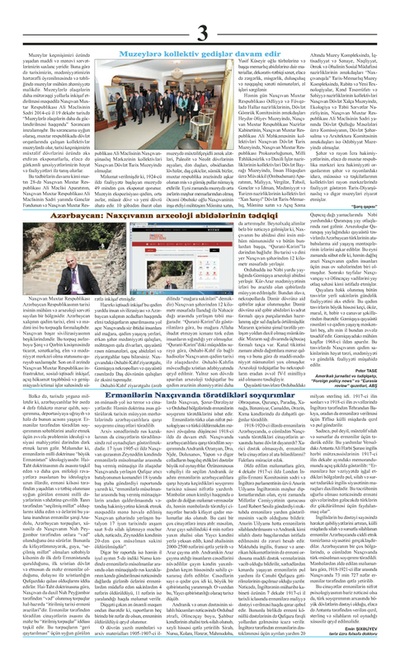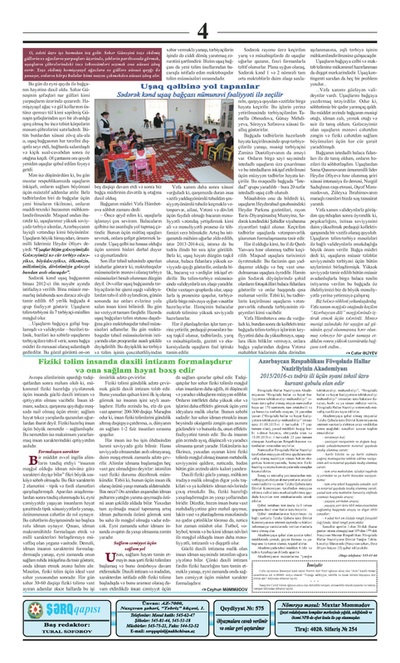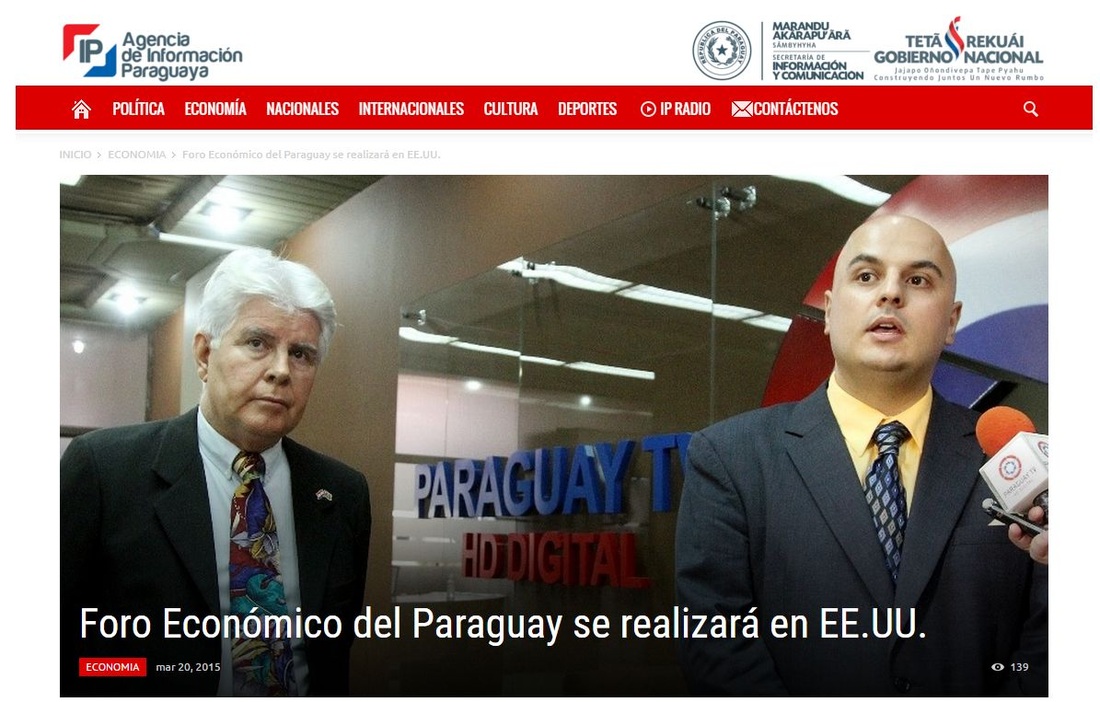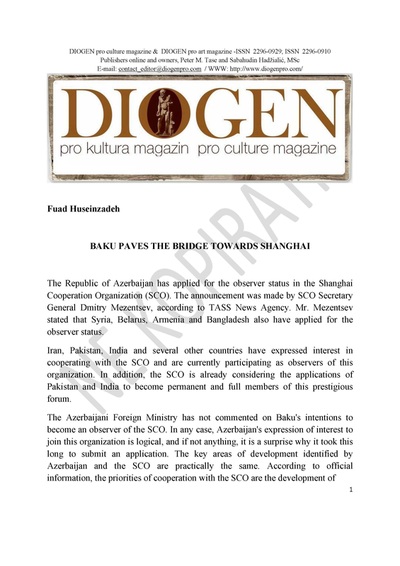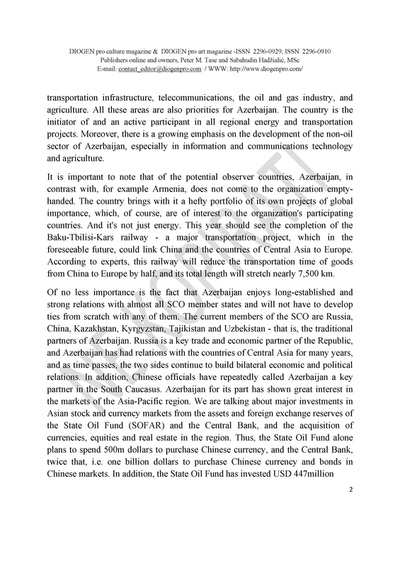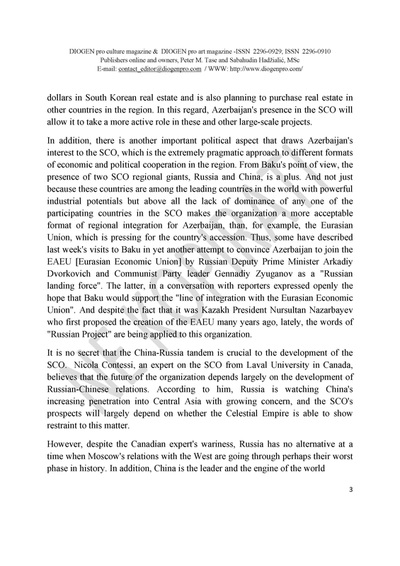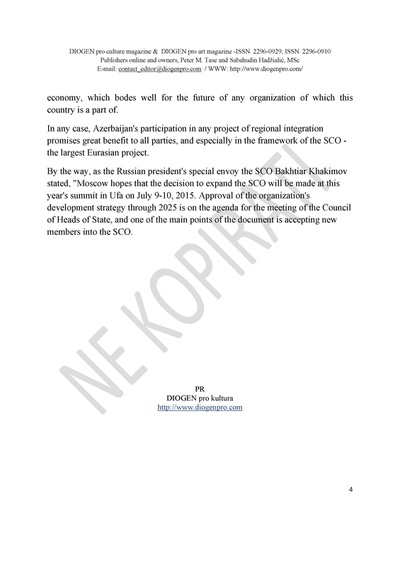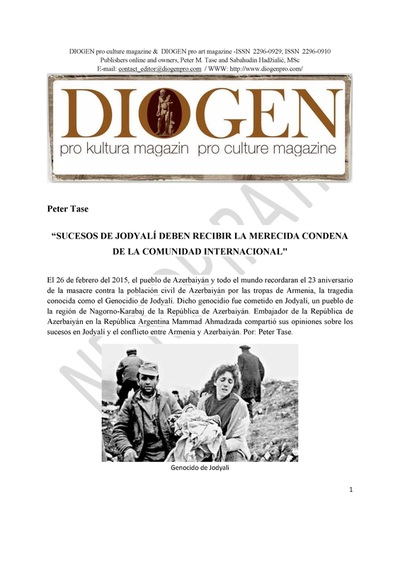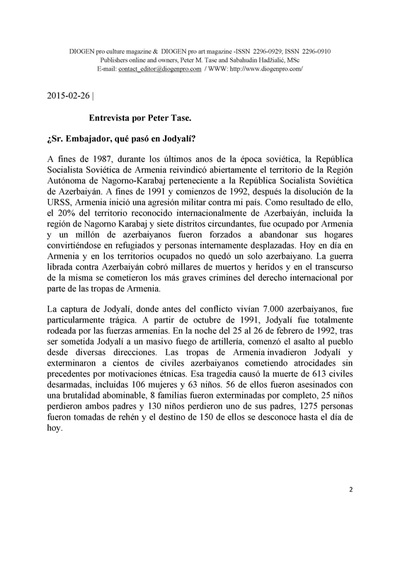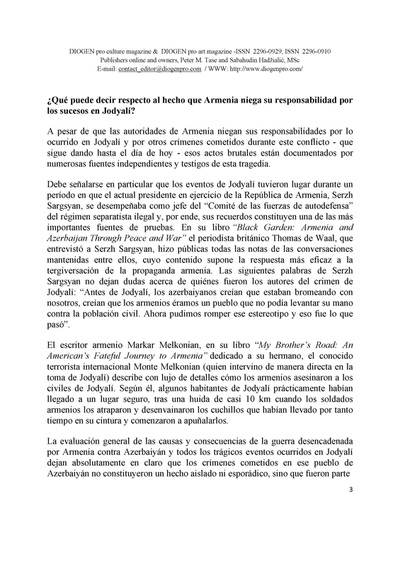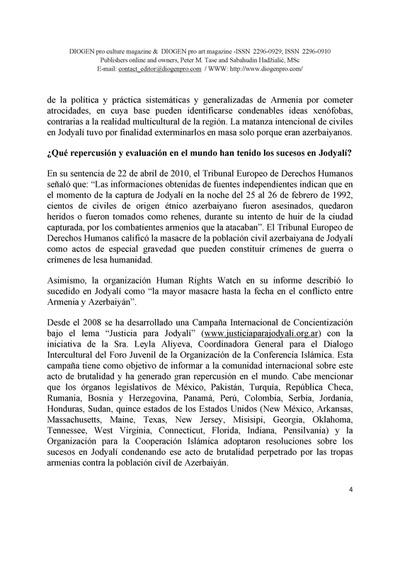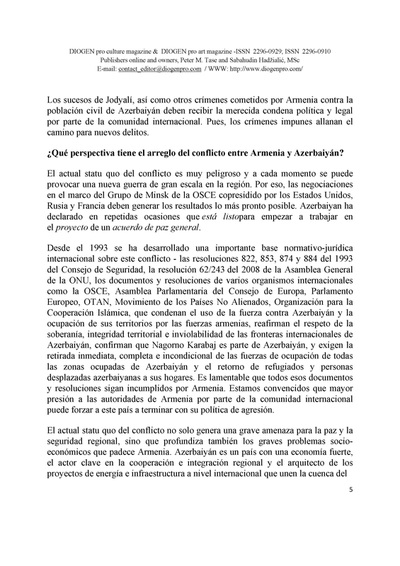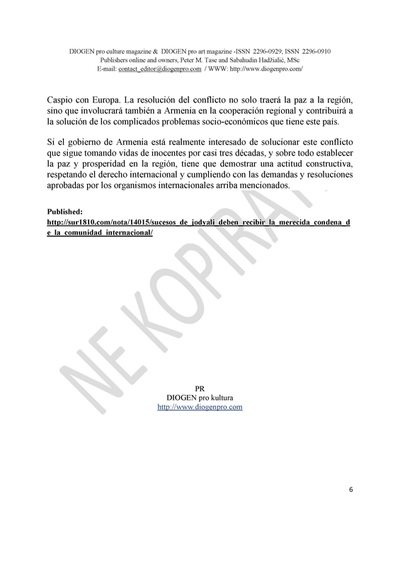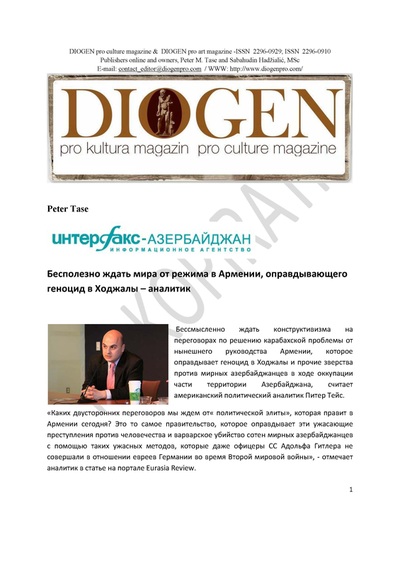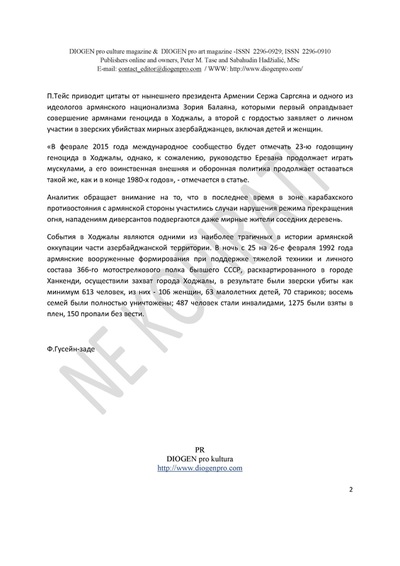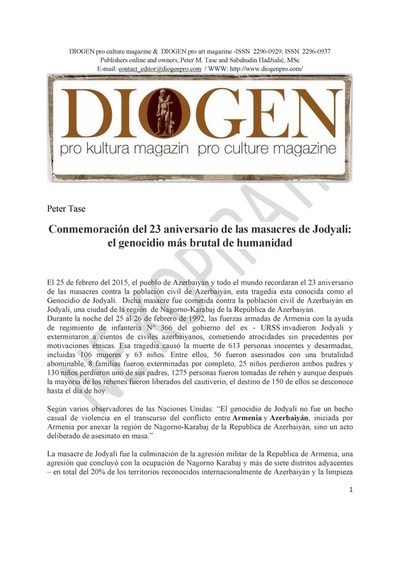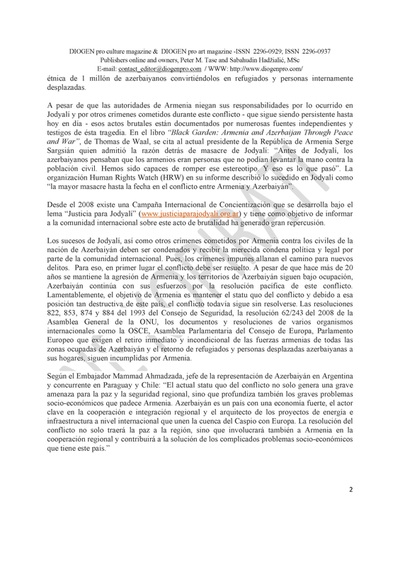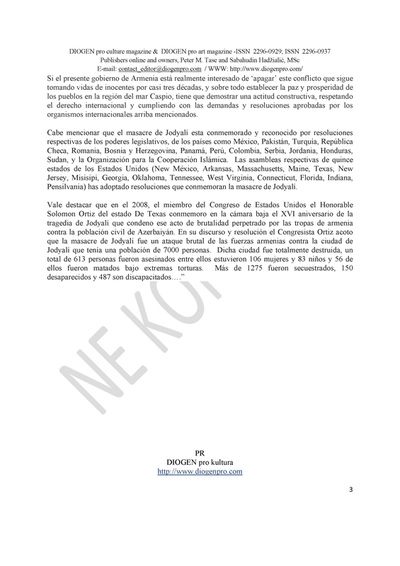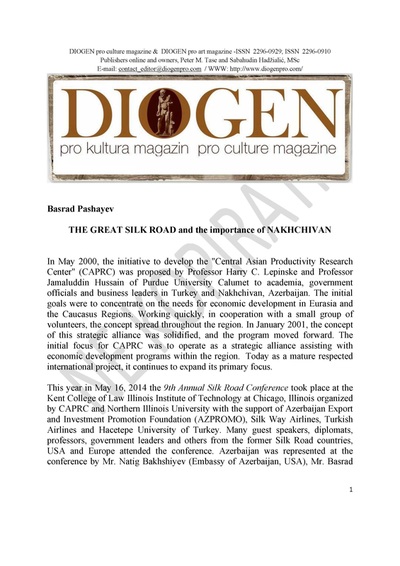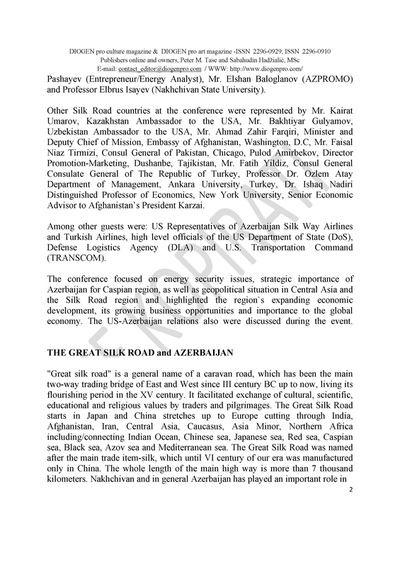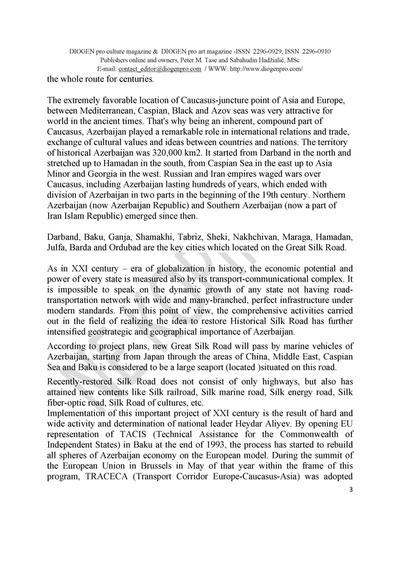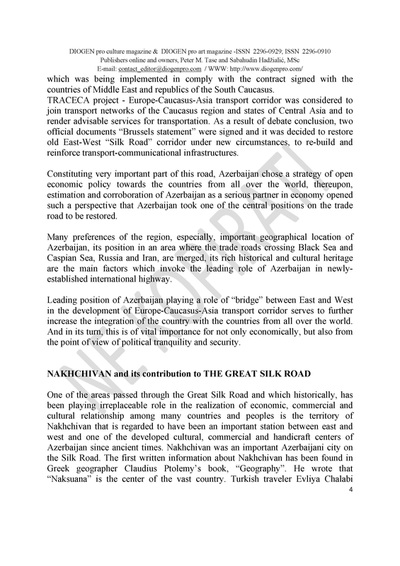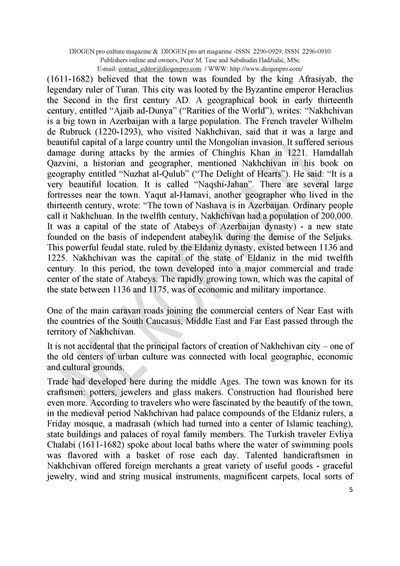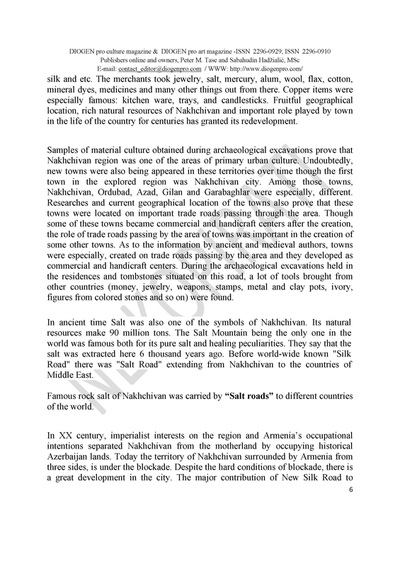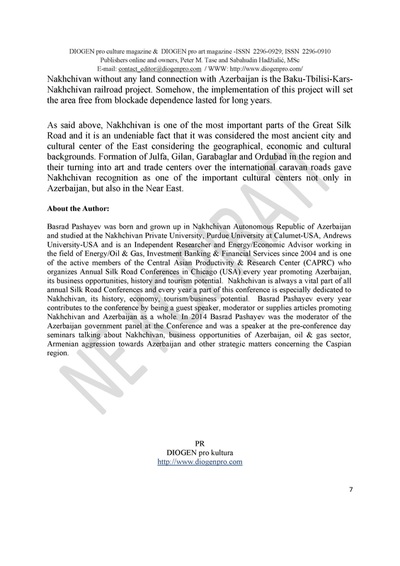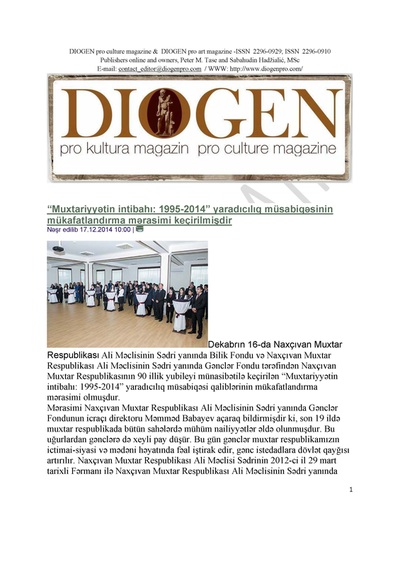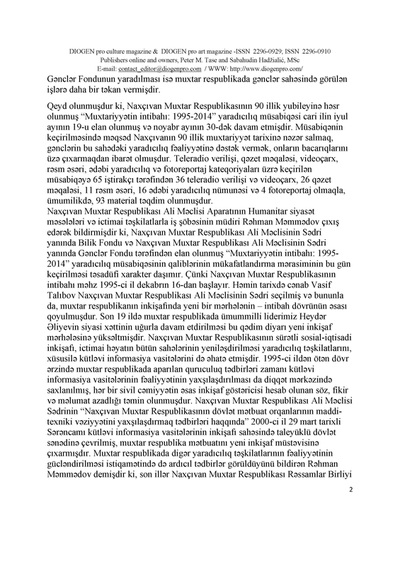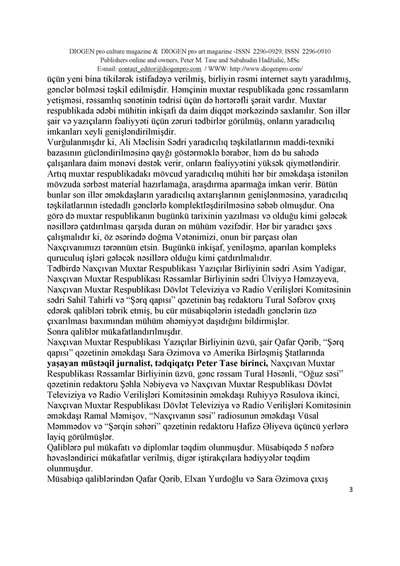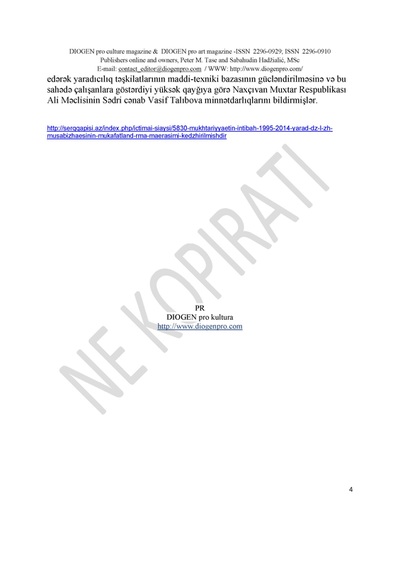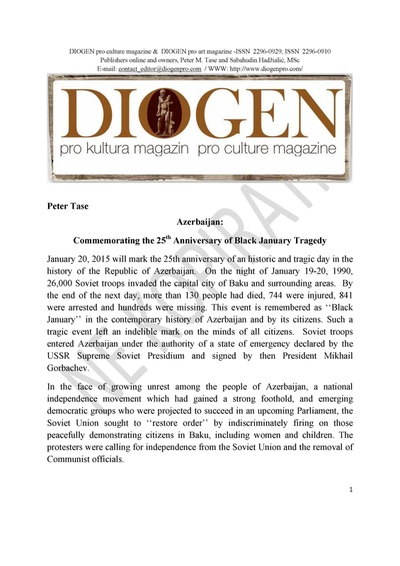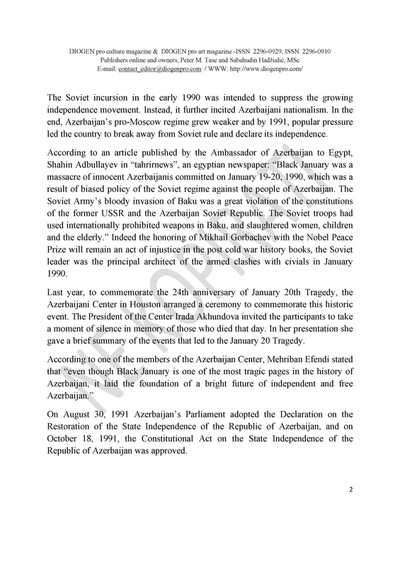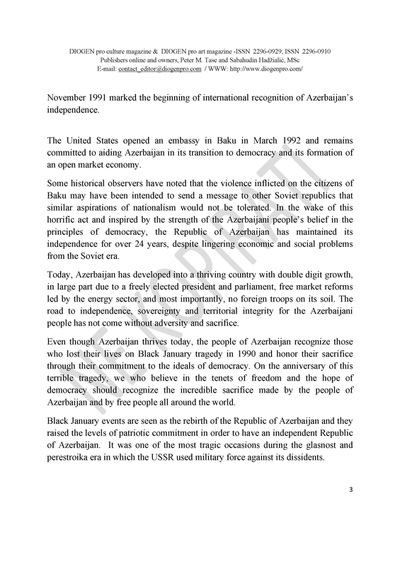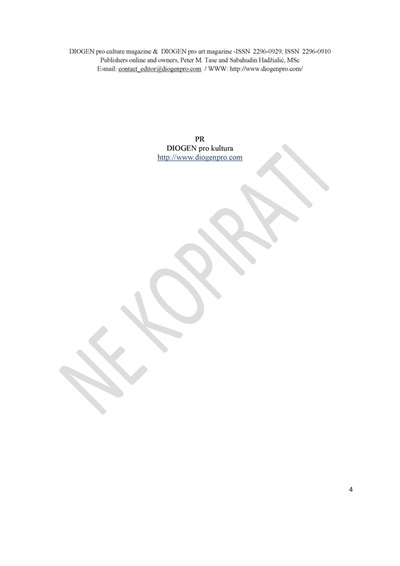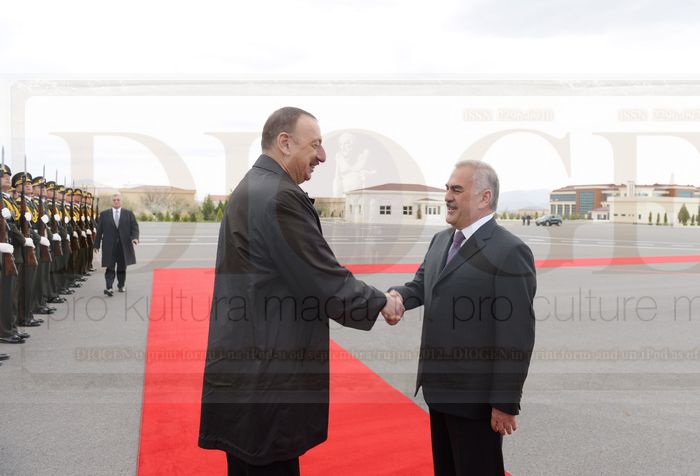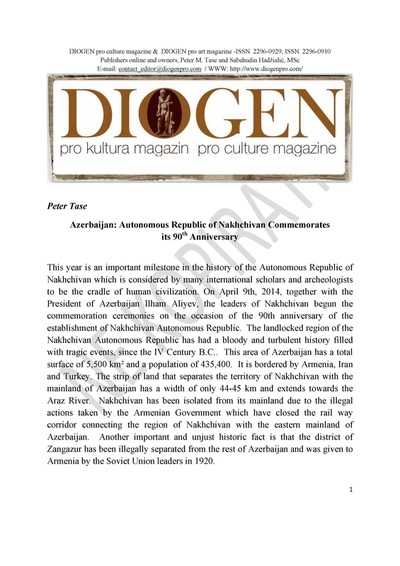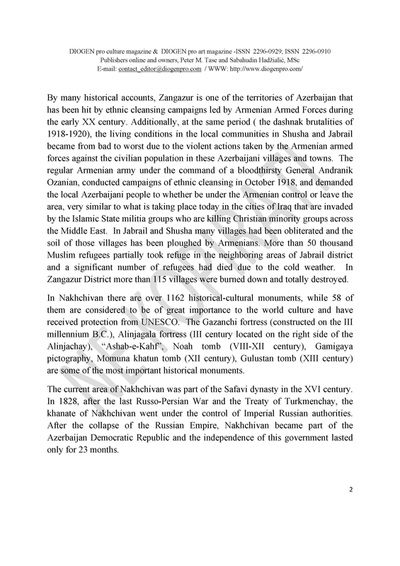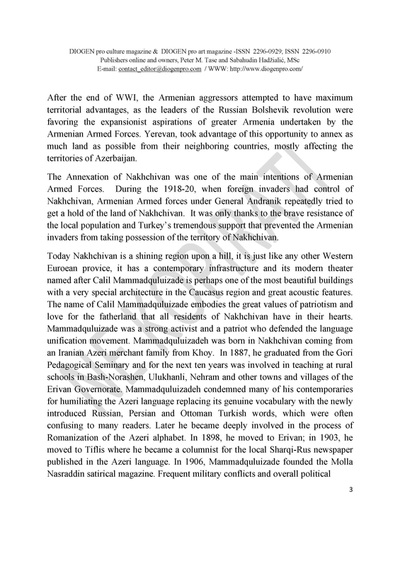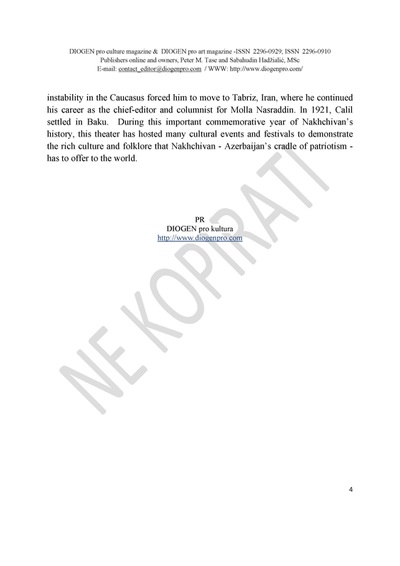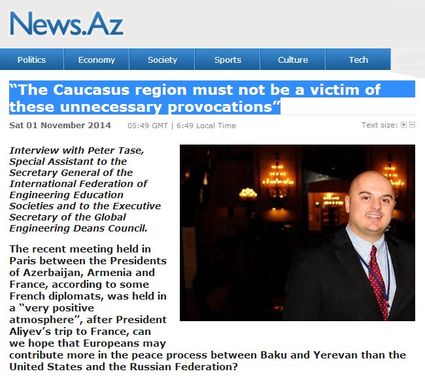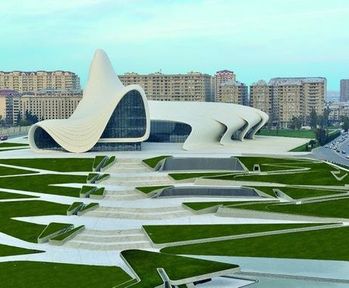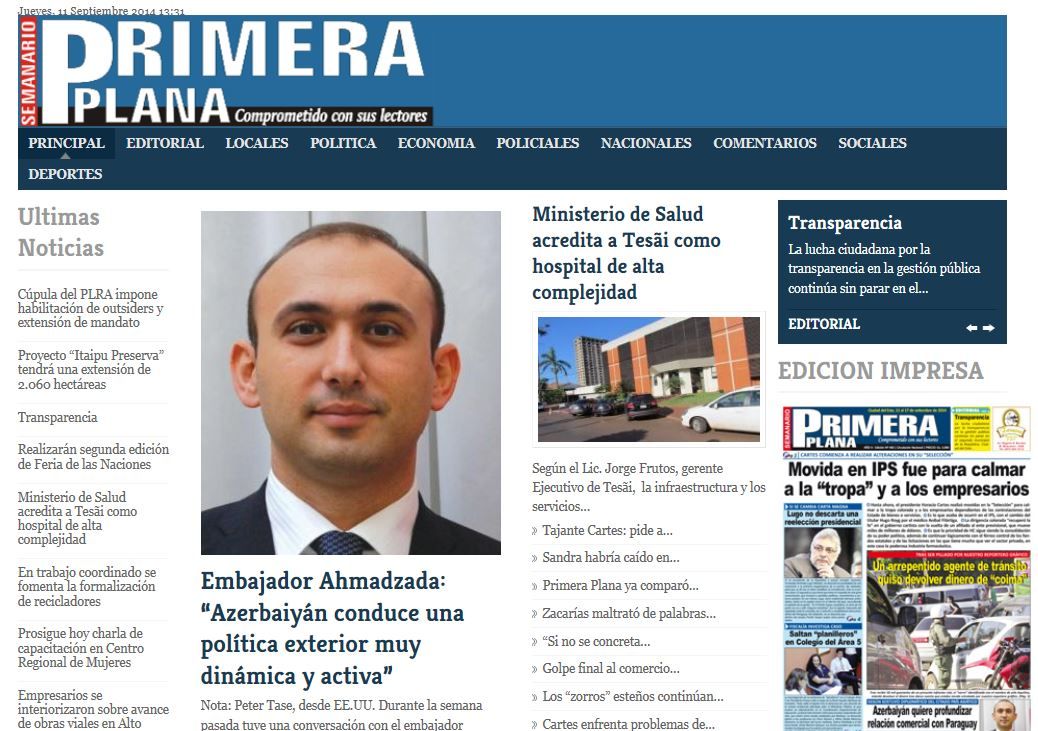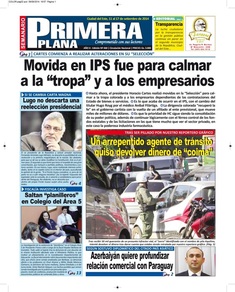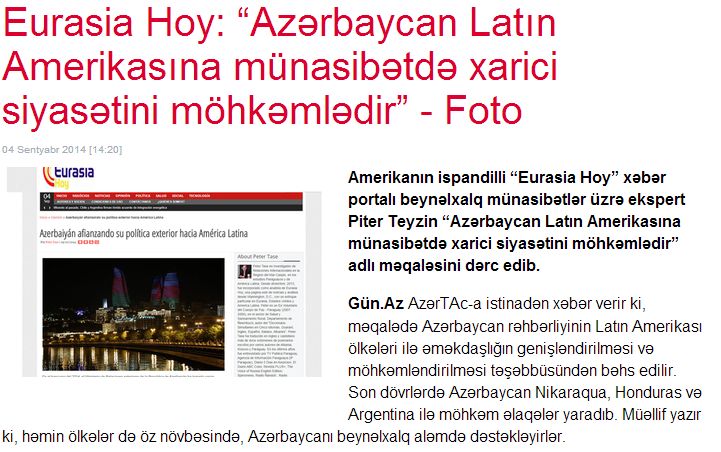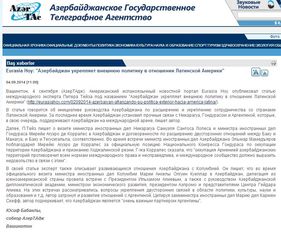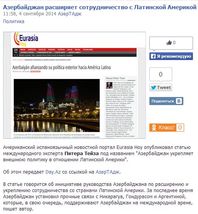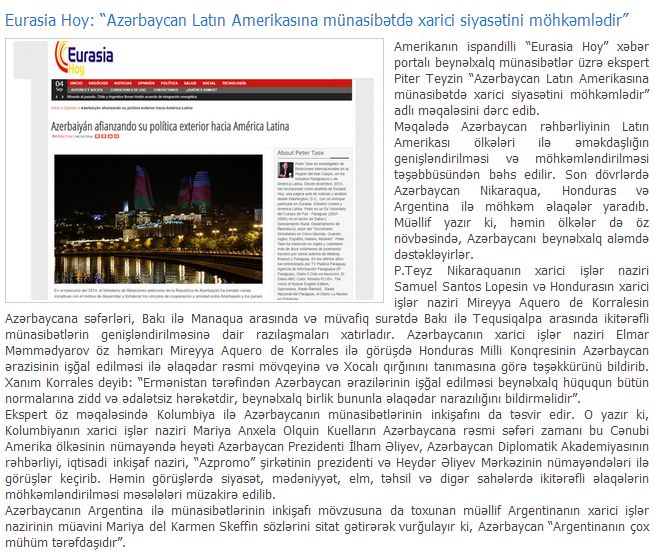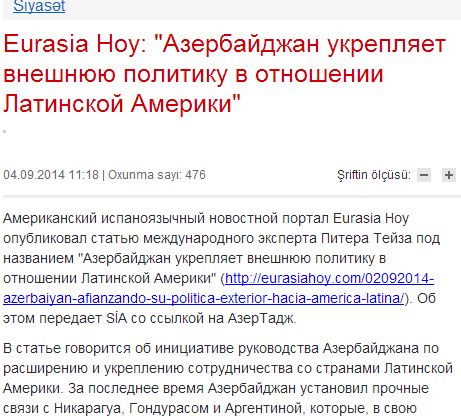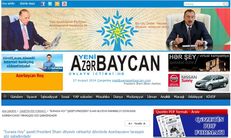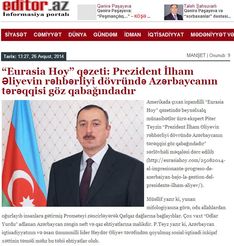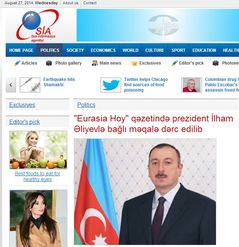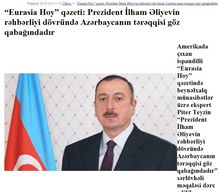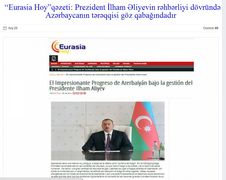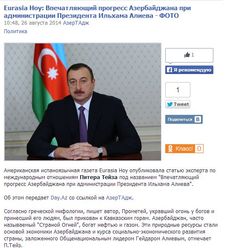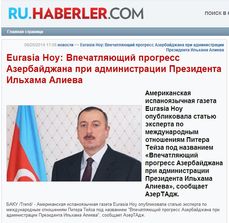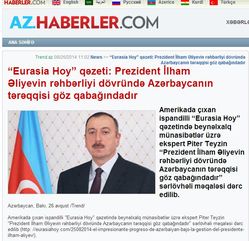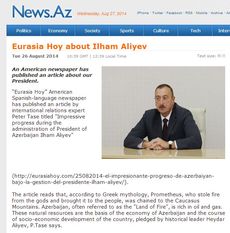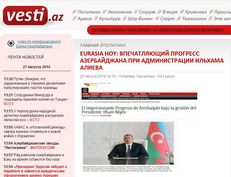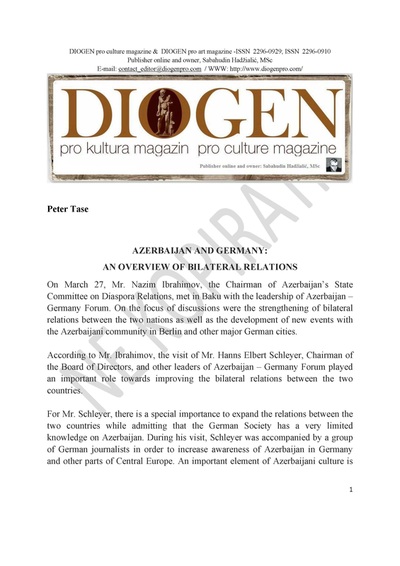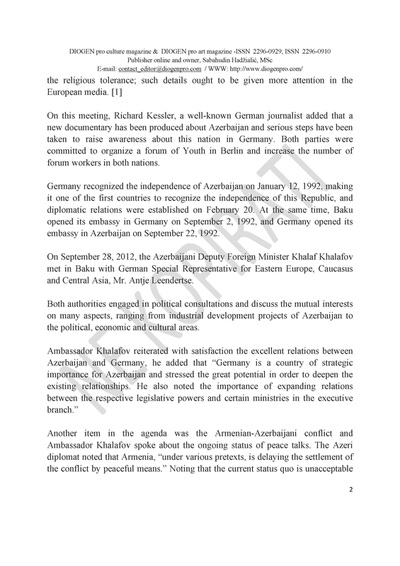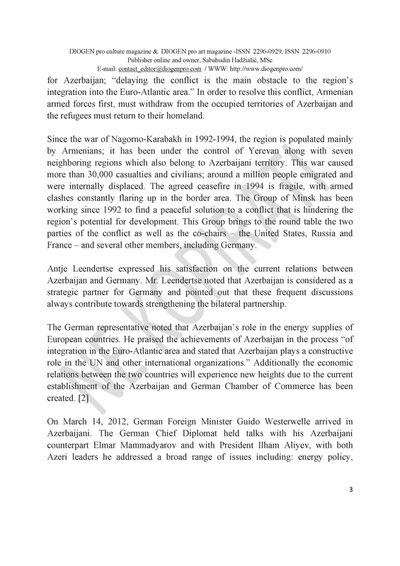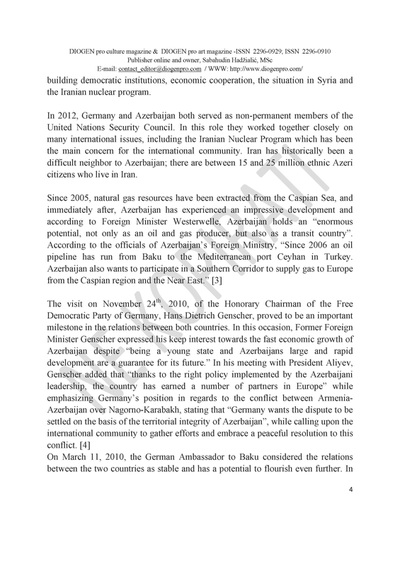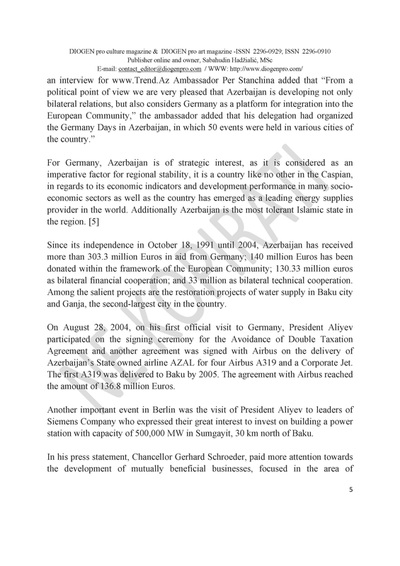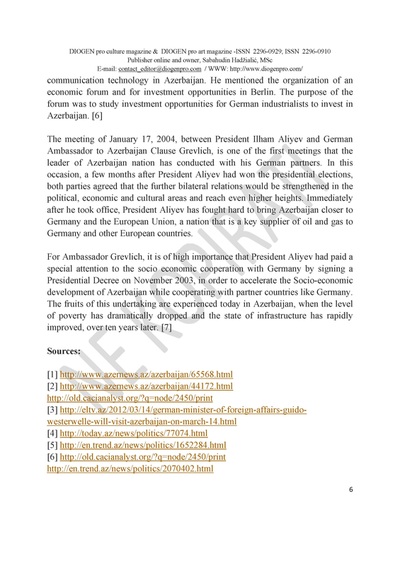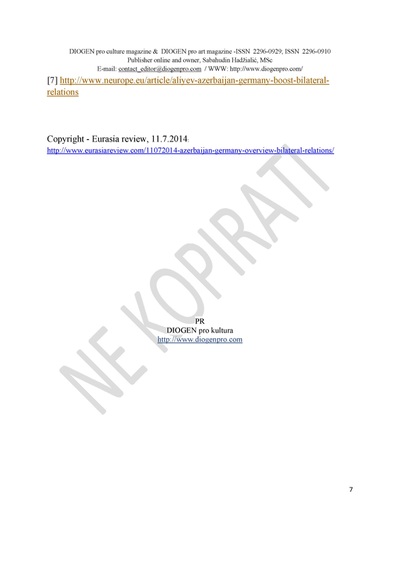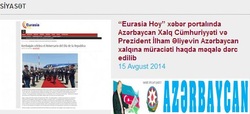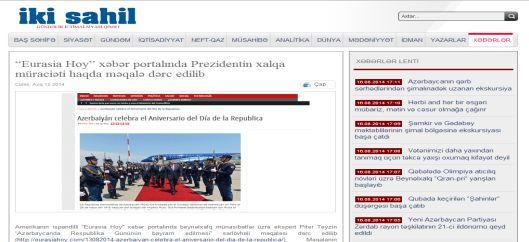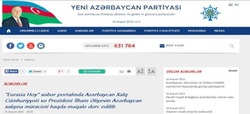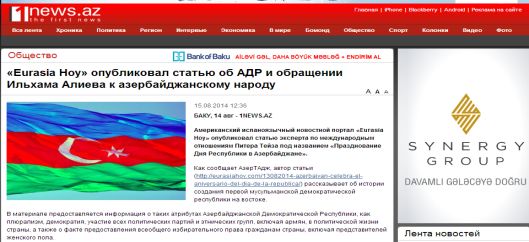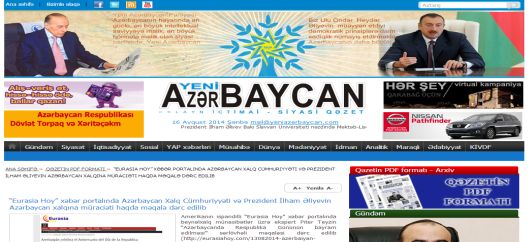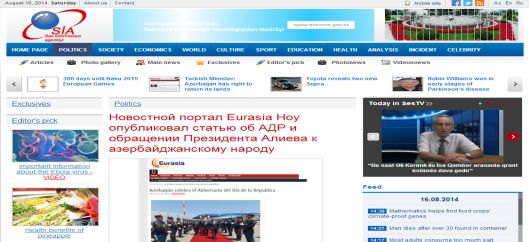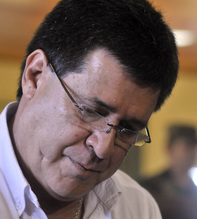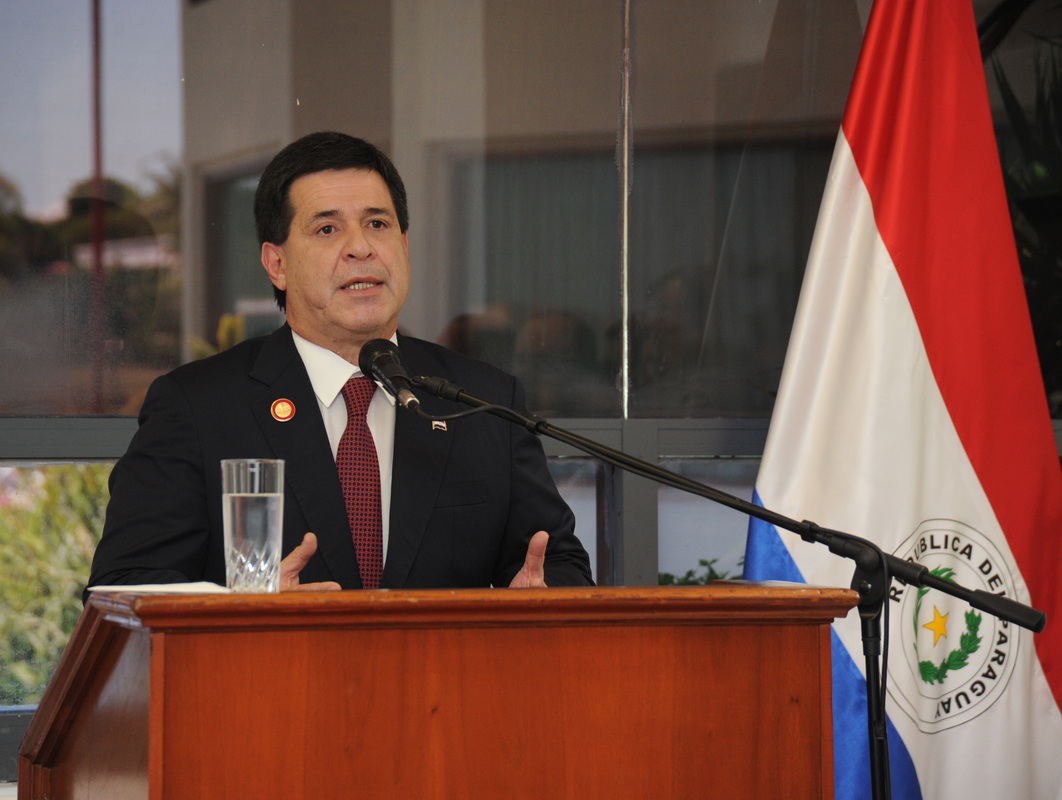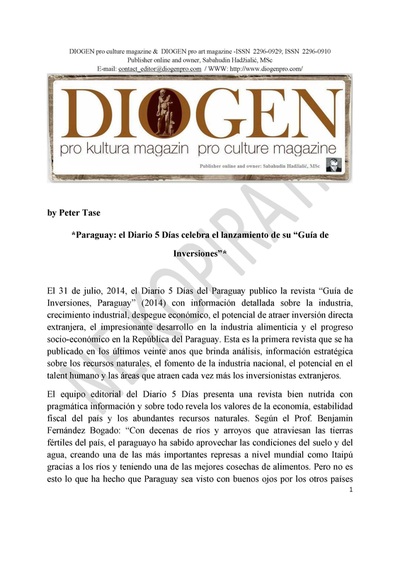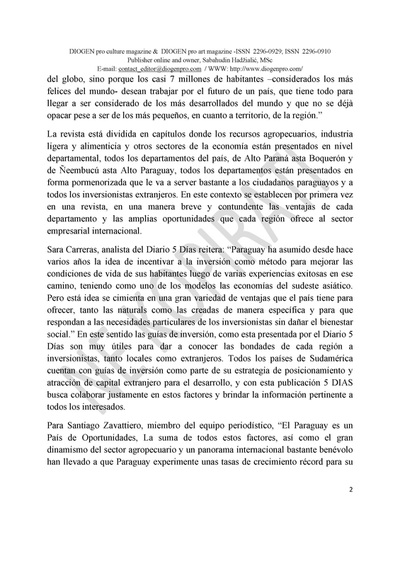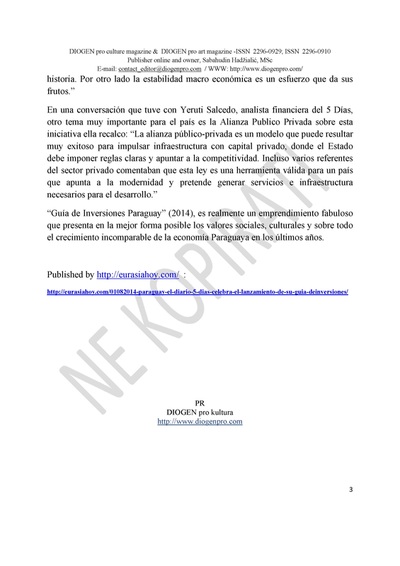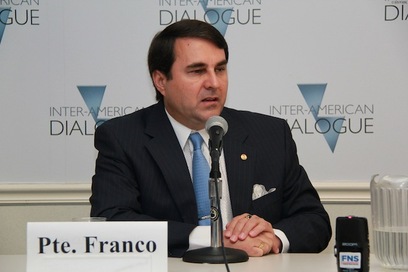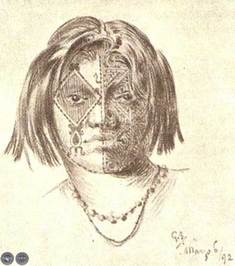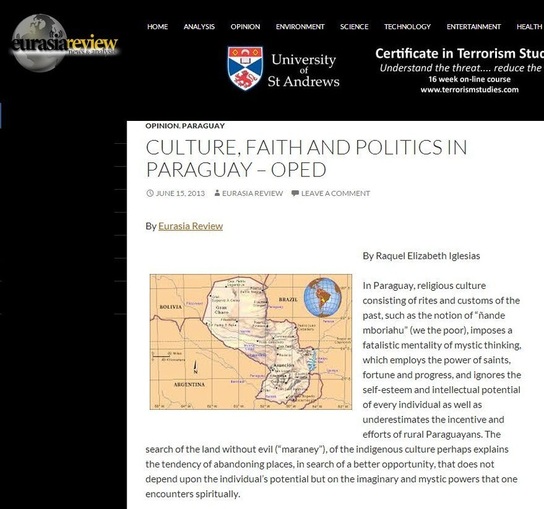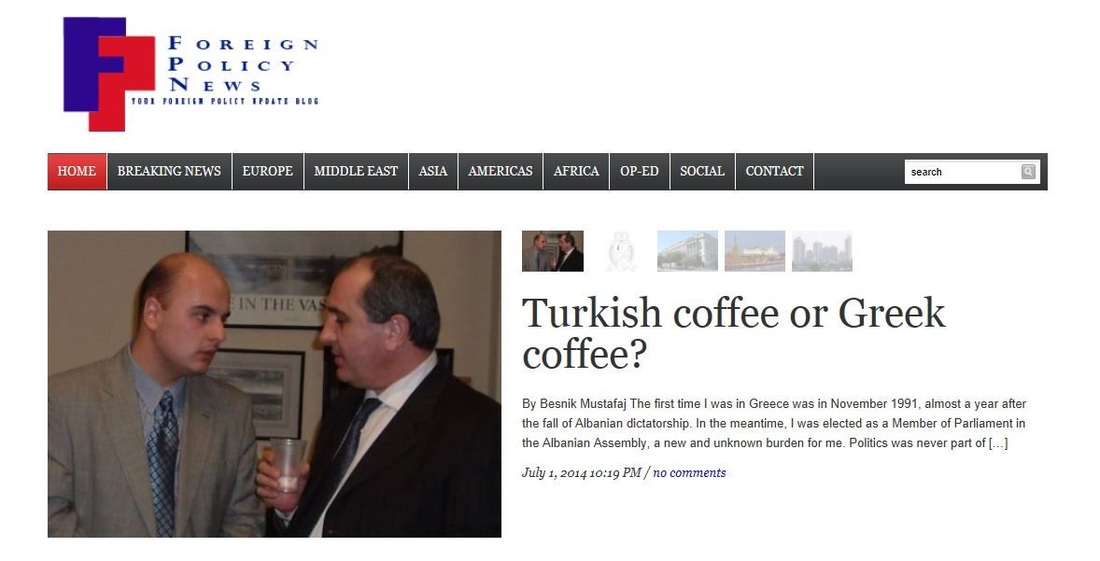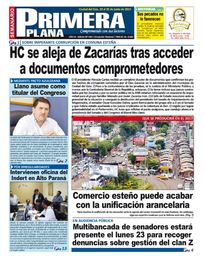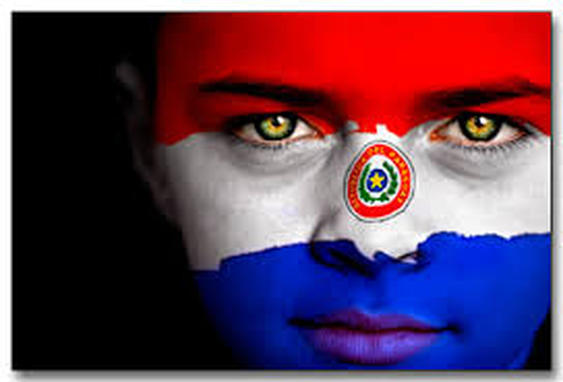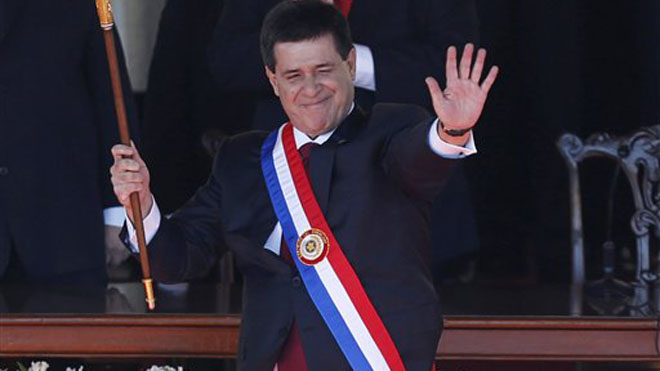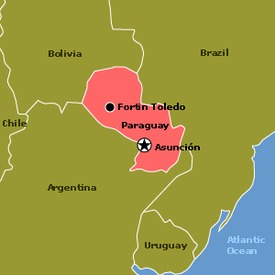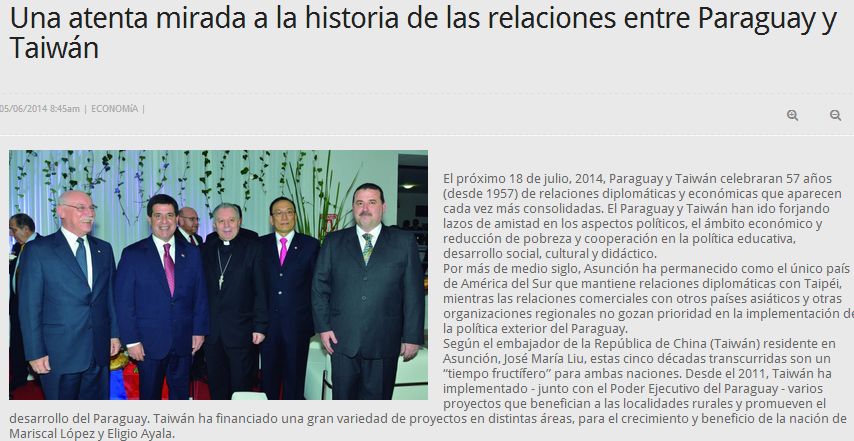|
NA LISTI Od 04.8.2010.g. /
LISTED SINCE August 4th, 2010 among leading European magazines: |
All Rights Reserved
Publishers online and owners: Assoc. Prof. Dr Sabahudin Hadžialić and Peer Tase, Whitefish Bay, WI, United States of America MI OBJEDINJUJEMO RAZLIČITOSTI... WE ARE UNIFYING DIVERSITIES |
DIOGEN World focus
Edited by Peter Tase,
Deputy editor in chief of DIOGEN pro culture magazine for international art, culture and education
31.3.2019
31.3.2019
23.2.2018
28.01.2018
Citation of our Deputy editor in chief Peter Tase
Modern Diplomacy Magazine
Detailed info on this link
| citations_of_deputy_editor_in_chief_within_modern_diplomacy_magazine_27.1.2018.doc | |
| File Size: | 345 kb |
| File Type: | doc |
| citations_of_deputy_editor_in_chief_within_modern_diplomacy_magazine_27.1.2018.pdf | |
| File Size: | 465 kb |
| File Type: | |
| citiranje_zamjenika_gl._o_odg._urednika_u_modern_diplomacy_magazine_27.1.2018.doc | |
| File Size: | 345 kb |
| File Type: | doc |
| citiranje_zamjenika_gl._o_odg._urednika_u_modern_diplomacy_magazine_27.1.2018.pdf | |
| File Size: | 465 kb |
| File Type: | |
29.11.2017
Encircled from SPUTNIK
31.10.2017
Compra de armas extra OTAN de Turquía
a Rusia "es una cuestión de soberanía"
31.10.2017
Compra de armas extra OTAN de Turquía
a Rusia "es una cuestión de soberanía"
"El Gobierno de Turquía tiene todo el derecho a asegurarse nuevos arsenales militares. La compra de armamento en la industria militar rusa se vuelve en contra de la OTAN pero al mismo tiempo Turquía tiene que asegurar su soberanía y sus instituciones", dijo a Sputnik el analista Peter Tase al referirse a la creciente tensión entre EEEUU y Turquía.
El inicio del desencanto turco con su aliado estratégico, con quien tiene suspendidos los visados, se puede marcar entre el 15 y 16 de julio de 2016 cuando el presidente turco, Recep Tayyip Erdogan, informó que había frenado un golpe de Estado y acusó al clérigo Fethullah Gulen (exiliado en Estados Unidos) de ser el ideólogo.
En agosto de ese año Erdogan viajó a Rusia, se reunió con su par Vladímir Putin para relanzar las relaciones bilaterales. Como corolario, Ankara se sumó al eje Moscú-Teherán para combatir el yihadismo en Siria, retirándose de la fuerza multinacional organizada por Washington y que en su fase inicial busca derrocar al Gobierno sirio de Bashar Asad.
"Estos problemas comenzaron en agosto cuando Matis (secretario de Defensa de EEUU) visitó Ankara para hablar sobre la guerra en Siria. Y en los últimos tres meses veo que existe falta de voluntad en procesar de forma eficiente por parte del Gobierno de EEUU la extradición de Fethullah Gulen y el punto focal entre las relacione bilaterales de ambos países es el clérigo multimillonario que ha causado tanto daño y temor a la República de Turquía durante el fallido golpe de Estado", afirmó Tase.
En agosto de ese año Erdogan viajó a Rusia, se reunió con su par Vladímir Putin para relanzar las relaciones bilaterales. Como corolario, Ankara se sumó al eje Moscú-Teherán para combatir el yihadismo en Siria, retirándose de la fuerza multinacional organizada por Washington y que en su fase inicial busca derrocar al Gobierno sirio de Bashar Asad.
"Estos problemas comenzaron en agosto cuando Matis (secretario de Defensa de EEUU) visitó Ankara para hablar sobre la guerra en Siria. Y en los últimos tres meses veo que existe falta de voluntad en procesar de forma eficiente por parte del Gobierno de EEUU la extradición de Fethullah Gulen y el punto focal entre las relacione bilaterales de ambos países es el clérigo multimillonario que ha causado tanto daño y temor a la República de Turquía durante el fallido golpe de Estado", afirmó Tase.
13.5.2017
7.04.2017
Rafig Novruzov Manaf oglu
|
| ||||||||||||
3.11.2016
by Peter Tase
Azerbaijani model of multiculturalism
|
| ||||||||||||
18.10.2016
by Peter Tase
Baku Slavic University Commemorates its 70th Anniversary
| peter_tase_baku_slavic_university_commemorates_its_70th_anniversary_18.10.2016.doc | |
| File Size: | 331 kb |
| File Type: | doc |
| peter_tase_baku_slavic_university_commemorates_its_70th_anniversary_18.10.2016.pdf | |
| File Size: | 357 kb |
| File Type: | |
11.10.2016
By Peter Tase
The United States and the Russia-Armenian defense agreement
| peter_tase_us-and-russia-armenia-defense-agreement_11.10.2016.doc | |
| File Size: | 330 kb |
| File Type: | doc |
| peter_tase_us-and-russia-armenia-defense-agreement_11.10.2016.pdf | |
| File Size: | 330 kb |
| File Type: | |
2.09.2016
By Peter Tase
Bangladesh and its Political – Economic Cooperation
with Argentina, Chile and Paraguay
| bangladesh_and_its_political_–_economic_cooperation_peter_tase.doc | |
| File Size: | 350 kb |
| File Type: | doc |
| bangladesh_and_its_political_–_economic_cooperation_peter_tase.pdf | |
| File Size: | 434 kb |
| File Type: | |
28.8.2016
by Prof. Dr. Lisen Bashkurti
The Crisis of Nagorno-Karabakh and the Russian-Serbian Similarities
| the_crisis_of_nagorno_karabakh_and_the_russian-serbian_similarities_prof.dr_lisen_bashkurti.doc | |
| File Size: | 331 kb |
| File Type: | doc |
| the_crisis_of_nagorno_karabakh_and_the_russian-serbian_similarities_prof.dr_lisen_bashkurti.pdf | |
| File Size: | 245 kb |
| File Type: | |
28.8.2016 (historical reflection)
by Peter Tase
Paraguay y Uruguay: Visita del Presidente Mujica Relanza la Cooperación Bilateral
| paraguay_y_uruguay_visita_del_presidente_mujica_relanza_la_cooperacion_bilateral_peter_tase.doc | |
| File Size: | 330 kb |
| File Type: | doc |
| paraguay_y_uruguay_visita_del_presidente_mujica_relanza_la_cooperacion_bilateral_peter_tase.pdf | |
| File Size: | 585 kb |
| File Type: | |
26.8.2016
By: Prof. Dr. Lisen Bashkurti
Mostar and Iber: two Bridges simmered by dilemmas
| mostar_and_iber_two_bridges_simmered_by_dilemmas_prof.dr._lisen_bashkurti.doc | |
| File Size: | 331 kb |
| File Type: | doc |
| mostar_and_iber_two_bridges_simmered_by_dilemmas_prof.dr._lisen_bashkurti.pdf | |
| File Size: | 243 kb |
| File Type: | |
16.8.2016
By: Prof. Dr. Lisen Bashkurti
Ambassador Donald Lu: a Master of Public Diplomacy
| ambassador_donald_lu_a_master_of_public_diplomacy_prof.dr._lisen_bashkurti.doc | |
| File Size: | 329 kb |
| File Type: | doc |
| ambassador_donald_lu_a_master_of_public_diplomacy_prof.dr._lisen_bashkurti.pdf | |
| File Size: | 410 kb |
| File Type: | |
Point of view....
| point_of_view_peter_tase_1.pdf | |
| File Size: | 478 kb |
| File Type: | |
Point of view...
| |||||||
09.5.2016
Pepe Eliaschev: Un Escritor Ilustre Argentino comparte sus ideas con EJE 21
| peter_tase...pepe_eliaschev_un_escritor_ilustre_argentino_comparte_sus_ideas_con_eje_21...09.05.2016.docx | |
| File Size: | 312 kb |
| File Type: | docx |
| peter_tase...pepe_eliaschev_un_escritor_ilustre_argentino_comparte_sus_ideas_con_eje_21...09.05.2016.pdf | |
| File Size: | 507 kb |
| File Type: | |
08.4.2016
Albanian: under the yoke of a communist heritage
| peter_tase...albanian_under_the_yoke_of_a_communist_heritage...08.04.2016.docx | |
| File Size: | 303 kb |
| File Type: | docx |
| peter_tase...albanian_under_the_yoke_of_a_communist_heritage...08.04.2016.pdf | |
| File Size: | 263 kb |
| File Type: | |
01.3.2016
Albania: Amidst relentless oligarchy and European Union integration
| peter_tase_albania__amidst_relentless_oligarchy_and_european_union_integration_1.3.2016.doc | |
| File Size: | 326 kb |
| File Type: | doc |
| peter_tase_albania__amidst_relentless_oligarchy_and_european_union_integration_1.3.2016.pdf | |
| File Size: | 276 kb |
| File Type: | |
08.2.2016
Can Edi Rama’s Government Overthrow Radical Islam?
| peter_tase...can_edi_rama’s_government_overthrow_radical_islam...08.02.2016.docx | |
| File Size: | 304 kb |
| File Type: | docx |
| peter_tase...can_edi_rama’s_government_overthrow_radical_islam...08.02.2016.pdf | |
| File Size: | 475 kb |
| File Type: | |
28.1.2016
Nakhchivan Region:
a Living Testimony of Azerbaijani and World History
|
| ||||||||||||
14.01.2015
Azerbaijan and Indonesia: Dynamic Bilateral Relations
| peter_tase...azerbaijan_and_indonesia_dynamic_bilateral_relations...14.1.2016.docx | |
| File Size: | 306 kb |
| File Type: | docx |
| peter_tase...azerbaijan_and_indonesia_dynamic_bilateral_relations...14.1.2016.pdf | |
| File Size: | 287 kb |
| File Type: | |
23.10.2015
The Fate Of Nakhchivan: Repeated Violations Of Moscow And Kars Treaties
| peter_tase_the_fate_of_nakhchivan_repeated_violations_of_moscow_and_kars_treaties_23.10.2015.doc | |
| File Size: | 333 kb |
| File Type: | doc |
| peter_tase_the_fate_of_nakhchivan_repeated_violations_of_moscow_and_kars_treaties_23.10.2015.doc | |
| File Size: | 333 kb |
| File Type: | doc |
2.10.2015
Peter Tase
COLOMBIA Y ESTADOS UNIDOS: COOPERACION FRUCTIFERA BILATERAL
| peter_tase_2.10.2015.pdf | |
| File Size: | 323 kb |
| File Type: | |
| peter_tase_2.10.2015.doc | |
| File Size: | 331 kb |
| File Type: | doc |
6.9.2015
Peter Tase
Social Responsibility Isn’t Exclusive Right Of Large Corporations – Interview
| peter_tase_6.9.2015_social_responsibility_isn’t_exclusive_right_of_large_corporations_–_interview.doc | |
| File Size: | 330 kb |
| File Type: | doc |
| peter_tase_6.9.2015_social_responsibility_isn’t_exclusive_right_of_large_corporations_–_interview.pdf | |
| File Size: | 456 kb |
| File Type: | |
| peter_tase_6.9.2015_društvena_odgovornost_nije_isključivo_pravo_velikih_korporacija_-_intervju.doc | |
| File Size: | 351 kb |
| File Type: | doc |
| peter_tase_6.9.2015_društvena_odgovornost_nije_isključivo_pravo_velikih_korporacija_-_intervju.pdf | |
| File Size: | 458 kb |
| File Type: | |
1.9.2015.
Peter Tase
Nakhchivan: Its Splendid Architecture Reflected in Bridges and Fortresses
| peter_tase_1.9.2015_nakhchivan__its_splendid_architecture_reflected_in_bridges_and_fortresses.doc | |
| File Size: | 326 kb |
| File Type: | doc |
| peter_tase_1.9.2015_nakhchivan__its_splendid_architecture_reflected_in_bridges_and_fortresses.pdf | |
| File Size: | 269 kb |
| File Type: | |
| peter_tase_azerbaijan_becomes_a_dialogue_partner_of_shanghai_cooperation_organization_13.7.2015.doc | |
| File Size: | 334 kb |
| File Type: | doc |
| peter_tase_azerbaijan_becomes_a_dialogue_partner_of_shanghai_cooperation_organization_13.7.2015.pdf | |
| File Size: | 210 kb |
| File Type: | |
4.5.2015
Fuad Huseinzadeh
PLAYING AT "ELECTIONS"
|
| ||||||||||||
21.4.2015
Peter Tase
Azerbaijan: City of Julfa, Home of Alinjagala Castle
Peter Tase
Azerbaijan: City of Julfa, Home of Alinjagala Castle
| peter_tase_azerbaijan_city_of_julfa__home_of_alinjagala_castle_21.4.2015.doc | |
| File Size: | 327 kb |
| File Type: | doc |
| peter_tase_azerbaijan_city_of_julfa__home_of_alinjagala_castle_21.4.2015.pdf | |
| File Size: | 133 kb |
| File Type: | |
9.4.2015
Fuad Huseinzadeh
SOMEONE ELSE'S WAR
|
| ||||||||||||
30.3.2015
| 30.3.2015_azerbaijan.pdf | |
| File Size: | 2694 kb |
| File Type: | |
Asunción, IP.- El fundador del Foro Económico del Paraguay, Peter Tase, señaló que Paraguay presentará en Milwaukee, Estados Unidos, las potencialidades económicas y comerciales que tiene el país. El foro se realizará el próximo viernes 27 de marzo, en la prestigiosa Universidad Alverno College.
Explicó que el objetivo de la actividad es promover el crecimiento socio económico del Paraguay en los últimos años, así como la atracción de inversiones directas de los Estados Unidos hacia el suelo guaraní. “En el mismo contexto queremos promover la cultura, el folklore, el turismo, la industria del turismo, la industria del alimento y de logística y el establecimiento de puertos secos que se puede financiar con recursos extranjeros en el Paraguay”.
Asimismo, Tase habló de fortalecer el conocimiento de la cultura, historia, diversidad lingüística, fomentar el desarrollo de proyectos sostenibles agropecuarios y ganaderos con recursos internacionales y la colaboración entre empresas paraguayas y de EE.UU.
Tase indicó que en el encuentro anual participarán importantes empresarios del sector privado de Estados Unidos.
Entre los organizadores del foro, además de Tase, se encuentran Carol Vollmer Pope, experta en Negocios Internacionales del “Alverno College”; Sebastián Brizuela, de la Revista Logística Paraguay SRL; Blas Oddone, presidente de la Asociación Ecodesarrollo, y el evento estará moderado por Sue Dabaco, máster en administración de negocios.
Explicó que el objetivo de la actividad es promover el crecimiento socio económico del Paraguay en los últimos años, así como la atracción de inversiones directas de los Estados Unidos hacia el suelo guaraní. “En el mismo contexto queremos promover la cultura, el folklore, el turismo, la industria del turismo, la industria del alimento y de logística y el establecimiento de puertos secos que se puede financiar con recursos extranjeros en el Paraguay”.
Asimismo, Tase habló de fortalecer el conocimiento de la cultura, historia, diversidad lingüística, fomentar el desarrollo de proyectos sostenibles agropecuarios y ganaderos con recursos internacionales y la colaboración entre empresas paraguayas y de EE.UU.
Tase indicó que en el encuentro anual participarán importantes empresarios del sector privado de Estados Unidos.
Entre los organizadores del foro, además de Tase, se encuentran Carol Vollmer Pope, experta en Negocios Internacionales del “Alverno College”; Sebastián Brizuela, de la Revista Logística Paraguay SRL; Blas Oddone, presidente de la Asociación Ecodesarrollo, y el evento estará moderado por Sue Dabaco, máster en administración de negocios.
Fuad Huseinzadeh (28.2.2015)
BAKU PAVES THE BRIDGE TOWARDS SHANGHAI
| fuad_huseinzadeh-baku_paves_the_bridge_towards_shanghai_28.2.2015.pdf | |
| File Size: | 180 kb |
| File Type: | |
| fuad_huseinzadeh-baku_paves_the_bridge_towards_shanghai_28.2.2015.doc | |
| File Size: | 326 kb |
| File Type: | doc |
Published same day here: http://foreignpolicynews.org/2015/02/28/baku-paves-the-bridge-towards-shanghai/
Peter Tase (28.2.2015)
“SUCESOS DE JODYALÍ DEBEN RECIBIR LA MERECIDA CONDENA DE LA COMUNIDAD INTERNACIONAL"
| peter_tase_sucesos_de_jodyalÍ_deben_recibir_la_merecida_condena_de_la_comunidad_internacional_28.2.2015.doc | |
| File Size: | 413 kb |
| File Type: | doc |
| peter_tase_sucesos_de_jodyalÍ_deben_recibir_la_merecida_condena_de_la_comunidad_internacional_28.2.2015.pdf | |
| File Size: | 288 kb |
| File Type: | |
9.2.2015
Бесполезно ждать мира от режима в Армении,
оправдывающего геноцид в Ходжалы – аналитик
|
| ||||||||||||
7.2.2015
Peter Tase
Conmemoración del 23 aniversario de las masacres de Jodyali:
el genocidio más brutal de humanidad
| peter_tase_conmemoración_del_23_aniversario_de_las_masacres...__7.02.2015.doc | |
| File Size: | 329 kb |
| File Type: | doc |
| peter_tase_conmemoración_del_23_aniversario_de_las_masacres...__7.02.2015.pdf | |
| File Size: | 181 kb |
| File Type: | |
26.12.2014
Basrad Pashayev
THE GREAT SILK ROAD and the importance of NAKHCHIVAN
| basrad_pashayev___the_great_silk_road_and_the_importance_of_nakhchivan_26.12.2014.doc | |
| File Size: | 339 kb |
| File Type: | doc |
| basrad_pashayev___the_great_silk_road_and_the_importance_of_nakhchivan_26.12.pdf | |
| File Size: | 222 kb |
| File Type: | |
24.12.2014.
|
| ||||||||||||
26.11.2014.
Azerbaijan:
Commemorating the 25th Anniversary of Black January Tragedy
|
| ||||||||||||
14.11.2014
Peter Tase
Azerbaijan: Autonomous Republic of Nakhchivan Commemorates its 90th Anniversary
| peter_tase_azerbaijan__autonomous_republic_of_nakhchivan_commemorates__14.11.2014.doc | |
| File Size: | 326 kb |
| File Type: | doc |
| peter_tase_azerbaijan__autonomous_republic_of_nakhchivan_commemorates__14.11.2014.pdf | |
| File Size: | 184 kb |
| File Type: | |
6.11.2014
AZERBAIJAN
| 06.11.14.pdf | |
| File Size: | 1324 kb |
| File Type: | |
1.11.2014
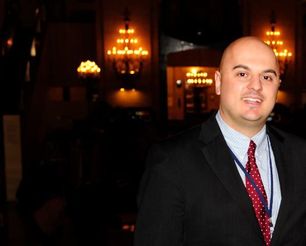
SECOND INTERVIEW OF PETER TASE
FOR FUAD HUSEINZADEH (Azerbeijan), OCTOBER 31ST, 2014.
- The recent meeting held in Paris between the Presidents of Azerbaijan, Armenia and France, according to some French diplomats was a “very positive atmosphere”, after President Aliyev’s trip to France, can we hope that Europeans may contribute more in the peace process between Baku and Yerevan than the United States and the Russian Federation?
On October 27, 2014, President Ilham Aliyev met in Paris with his counterpart, the President of Armenia Serzh Sargsyan, together with the co-chairs of the OSCE Minsk Group in Paris. Later was held a bilateral meeting between the two heads of state, followed by another meeting with the leaders of OSCE Minsk Group and subsequently the presidents of Azerbaijan, Armenia and France attended the third session of this important Summit, followed by an official dinner. Unfortunately we did not see a tangible result from these talks.
It is clear that the three heads of state had somewhat fruitful meetings in the French Capital at a time when the geostrategic role of the United States in the Caucasus region is substantially diminishing, towards resolving the long lasting conflict of Nagorno Karabakh (NK) even though James Warlick, a US co-chair of the OSCE Minsk group had participated in these talks. During the past 22 years, the OSCE Minsk group has not brought any sustainable solution to the NK conflict, it has proved to be obsolete, in this context the European Union must reinvigorate the negotiations’ platform and set feasible goals and objectives in a five year time frame so that by 2019 the peace process between Armenia and Azerbaijan is accomplished and the Province of Nagorno Karabakh is internationally recognized within the territorial integrity of the Republic of Azerbaijan. The territorial demands of Armenia are against international laws and violate four resolutions approved by the United Nations Security Council in 1993. If we were to follow the logic of Yerevan, then we would not have the Republic of India as it stands today, but instead we would have over seventy independent countries if we were to divide the current Indian Territory according to its large number of ethnic groups that speak their own languages. In the same vein, even though France and Russia are leading the negotiation process, the United States must take a leadership role in solving this decades’ long conflict of Nagorno Karabakh and strengthen its bilateral ties with Baku. It is unfortunate that US Secretary of State John Kerry has not yet fulfilled his promised official visit to Azerbaijan. Such a visit was announced in March 19, 2014, by his Ambassador in Baku and it still has not taken place. Additionally the Secretary of Defense Chuck Hagel has not undertaken an official visit to Azerbaijan even though the Minister of Defense of Azerbaijan Safar Abiyev had paid an official visit in the Pentagon in August 5, 2013. If we consider the United States to be one of the superpowers in the Eurasian geopolitical landscape, Washington must be more engaged and truly defend the interests of its allies in the Caucasus region and contribute towards strengthening democratic institutions not with words but with real actions. The fact of this matter is that the United States does not have a better strategic ally than Azerbaijan throughout the whole Caucasus region and Central Asia.
- There are rumors that Armenians are ready to withdraw from seven occupied regions of Azerbaijan around Nagorno Karabakh itself to receive economic dividends that they would benefit from an economic cooperation with Azerbaijan. Do you believe that this a logical scenario that could take place in the current geopolitical environment in the region?
There are over 17 million people living in the South Caucasus, which is indeed a small but diverse region, geographically spread into three nations: Azerbaijan, Georgia and Armenia. It contains one of the highest concentrations of refugees and Internally Displaced Persons (IDP) per capita in the World. Almost 1.5 million people have suffered a displacement by armed conflicts over the last 20 years in Azerbaijan alone. Unlike any other country in Eurasia, the government of Azerbaijan has been very successful towards accommodating those families that still suffer from being internally displaced.
I am skeptical that these initiatives taken by the Armenian communities in Azerbaijan are really taking place. Armenia conducts a regular propaganda warfare to divert the attention from the provocations of its Armed Forces in the border with Azerbaijan and most importantly it has taken a unilateral decision to isolate the Autonomous Republic of Nakhchivan from the mainland of Azerbaijan. Today everyone who wants to travel by road and air from Nakhchivan to Baku, has to cross the border to Iran in order to reach the eastern territories of Azerbaijan. This is politically unacceptable and does not contribute towards a regional economic integration and preservation of peace and stability between Yerevan and Baku. Additionally, Armenia must make a public apology for all the massacres and atrocities committed by its armed forces against the people of Azerbaijan for more than two decades; withdraw its armed forces and refrain from its annexation aspirations of Nagorno Karabakh and embrace peace and stability in the region. It is highly hypocritical and it does not help regional stability if you have the Foreign Minister of the artificial Nagorno-Karabakh Republic Karen Mirzoyan deliver a lecture on October 30, 2014, at the Carleton University of Ottawa, focused on the regional security in the South Caucasus, and in the same day, Armenian Armed Forces violated the ceasefire 17 times in the villages of Sarijali, Shuraabad in Aghdam region, and in the village of Kuropatkino region of Khojavend and in the village of Horadiz, Fuzuli region and in the hills of Khojavend and Fuzuli regions.
The international community must be aware of these atrocities, border clashes and constant provocations by Armenian soldiers. The Caucasus region must not be a victim of these unnecessary provocations, and Armenia is certainly pouring gasoline into fire at a faster pace than the region can afford. I must reiterate that since the beginning of the war in 1988, 20 percent of Azerbaijan's territory has been occupied by Armenian armed forces, including Nagorno-Karabakh and seven surrounding regions. A fragile ceasefire has been implemented in 1994 however Yerevan continues to refuse the implementation of the four resolutions by the U.N. Security Council and undertake a pullout from Azerbaijan’s territories. Armenian president Serzh Sargsyan must lower his sword and become a true XXI century visionary leader, just like Heydar Aliyev, the founding father of modern Azerbaijan, was for his country, and not simply sit on the negotiation table (with his regional counterparts) at the same time when his armed forces undertake another deadly attack against Azerbaijani border patrols. The same principal applies to Minister Mirzoyan: the latter talked about security in the Caucasus and at the same time he became part of the problem by advocating the establishment of unlawful enclaves and constant ethnic cleansing in the Azerbaijani soil. Who would want to listen to his hypocritical presentation?
Another unacceptable act was the recent visit of Mayor Marlene Mourier from the French town of Bourg-les-Valence, to Azerbaijan's occupied territories; her actions are illegal and an act of provocation. The signing of a twinning agreement with Mayor Artsvik Sargsyan, on October 8th, in the occupied town of Shusha is a violation of international law and goes against the recent Summit in Paris. It is unfortunate that we continue to have public figures in Western Europe who decide to openly violate International laws and treaties and not acknowledge crimes against humanity.
- How would you describe the role of United States in the Caucasus Region peace process, considering that Washington is very distant from this area?
The United States has been reluctant to take a leadership role in solving the Nagorno Karabakh (NK) conflict. The negotiation process by the OSCE Minsk Group has not been successful towards seeking a negotiated outcome that is sustainable politically and guarantees peace in the region. The current status quo is very unpleasant and Armenia and Azerbaijan must agree to make concessions that would bring a start to the negotiation process. Now is the time for the United States to take a leadership role and make tangible suggestions – US state department officials must conduct extensive visits in the region - that bring an internationally acceptable solution to this conflict. Washington must call upon the international community to send a monitoring team in the border areas in order to observe first-hand the violations committed by Armenian forces in the so-called frozen conflict. Armenia must allow the participation of the so-called government authorities of NK to participate in the negotiation table. At the same time Armenian propaganda machine does not help when biased information is constantly published and as a result foreign audiences are not well informed. Provocative actions do not end here: on October 30th, Armenian authorities inaugurated a Kindergarten center in the occupied region of Zangilan, to celebrate the anniversary of Armenian invasion. This is another offensive action and is counterproductive to the recent Summit in Paris. Armenians never lived on the territory of Zangilan which was occupied by Armenian armed forces on October 29, 1993; these events confirm the annexation policies of occupied territories by Armenia, while violating the Geneva Convention and International Laws.
- We all know about reach and powerful Armenian lobby in the US. What should be done to make Azerbaijani voice louder?
The government of Azerbaijan has been implementing a proactive strategy towards letting the world know the truth about the massive atrocities and current disinformation conducted by the Armenian State Media and national newspapers. I am confident that such dynamic measures taken by government authorities of Azerbaijan who lead the strategic communication policies will very soon have its positive results and hopefully the US policy makers will realize that America’s staunchest ally in the region is Azerbaijan. In respect to the current influences of the Armenian lobby in Washington D.C. we must acknowledge that there are major diaspora organizations that are more powerful than Armenians in the United States. Washington must not rely on the information provided by an infinite number of lobbying groups on K Street, it has the tools and resources to assert the situation on the ground and take decisions that are appropriate to US national interests, its Foreign Policy and guarantee the territorial integrity of its most trusted allies such as Azerbaijan.
FOR FUAD HUSEINZADEH (Azerbeijan), OCTOBER 31ST, 2014.
- The recent meeting held in Paris between the Presidents of Azerbaijan, Armenia and France, according to some French diplomats was a “very positive atmosphere”, after President Aliyev’s trip to France, can we hope that Europeans may contribute more in the peace process between Baku and Yerevan than the United States and the Russian Federation?
On October 27, 2014, President Ilham Aliyev met in Paris with his counterpart, the President of Armenia Serzh Sargsyan, together with the co-chairs of the OSCE Minsk Group in Paris. Later was held a bilateral meeting between the two heads of state, followed by another meeting with the leaders of OSCE Minsk Group and subsequently the presidents of Azerbaijan, Armenia and France attended the third session of this important Summit, followed by an official dinner. Unfortunately we did not see a tangible result from these talks.
It is clear that the three heads of state had somewhat fruitful meetings in the French Capital at a time when the geostrategic role of the United States in the Caucasus region is substantially diminishing, towards resolving the long lasting conflict of Nagorno Karabakh (NK) even though James Warlick, a US co-chair of the OSCE Minsk group had participated in these talks. During the past 22 years, the OSCE Minsk group has not brought any sustainable solution to the NK conflict, it has proved to be obsolete, in this context the European Union must reinvigorate the negotiations’ platform and set feasible goals and objectives in a five year time frame so that by 2019 the peace process between Armenia and Azerbaijan is accomplished and the Province of Nagorno Karabakh is internationally recognized within the territorial integrity of the Republic of Azerbaijan. The territorial demands of Armenia are against international laws and violate four resolutions approved by the United Nations Security Council in 1993. If we were to follow the logic of Yerevan, then we would not have the Republic of India as it stands today, but instead we would have over seventy independent countries if we were to divide the current Indian Territory according to its large number of ethnic groups that speak their own languages. In the same vein, even though France and Russia are leading the negotiation process, the United States must take a leadership role in solving this decades’ long conflict of Nagorno Karabakh and strengthen its bilateral ties with Baku. It is unfortunate that US Secretary of State John Kerry has not yet fulfilled his promised official visit to Azerbaijan. Such a visit was announced in March 19, 2014, by his Ambassador in Baku and it still has not taken place. Additionally the Secretary of Defense Chuck Hagel has not undertaken an official visit to Azerbaijan even though the Minister of Defense of Azerbaijan Safar Abiyev had paid an official visit in the Pentagon in August 5, 2013. If we consider the United States to be one of the superpowers in the Eurasian geopolitical landscape, Washington must be more engaged and truly defend the interests of its allies in the Caucasus region and contribute towards strengthening democratic institutions not with words but with real actions. The fact of this matter is that the United States does not have a better strategic ally than Azerbaijan throughout the whole Caucasus region and Central Asia.
- There are rumors that Armenians are ready to withdraw from seven occupied regions of Azerbaijan around Nagorno Karabakh itself to receive economic dividends that they would benefit from an economic cooperation with Azerbaijan. Do you believe that this a logical scenario that could take place in the current geopolitical environment in the region?
There are over 17 million people living in the South Caucasus, which is indeed a small but diverse region, geographically spread into three nations: Azerbaijan, Georgia and Armenia. It contains one of the highest concentrations of refugees and Internally Displaced Persons (IDP) per capita in the World. Almost 1.5 million people have suffered a displacement by armed conflicts over the last 20 years in Azerbaijan alone. Unlike any other country in Eurasia, the government of Azerbaijan has been very successful towards accommodating those families that still suffer from being internally displaced.
I am skeptical that these initiatives taken by the Armenian communities in Azerbaijan are really taking place. Armenia conducts a regular propaganda warfare to divert the attention from the provocations of its Armed Forces in the border with Azerbaijan and most importantly it has taken a unilateral decision to isolate the Autonomous Republic of Nakhchivan from the mainland of Azerbaijan. Today everyone who wants to travel by road and air from Nakhchivan to Baku, has to cross the border to Iran in order to reach the eastern territories of Azerbaijan. This is politically unacceptable and does not contribute towards a regional economic integration and preservation of peace and stability between Yerevan and Baku. Additionally, Armenia must make a public apology for all the massacres and atrocities committed by its armed forces against the people of Azerbaijan for more than two decades; withdraw its armed forces and refrain from its annexation aspirations of Nagorno Karabakh and embrace peace and stability in the region. It is highly hypocritical and it does not help regional stability if you have the Foreign Minister of the artificial Nagorno-Karabakh Republic Karen Mirzoyan deliver a lecture on October 30, 2014, at the Carleton University of Ottawa, focused on the regional security in the South Caucasus, and in the same day, Armenian Armed Forces violated the ceasefire 17 times in the villages of Sarijali, Shuraabad in Aghdam region, and in the village of Kuropatkino region of Khojavend and in the village of Horadiz, Fuzuli region and in the hills of Khojavend and Fuzuli regions.
The international community must be aware of these atrocities, border clashes and constant provocations by Armenian soldiers. The Caucasus region must not be a victim of these unnecessary provocations, and Armenia is certainly pouring gasoline into fire at a faster pace than the region can afford. I must reiterate that since the beginning of the war in 1988, 20 percent of Azerbaijan's territory has been occupied by Armenian armed forces, including Nagorno-Karabakh and seven surrounding regions. A fragile ceasefire has been implemented in 1994 however Yerevan continues to refuse the implementation of the four resolutions by the U.N. Security Council and undertake a pullout from Azerbaijan’s territories. Armenian president Serzh Sargsyan must lower his sword and become a true XXI century visionary leader, just like Heydar Aliyev, the founding father of modern Azerbaijan, was for his country, and not simply sit on the negotiation table (with his regional counterparts) at the same time when his armed forces undertake another deadly attack against Azerbaijani border patrols. The same principal applies to Minister Mirzoyan: the latter talked about security in the Caucasus and at the same time he became part of the problem by advocating the establishment of unlawful enclaves and constant ethnic cleansing in the Azerbaijani soil. Who would want to listen to his hypocritical presentation?
Another unacceptable act was the recent visit of Mayor Marlene Mourier from the French town of Bourg-les-Valence, to Azerbaijan's occupied territories; her actions are illegal and an act of provocation. The signing of a twinning agreement with Mayor Artsvik Sargsyan, on October 8th, in the occupied town of Shusha is a violation of international law and goes against the recent Summit in Paris. It is unfortunate that we continue to have public figures in Western Europe who decide to openly violate International laws and treaties and not acknowledge crimes against humanity.
- How would you describe the role of United States in the Caucasus Region peace process, considering that Washington is very distant from this area?
The United States has been reluctant to take a leadership role in solving the Nagorno Karabakh (NK) conflict. The negotiation process by the OSCE Minsk Group has not been successful towards seeking a negotiated outcome that is sustainable politically and guarantees peace in the region. The current status quo is very unpleasant and Armenia and Azerbaijan must agree to make concessions that would bring a start to the negotiation process. Now is the time for the United States to take a leadership role and make tangible suggestions – US state department officials must conduct extensive visits in the region - that bring an internationally acceptable solution to this conflict. Washington must call upon the international community to send a monitoring team in the border areas in order to observe first-hand the violations committed by Armenian forces in the so-called frozen conflict. Armenia must allow the participation of the so-called government authorities of NK to participate in the negotiation table. At the same time Armenian propaganda machine does not help when biased information is constantly published and as a result foreign audiences are not well informed. Provocative actions do not end here: on October 30th, Armenian authorities inaugurated a Kindergarten center in the occupied region of Zangilan, to celebrate the anniversary of Armenian invasion. This is another offensive action and is counterproductive to the recent Summit in Paris. Armenians never lived on the territory of Zangilan which was occupied by Armenian armed forces on October 29, 1993; these events confirm the annexation policies of occupied territories by Armenia, while violating the Geneva Convention and International Laws.
- We all know about reach and powerful Armenian lobby in the US. What should be done to make Azerbaijani voice louder?
The government of Azerbaijan has been implementing a proactive strategy towards letting the world know the truth about the massive atrocities and current disinformation conducted by the Armenian State Media and national newspapers. I am confident that such dynamic measures taken by government authorities of Azerbaijan who lead the strategic communication policies will very soon have its positive results and hopefully the US policy makers will realize that America’s staunchest ally in the region is Azerbaijan. In respect to the current influences of the Armenian lobby in Washington D.C. we must acknowledge that there are major diaspora organizations that are more powerful than Armenians in the United States. Washington must not rely on the information provided by an infinite number of lobbying groups on K Street, it has the tools and resources to assert the situation on the ground and take decisions that are appropriate to US national interests, its Foreign Policy and guarantee the territorial integrity of its most trusted allies such as Azerbaijan.
|
| ||||||||||||
12.10.2014
Peter M. Tase
Azerbaijan maintains impressive economic growth and public works
At the beginning of 2014, the Government of the Republic of Azerbaijan has embraced a series of projects in the areas of infrastructure development and public works as well as introduced a number of socio-economic reforms which are considered to be of high priority in order to ensure stable economic growth and better living standards for its citizens. The nation’s financial stability, growing international reputation and respect for the rule of law have been essential towards the completion of many infrastructure projects in Azerbaijan and is working tirelessly to ensure the completion of the natural gas supply lines nationwide.
The positive image of Azerbaijan in the World has made Baku one of the most attractive destinations for large multi-national corporations and real estate investors. As many foreign visitors have experienced in their recent visits, the quality of infrastructure projects in Azerbaijan is first rate, additionally the urban planning policies and governmental rules are considered to be among the best in the world. At the same time the relevant agencies in the Government of Azerbaijan have paid a great attention to quality control and have always maintained the completion of public works on schedule.
The Rural Roads National Fund is allocated appropriately and continues to grow its budget every year, therefore a large part of Azerbaijan’s rural population have access to good roads. However many roads require further maintenance and expansion. The construction of rural roads occupies a special place in the third Regional Development Program of Azerbaijan; additionally the President has allocated additional funds from his Contingency Fund in order to benefit this vital sector. Rural roads are greatly needed in some remote areas of Azerbaijan and the Government of President Ilham Aliyev is working tirelessly to address these challenges. In the next three years, the government of Azerbaijan will inaugurate a nationwide paved road system that will be very reliable to all its citizens and set a positive example in the region. Additionally, Baku has invested large resources on other infrastructure projects consisting of electrical grid systems and gas pipelines nationwide.
Fresh water lines and sanitation projects are currently being implemented throughout the country. The national budget has allocated significant resources in order to finance major investment projects that are already under way in major urban areas. In Azerbaijan there were many communities that have experienced difficulties for many years to have access to drinking water, now they have uninterrupted and round-the-clock supply of fresh water which complies with the standards of the World Health Organization. One of the high priorities of President Aliyev’s current administration is to build drinkable water lines on all cities and villages. The government agencies including “Azersu” and the Ministry of Environment and Natural Resources are building water treatment plants of modular type in villages located along the rivers. Today, almost 500 thousand people living in these territories have non-stop access to a clean drinking water.
Irrigation projects are also a priority for the current administration of Azerbaijan. Baku expects to inaugurate the Shamkirchay and Takhtakorpu water reservoir this year. From these reservoirs there are flooded tens of thousands of hectares of land. Both reservoirs will greatly improve the irrigation needs and supply sufficient drinking water in Azerbaijan.
In 2014, over US$20 billion was invested in the national economy. Such a large amount has allowed Azerbaijan to develop major projects in infrastructure and public works. Azerbaijan has one of the lowest inflation rates in the world. Its macroeconomic stability is the main factor that ensures a stable economic development.
Agriculture has gained a special attention in the administration of President Ilham Aliyev, as a result his nation has achieved impressive results in developing large agricultural farms and secured a prestigious place in the global market of agricultural and dairy products. Currently the conclusion of 19 large farms on an area of 30 hectares is under way. Substantial reforms are being implemented and they will ensure self-sufficiency in grain production for the whole population in Azerbaijan. The Government of President Aliyev is setting the standard by establishing large agricultural farms that operate within the world’s highest standards. The main priority of the agricultural sector is to expand its presence in the international markets and increase the quantity of agricultural products being exported to Europe.
As the level of product quality is significantly improving, the agricultural exports of Azerbaijan are expected to increase in the coming years. At the present, Azerbaijan has a variety of high quality consumption products. As the food processing industry and value added commodities of Azerbaijan gain a wider global presence, such a dynamic Foreign Trade Policy will constantly boost Azerbaijan’s aspirations to become very soon a full member of the World Trade Organization. The current economic stability and macro –economic indicators make Azerbaijan a success story in Eurasia and a trusted partner of other multilateral organizations such as the World Trade Organization, Association of South East Asian Countries, G20, the Cooperation Council for the Arab States of the Gulf and many other multilateral bodies. It is President Aliyev’s principal objective to prepare his country to join the World Trade Organization and constant positive reforms in the agricultural sector will help make his country eligible to join the WTO in the near future.
In regards to national gasification project, this process has been steady and moving toward the right direction. In the next few years the gasification of Azerbaijan is expected to be distributed in over 95 percent of its territory. President Aliyev has been following the progress of this undertaking very closely and is informed on all the villages that have recently natural gas services available. Azerbaijan’s gas has also been heavily exported to Georgia. According to Georgian National Statistics Service, in January – August 2014, Georgia imported 858,520 metric tons of natural gas. Azerbaijan is the main supplier of natural gas to Georgia reaching over 83 percent of the country’s total volume of natural gas imported. According to the report, since early 2014, Georgia has imported natural gas worth US$212.8 million. The remaining gas supplies for Georgia are accounted for Russia and other partners.
Azerbaijan’s natural gas imported by Georgia increased by 18.2 percent and the supplies increased by 110,300 metric tons of oil equivalent or 14.7 percent. In January – August 2013, Georgia imported 748,240 metric tons of gas equaling US$149.56 million paid to the government of Azerbaijan.
Azerbaijan exports its own gas to the Republic of Georgia through a pipeline connecting two countries in the Gazakh region of Azerbaijan. The capacity of gas pumping through this pipeline exceeds 2.5 billion cubic meters per year.
--------------------
Peter Tase is a contributor, freelance journalist and a research scholar of International Affairs, Paraguayan Studies, Middle East Studies and Latin American Affairs, located in the United States. Educated at the University of Wisconsin – Milwaukee and Marquette University Les Aspin Center for Government; Tase is the author of “Simultaneous Dictionary in Five Languages: Guarani, English, Italian, Albanian and Spanish” and “El Dr. FEDERICO FRANCO y Su Mandato Presidencial en la Historia del Paraguay.” He’s a frequent contributor to Foreign Policy News. His personal website is www.petertase.com
Source: http://foreignpolicynews.org/2014/10/08/azerbaijan-maintains-impressive-economic-growth-public-works/
|
| ||||||||||||
11.9.2014
AZERBAIJAN
5.9.2014.
Azerbaijan & Nicaragua
1.9.2014.
Azerbaijan & Turkey 2014
1.9.2014
By Peter Tase
AZERBAIJAN AND GERMANY: AN OVERVIEW OF BILATERAL RELATIONS
|
| ||||||||||||
Azerbaijan 2014
By Oscar Delgado
Director del Semanario LA PRENSA
Gente de Prensa SA
SE ACERCA EL 15 DE AGOSTO Y LA GENTE QUIERE CAMBIOS REALES Y NO REPARTIJA DE CARGOS.
HABRA QUE ESPERAR.
¿En qué piensa el presidente?
COPETE
Se acerca la fecha en que se cumple un año del mandato de Horacio Cartes en el gobierno, y la gente sigue desconcertada porque no hay cambios reales en el país. Referentes de varios sectores –a partidarios- opinan en un solo sentido, ya que la desaprobación es colectiva.
¿Qué piensa Cartes? Se pregunta la población. Será que el mandatario hará cambios en la alineación de su “selección nacional” en el entretiempo?
Sentado en un sillón del balcón de la cómoda residencia presidencial, el presidente absorto aprieta el mentón, cierra los ojos y siente que le agobian varias dudas e interrogantes. Al menos eso es lo que creemos.
Y ve cuan fantasmas la Emisión de bonos, la corrupción estatal, las licitaciones amañadas, el tráfico de influencias, el contrabando y la mafia fronteriza, el prebendarismo en el manejo del poder, la inseguridad, la violencia, y otras cuestiones son como un prurito ardiente en su piel. Es evidente que él quiere cambiar esta situación pero es más evidente que no le permiten y ni siquiera le cuentan toda la verdad.
El 15 de agosto se está arrimando y con él se asoma la necesidad de que desde el Palacio de los López se aplique un fuerte golpe de timón para que el reclamo generalizado de la sociedad civil vea algún el cambio tan ansiado.
Hojalá el presidente haya visto el mundial de fútbol recientemente concluido, donde el campeón Alemania demostró que planificando, trabajando duro en pos del mismo objetivo, sin soberbia y sin depender de una sola estrella se puede llegar al objetivo. Entonces todos nos preguntamos si aprovechando este descanso que se viene el 15 de agosto próximo el director técnico del equipo, don Horacio Cartes hará cambios en su selección nacional. Es que la ciudadanía clama con mayor insistencia por una mayor seguridad en el país. El asalto conjugado con su cuota de droga es el pan de cada día, y la gente sigue aguardando cambios. Mientras el trabajo de la policía nacional deja mucho que desear y solo salta al tapete cuando con mayor frecuencia algún uniformado aparece en los diarios y en los noticieros de la revisión local por pertenecer a alguna banda delictiva, o protagonizo algún bochorno en estado de ebriedad, entre otros varios cantares.
Entonces resuena con mayor frecuencia a lo largo y ancho del país la pregunta de si ¿satisface el trabajo del ministro del Interior?.
Es que tenemos a la vista también nuestro EEP de cada día, con casi cuatro meses del secuestro del joven Arlan Fick, un posible toma de rehén de un agente de policía, el cobro de millones de dólares por plagios no resueltos y el desconcierto de los organismos de seguridad por no poder capturar a este grupito de delincuentes.
Definitivamente lo único seguro que tenemos es la inseguridad, o no?
Y nuevamente podemos decir que el Jefe de Estado tiene la intención y la voluntad de acabar con este flagelo, pero la incapacidad de nuestras fuerzas publicas, con tan poco preparación, no ha visto aun un destello de luz al final del túnel.
Una encuesta realizada en el microcentro de Asunción -donde los habitantes de las ciudades “dormitorio” se concentran en su mayoría- concluye que hay muchas cosas por hacer aún en materia de seguridad, salud, educación, viviendas, y que el crecimiento de la economía debe sentirse verdaderamente en el bolsillo de los paraguayos.
La gente quiere cambios y sigue aguardando mejores condiciones de vida. Industrias humeando y obras de infraestructura para dar mano de obra a los compatriotas. Sigue apostando por una realidad mejorada. La línea de pobreza (extrema y no extrema) se calcula en más de dos millones de personas quienes no encuentran satisfechas sus necesidades básicas. La tasa de desempleo se ubica en 5,5% de la población económicamente activa (PEA), y como un dato adicional, el déficit de viviendas asciende a 800 mil.
LOS MINISTROS DE LA SELECCIÓN
De Jiménez Gaona, un Messi frustrado
Siguiendo con el lenguaje futbolero que el presidente Cartes inició al conformar su gabinete al evaluar la percepción del público es que una buena parte del plantel no está desempeñando su papel y el DT debió, desde hace tiempo, mirar la banca y realizar los cambios.
Uno de los cambios cantados para el sector privado, sobre todo los más afectados por la reducción del consumo y consecuentemente una buena parte de la economía es Ramón Jiménez Gaona, ministro de Obras Públicas y Comunicaciones (MOPC) responsable de provocar un fuerte retraso en la ejecución de las obras públicas y la desaceleración de toda la economía, desde el último trimestre del año anterior y el primer trimestre de este año.
Germán Rojas, un volante rendidor
La gestión de Germán Rojas, ministro de Hacienda, se destaca porque se esperaba un resultado deficitario en la ejecución del presupuesto para este año. Sin embargo, los ajustes que llevó adelante el descubrimiento de la mega evasión y el incremento de los ingresos tributarios, pese a la desaceleración en algunos sectores de la economía, hacen que se espere un resultado fiscal mucho más alentador que el pronóstico inicial.
Los ingresos de la SET aumentaron 43%, la ejecución presupuestaria a junio fue del 66,6%, redujo significativamente los retrasos en los pagos a proveedores, incrementó en 20.251 la cantidad de nuevos inscriptos en el registro del RUC.
El ministro del Interior, un cambio obligado
Otro que ha jugado a media máquina en el plantel de Cartes es el ministro del Interior, Francisco de Vargas, que para evitar el abucheo del público, el DT no lo cambió en el primer tiempo, o quizás para no admitir que se equivocó. En la percepción de la ciudadanía, no se hace lo suficiente en cuanto a la seguridad y no hay avances contra el EPP. El joven Arlan Fick, que se ha vuelto causa nacional continúa secuestrado y ya lleva más de 100 días, convirtiéndose en uno de los plagios más prolongados. Si se ha avanzado y no se sabe por estrategia de la investigación, la ciudadanía ya no puede esperar más. Lo único seguro es que el secuestrado sigue lejos de su familia, y que la banda de delincuentes que se hace llamar Ejército del Pueblo Paraguayo (EPP) sigue con sus fechorías causando terror en norte del país.
El ministro de Salud, un jugador regular
Uno de los puntos aceptables en el plantel del presidente Cartes es el ministro de Salud, que manejó su trabajo en el marco de las necesidades naturales en la materia de salud en nuestro país. El Dr. Antonio Barrios, si bien no goza de la simpatía de muchos de sus colegas, ha tenido una gestión aceptable. Hasta ahora manejó, aunque con dificultades la salud en el país. Sin embargo, necesita moverse mucho más.
Lafuente, elemento de mitad de tabla
La ministra de Educación, Marta Lafuente, tuvo luces y sombras, pero puede dar más para el equipo. Como parte de las luces puede considerarse el recorte de privilegios que le aplicó a los sindicalistas, que preferían dedicarse a la “actividad sindical a tiempo completo”, en lugar de aportar algo a favor de la educación. Sin embargo, tiene mucha tarea por mejorar y debe por lo menos iniciar reformas estructurales para que los egresados de secundaria puedan por lo menos poder ingresar a la Universidad. Ahora lo que los chicos aprenden en el colegio, apenas les alcanza para un rendimiento de entre un 15 y 20% en medicina o ingeniería. Solo sirven para ingresar a Derecho, Ciencias Políticas y carreras que no tienen materias duras como matemática, física y química y justo son las carreras de las que el país no necesita.
MIC uno de los picos altos
El ministro de Industria y Comercio, Gustavo Leite, es uno de los jugadores de buen rendimiento que puede empezar entero el segundo tiempo dirigido por Cartes. Logró en poco tiempo, en una tarea coordinada con Hacienda y el BCP, lograr que Paraguay aparezca en el mapa de por lo menos algunos países. Está haciendo lo que Chilavert logró hace varios años atrás. Algunos empresarios extranjeros, de la mano de Leite, por lo menos ya saben dónde queda Paraguay.
BCP, bien afianzado en el equipo
La gestión del presidente del Banco Central del Paraguay (BCP), Carlos Fernández Valdovinos, es aceptada por una parte y criticada por otros. Muchos le atribuyen el control de la inflación y que con sus medidas se llegará a la meta de 5% para el año. Mientras que otros, consideran que ya debió bajar la tasa de interés de la política monetaria para reactivar la economía. Sin embargo, la tasa de interés se mantuvo por más de 3 meses consecutivos en 6,75% y los críticos sostienen que es la causa de la suba de las tasas de interés de créditos a varios sectores de la economía.
Defensa se mueve bien
El ministro de Defensa, Bernardino Soto Estigarribia, está tratando de recuperar el ejército y la modernizarlo para el efecto. Depende de su buena gestión para obtener el presupuesto adecuado para sacar del limbo a las Fuerzas Armadas. Sin lugar a dudas, el ejército paraguayo está lejos de los ejércitos de los países vecinos, incluso de Bolivia.
Jorge Gattini tiene otra oportunidad
El ministro de Agricultura y Ganadería Jorge Gattini también hizo lo suyo para merecer más tiempo en el equipo de Cartes, está desempeñando buena gestión al frente del MAG. Tiene el desafío de lograr que los rubros de consumo familiar de nuevo ganen terreno, para que las familias campesinas puedan sobrellevar el periodo en que se espera la producción de los rubros de renta. En la agricultura extensiva no necesita hacer nada, porque este sector crece sólo.
Presidente de IPS, ni para suplente
Otro de los puntos muy flojos entre altos funcionarios del Gobierno y que atiende a un sector sensible de la población es el caso del IPS. Esta institución es el centro de las críticas de los asegurados y de la patronal debido a la deplorable gestión de su presidente Hugo Roig. Los pacientes con suerte están siendo atendidos en los pasillos del IPS, otros reciben la indicación de volver en unos meses para programar una cirugía. La obra iniciada el año pasado para descomprimir la alta demanda en Central y es el proyecto Hospital Ingavi, lleva más de un año parada.
De acuerdo a informaciones obtenidas en la institución sanitaria, en la capital existen 429.679 asegurados y 20.540 empleadores, mientras que en Central existen 8.769 empleadores y 90.658 asegurados, para quienes la capacidad del Hospital Central y las clínicas periféricas son absolutamente insuficientes. La situación observada, de una elevada sobrecarga de pacientes hace llamativa la desidia de las autoridades de IPS para acelerar la construcción del Hospital Ingavi de Fernando de la Mora, que paliará en gran medida la alta demanda de servicios existente.
Por el mismo motivo se decidió construir el hospital de Ciudad del Este, que va viento en popa, pese a que en Alto Paraná, sólo existen 54.000 asegurados y 4.809 empleadores y no dar prioridad a los más de 500.000 asegurados y empleadores de Asunción y Central. Por lo tanto, no hay mucha lógica en la prioridad del IPS.
La desidia observada en la gestión al frente de esta entidad hace que no se encuentren puntos rescatables en la gestión de Roig.
Aduanas avanza
Para muchos la gestión del director de la Dirección Nacional de Aduanas (DNA), Nelson Valiente, es apenas aceptable, debido a que sigue habiendo un elevado ingreso de productos de contrabando. Sin embargo, un punto llamativo es que en esta institución aumenta la recaudación en momentos en que las importaciones están bajando y ya por varios meses consecutivos. Aduanas registró un superávit del 14,24% en junio del presente año, comparado con similar mes del ejercicio anterior, y cerró el primer semestre con niveles por encima de la barrera de los 600 mil millones de guaraníes. El primer semestre recaudó 3,7 billones de guaraníes contra 3,4 billones del primer semestre del año anterior.
Director del Semanario LA PRENSA
Gente de Prensa SA
SE ACERCA EL 15 DE AGOSTO Y LA GENTE QUIERE CAMBIOS REALES Y NO REPARTIJA DE CARGOS.
HABRA QUE ESPERAR.
¿En qué piensa el presidente?
COPETE
Se acerca la fecha en que se cumple un año del mandato de Horacio Cartes en el gobierno, y la gente sigue desconcertada porque no hay cambios reales en el país. Referentes de varios sectores –a partidarios- opinan en un solo sentido, ya que la desaprobación es colectiva.
¿Qué piensa Cartes? Se pregunta la población. Será que el mandatario hará cambios en la alineación de su “selección nacional” en el entretiempo?
Sentado en un sillón del balcón de la cómoda residencia presidencial, el presidente absorto aprieta el mentón, cierra los ojos y siente que le agobian varias dudas e interrogantes. Al menos eso es lo que creemos.
Y ve cuan fantasmas la Emisión de bonos, la corrupción estatal, las licitaciones amañadas, el tráfico de influencias, el contrabando y la mafia fronteriza, el prebendarismo en el manejo del poder, la inseguridad, la violencia, y otras cuestiones son como un prurito ardiente en su piel. Es evidente que él quiere cambiar esta situación pero es más evidente que no le permiten y ni siquiera le cuentan toda la verdad.
El 15 de agosto se está arrimando y con él se asoma la necesidad de que desde el Palacio de los López se aplique un fuerte golpe de timón para que el reclamo generalizado de la sociedad civil vea algún el cambio tan ansiado.
Hojalá el presidente haya visto el mundial de fútbol recientemente concluido, donde el campeón Alemania demostró que planificando, trabajando duro en pos del mismo objetivo, sin soberbia y sin depender de una sola estrella se puede llegar al objetivo. Entonces todos nos preguntamos si aprovechando este descanso que se viene el 15 de agosto próximo el director técnico del equipo, don Horacio Cartes hará cambios en su selección nacional. Es que la ciudadanía clama con mayor insistencia por una mayor seguridad en el país. El asalto conjugado con su cuota de droga es el pan de cada día, y la gente sigue aguardando cambios. Mientras el trabajo de la policía nacional deja mucho que desear y solo salta al tapete cuando con mayor frecuencia algún uniformado aparece en los diarios y en los noticieros de la revisión local por pertenecer a alguna banda delictiva, o protagonizo algún bochorno en estado de ebriedad, entre otros varios cantares.
Entonces resuena con mayor frecuencia a lo largo y ancho del país la pregunta de si ¿satisface el trabajo del ministro del Interior?.
Es que tenemos a la vista también nuestro EEP de cada día, con casi cuatro meses del secuestro del joven Arlan Fick, un posible toma de rehén de un agente de policía, el cobro de millones de dólares por plagios no resueltos y el desconcierto de los organismos de seguridad por no poder capturar a este grupito de delincuentes.
Definitivamente lo único seguro que tenemos es la inseguridad, o no?
Y nuevamente podemos decir que el Jefe de Estado tiene la intención y la voluntad de acabar con este flagelo, pero la incapacidad de nuestras fuerzas publicas, con tan poco preparación, no ha visto aun un destello de luz al final del túnel.
Una encuesta realizada en el microcentro de Asunción -donde los habitantes de las ciudades “dormitorio” se concentran en su mayoría- concluye que hay muchas cosas por hacer aún en materia de seguridad, salud, educación, viviendas, y que el crecimiento de la economía debe sentirse verdaderamente en el bolsillo de los paraguayos.
La gente quiere cambios y sigue aguardando mejores condiciones de vida. Industrias humeando y obras de infraestructura para dar mano de obra a los compatriotas. Sigue apostando por una realidad mejorada. La línea de pobreza (extrema y no extrema) se calcula en más de dos millones de personas quienes no encuentran satisfechas sus necesidades básicas. La tasa de desempleo se ubica en 5,5% de la población económicamente activa (PEA), y como un dato adicional, el déficit de viviendas asciende a 800 mil.
LOS MINISTROS DE LA SELECCIÓN
De Jiménez Gaona, un Messi frustrado
Siguiendo con el lenguaje futbolero que el presidente Cartes inició al conformar su gabinete al evaluar la percepción del público es que una buena parte del plantel no está desempeñando su papel y el DT debió, desde hace tiempo, mirar la banca y realizar los cambios.
Uno de los cambios cantados para el sector privado, sobre todo los más afectados por la reducción del consumo y consecuentemente una buena parte de la economía es Ramón Jiménez Gaona, ministro de Obras Públicas y Comunicaciones (MOPC) responsable de provocar un fuerte retraso en la ejecución de las obras públicas y la desaceleración de toda la economía, desde el último trimestre del año anterior y el primer trimestre de este año.
Germán Rojas, un volante rendidor
La gestión de Germán Rojas, ministro de Hacienda, se destaca porque se esperaba un resultado deficitario en la ejecución del presupuesto para este año. Sin embargo, los ajustes que llevó adelante el descubrimiento de la mega evasión y el incremento de los ingresos tributarios, pese a la desaceleración en algunos sectores de la economía, hacen que se espere un resultado fiscal mucho más alentador que el pronóstico inicial.
Los ingresos de la SET aumentaron 43%, la ejecución presupuestaria a junio fue del 66,6%, redujo significativamente los retrasos en los pagos a proveedores, incrementó en 20.251 la cantidad de nuevos inscriptos en el registro del RUC.
El ministro del Interior, un cambio obligado
Otro que ha jugado a media máquina en el plantel de Cartes es el ministro del Interior, Francisco de Vargas, que para evitar el abucheo del público, el DT no lo cambió en el primer tiempo, o quizás para no admitir que se equivocó. En la percepción de la ciudadanía, no se hace lo suficiente en cuanto a la seguridad y no hay avances contra el EPP. El joven Arlan Fick, que se ha vuelto causa nacional continúa secuestrado y ya lleva más de 100 días, convirtiéndose en uno de los plagios más prolongados. Si se ha avanzado y no se sabe por estrategia de la investigación, la ciudadanía ya no puede esperar más. Lo único seguro es que el secuestrado sigue lejos de su familia, y que la banda de delincuentes que se hace llamar Ejército del Pueblo Paraguayo (EPP) sigue con sus fechorías causando terror en norte del país.
El ministro de Salud, un jugador regular
Uno de los puntos aceptables en el plantel del presidente Cartes es el ministro de Salud, que manejó su trabajo en el marco de las necesidades naturales en la materia de salud en nuestro país. El Dr. Antonio Barrios, si bien no goza de la simpatía de muchos de sus colegas, ha tenido una gestión aceptable. Hasta ahora manejó, aunque con dificultades la salud en el país. Sin embargo, necesita moverse mucho más.
Lafuente, elemento de mitad de tabla
La ministra de Educación, Marta Lafuente, tuvo luces y sombras, pero puede dar más para el equipo. Como parte de las luces puede considerarse el recorte de privilegios que le aplicó a los sindicalistas, que preferían dedicarse a la “actividad sindical a tiempo completo”, en lugar de aportar algo a favor de la educación. Sin embargo, tiene mucha tarea por mejorar y debe por lo menos iniciar reformas estructurales para que los egresados de secundaria puedan por lo menos poder ingresar a la Universidad. Ahora lo que los chicos aprenden en el colegio, apenas les alcanza para un rendimiento de entre un 15 y 20% en medicina o ingeniería. Solo sirven para ingresar a Derecho, Ciencias Políticas y carreras que no tienen materias duras como matemática, física y química y justo son las carreras de las que el país no necesita.
MIC uno de los picos altos
El ministro de Industria y Comercio, Gustavo Leite, es uno de los jugadores de buen rendimiento que puede empezar entero el segundo tiempo dirigido por Cartes. Logró en poco tiempo, en una tarea coordinada con Hacienda y el BCP, lograr que Paraguay aparezca en el mapa de por lo menos algunos países. Está haciendo lo que Chilavert logró hace varios años atrás. Algunos empresarios extranjeros, de la mano de Leite, por lo menos ya saben dónde queda Paraguay.
BCP, bien afianzado en el equipo
La gestión del presidente del Banco Central del Paraguay (BCP), Carlos Fernández Valdovinos, es aceptada por una parte y criticada por otros. Muchos le atribuyen el control de la inflación y que con sus medidas se llegará a la meta de 5% para el año. Mientras que otros, consideran que ya debió bajar la tasa de interés de la política monetaria para reactivar la economía. Sin embargo, la tasa de interés se mantuvo por más de 3 meses consecutivos en 6,75% y los críticos sostienen que es la causa de la suba de las tasas de interés de créditos a varios sectores de la economía.
Defensa se mueve bien
El ministro de Defensa, Bernardino Soto Estigarribia, está tratando de recuperar el ejército y la modernizarlo para el efecto. Depende de su buena gestión para obtener el presupuesto adecuado para sacar del limbo a las Fuerzas Armadas. Sin lugar a dudas, el ejército paraguayo está lejos de los ejércitos de los países vecinos, incluso de Bolivia.
Jorge Gattini tiene otra oportunidad
El ministro de Agricultura y Ganadería Jorge Gattini también hizo lo suyo para merecer más tiempo en el equipo de Cartes, está desempeñando buena gestión al frente del MAG. Tiene el desafío de lograr que los rubros de consumo familiar de nuevo ganen terreno, para que las familias campesinas puedan sobrellevar el periodo en que se espera la producción de los rubros de renta. En la agricultura extensiva no necesita hacer nada, porque este sector crece sólo.
Presidente de IPS, ni para suplente
Otro de los puntos muy flojos entre altos funcionarios del Gobierno y que atiende a un sector sensible de la población es el caso del IPS. Esta institución es el centro de las críticas de los asegurados y de la patronal debido a la deplorable gestión de su presidente Hugo Roig. Los pacientes con suerte están siendo atendidos en los pasillos del IPS, otros reciben la indicación de volver en unos meses para programar una cirugía. La obra iniciada el año pasado para descomprimir la alta demanda en Central y es el proyecto Hospital Ingavi, lleva más de un año parada.
De acuerdo a informaciones obtenidas en la institución sanitaria, en la capital existen 429.679 asegurados y 20.540 empleadores, mientras que en Central existen 8.769 empleadores y 90.658 asegurados, para quienes la capacidad del Hospital Central y las clínicas periféricas son absolutamente insuficientes. La situación observada, de una elevada sobrecarga de pacientes hace llamativa la desidia de las autoridades de IPS para acelerar la construcción del Hospital Ingavi de Fernando de la Mora, que paliará en gran medida la alta demanda de servicios existente.
Por el mismo motivo se decidió construir el hospital de Ciudad del Este, que va viento en popa, pese a que en Alto Paraná, sólo existen 54.000 asegurados y 4.809 empleadores y no dar prioridad a los más de 500.000 asegurados y empleadores de Asunción y Central. Por lo tanto, no hay mucha lógica en la prioridad del IPS.
La desidia observada en la gestión al frente de esta entidad hace que no se encuentren puntos rescatables en la gestión de Roig.
Aduanas avanza
Para muchos la gestión del director de la Dirección Nacional de Aduanas (DNA), Nelson Valiente, es apenas aceptable, debido a que sigue habiendo un elevado ingreso de productos de contrabando. Sin embargo, un punto llamativo es que en esta institución aumenta la recaudación en momentos en que las importaciones están bajando y ya por varios meses consecutivos. Aduanas registró un superávit del 14,24% en junio del presente año, comparado con similar mes del ejercicio anterior, y cerró el primer semestre con niveles por encima de la barrera de los 600 mil millones de guaraníes. El primer semestre recaudó 3,7 billones de guaraníes contra 3,4 billones del primer semestre del año anterior.
|
| ||||||||||||
31.7.2014
By Peter Tase
*Paraguay: el Diario 5 Días celebra el lanzamiento de su “Guía de Inversiones”*
|
| ||||||||||||
15.7.2014.
By Peter Tase
Albania has a long road to EU integration
Despite efforts to join the European Union, Albania remains still quite distant from integration. The Albanian government remains weak and unwilling to prosecute former top level officials, including a former prime minister and others. Another chronic problem is that the judiciary remains a tool of the opposition party – the Democratic Party of Albania – while the prosecutor general's office is weak and ineffective.
Public order and security remain under threat in Albania. For example only in January 2013 there were at least ten bomb incidents. In one case, a cell-phone activated bomb placed in a prefect’s car failed to detonate in front of the Prime Minister’s Office.
The United States and Albania had secretly arranged an agreement on the decommissioning of Syrian chemical weapons, of more than 1400 tons, that are being shipped to Albania. Under the agreement, besides the Syrian weapons, some 30 toxic sites in Albania would also be cleaned up. Some of these toxic sites are believed to being causing cases of cancer and lung decease among people in the surrounding areas. The Democratic Party of Albania reneged on its promised support for the deal that was reached with U.S. Ambassador Alexander Arvizu, and supported the civil society’s peaceful demonstrations in the streets of Tirana. (A few days before marching in the streets, Democratic Party Leaders had agreed with US Ambassador that they would not place obstacles to the shipment of Syrian Chemical Weapons in Albanian Soil).
So long as Albania has corruption, impunity, traffic of influence and an unjust judiciary are not at the high levels According to the Regional Anti-Corruption Initiative, based in Germany; Albania is one of the most corrupt countries in Europe and the most corrupt in the Balkans. The German NGO ranked Albania 95 out of the 176 countries monitored in 2011. This ranking slipped to 113 in 2012 and 116 in 2013, on the RACI Corruption Perception Index. Transparency International, which advocates good governance and an end to corruption, wrote in a recent report, “In Albania corruption is registering a new physiognomy in a favorable political environment, with characteristics like a new systems for money laundering, financing of political parties from illegal activities, the capture of the state through the control of procurement and privatization, human and narcotics trafficking and the impunity of high State officials before the justice system and the law.”
Unlike almost every country in the Balkan region, Albania has not arrested any prominent figures or corrupt government officials to bring them into prosecution and press charges. Arrests have been made on corruption cases for the following: former Romanian Prime Minister Adrian Nastase, former Croatian Prime Minster Ivo Sanader, former Slovenian Prime Minister Janez Janša, and former Prime Minister of Bosnia-Hercegovina Franjo Tujman. What about Albania? So far there is no one arrested, prosecution cases remain dormant in the courts for months or years, while in the end just punishment is not handed down. While legalization of Private property is a persisting challenge for Edi Rama’s government, illegal building of private residences and hotel business arising along the Adriatic and Ionian Shores are coming to an halt, however, Prime Minister Rama’s plate is full of challenges, obstacles as well as handle a negative image of Albania abroad. For example, on January 11, 2011, three innocent bystanders, in a peaceful protest were killed by members of Albania’s National Guard while standing on the boulevard near the prime minister’s office. For this crime, and others, such as the explosions in the Army barracks of Gërdec, in March 15th, 2008, where a whole village was blown into pieces, 27 people died and more than 100 people wounded, there is no one in jail today. Moreover the Defense minister at that time still continues to be a Member of Parliament in the current legislature. This is a genuine sign of how Albania’s justice system operates. Incompetence, cleptocracy, lack of professionalism and political demagoguery have been at the center stage of Albanian society in the last 24 years of democracy in transition and continue to ruin Albania’s status in the world. Hope remains high for Edi Rama’s government to change the national image, establish infrastructure projects with Kosovo and make Albania an instrument of trust, stability and a success story in the Balkans and beyond.
The second country approached was Albania; a request which the country’s Prime Minister Edi Rama said also came direct from the United States. According to the Berlin-based Regional Anti-Corruption Initiative, Albania is one of the most corrupt countries in Europe and the most corrupt in the Balkans, plummeting from a woeful 95 out of the 176 countries monitored in 2011, to 113 in 2012 and 116 in 2013, on their Corruption Perception Index.
In their end of year Report, the Initiative quotes Transparency International:
“In Albania corruption is registering a new physiognomy in a favorable political environment, with characteristics like a new systems for money laundering, financing of political parties from illegal activities, the capture of the state through the control of procurement and privatization, human and narcotics trafficking and the impunity of high State officials before the justice system and the law.”
Protestors against the weapons destruction took to the streets in thousands, some wearing gas masks and protective clothing; protests also took place in neighboring Macedonia, with rallying outside the Albanian Embassy.
Albania Says Sorry, We cannot do it
Albania finally rejected with Edi Rama apologetically groveling to Washington: “Without the United States, Albanians would never have been free and independent in two countries that they are today”, he said referring to Albania and Kosovo and the massive March 24th 1999 – June 10th 1999 NATO and US assault on the former Yugoslavia with depleted uranium weapons which are, of course, both chemical and radioactive. A Science Applications International Report explains re the residue from the weapons:
“Soluble forms present chemical hazards, primarily to the kidneys, while insoluble forms present hazards to the lungs from ionizing radiation … short term effects of high doses can result in death, while long term effects of low doses have been implicated in cancer.”
In addition to concerns regarding corruption in Albania -terrorist groups would undoubtedly offer high sums for such weapons – safety might surely have been a consideration. In 2008 an explosion at an ammunition storage depot near Albania’s capitol Tirana, killed twenty six people, wounded three hundred and damaged or destroyed five thousand five hundred homes. The disaster was said by investigators to be caused by a burning cigarette – in a depository for 1,400 tons of explosives.
Worse, when Albania was pressured to destroy its own chemical weapons stocks, some tons left over from the Cold War: “The U.S. offered to pay for their destruction and later hired some private company which destroyed the weapon capability of the chemicals but otherwise left a horrendous mess.”
Hazardous waste was left in containers, on a concrete pad, inevitably they started to leak. “In late 2007-early 2008, the US hired an environmental remediation firm, Savant Environmental, who determined the problem was worse than originally thought. Many of the containers were leaking salts of heavy metals, primarily arsenic, lead and mercury.” Moreover, the Conexus – large, steel-reinforced shipping containers – were not waterproof, thus lethally contaminated
condensation and water leakage dissolved some of the contaminants which leaked onto the ground.
“Savant Environmental repackaged the waste and placed it in twenty shipping containers. There it sits, visible from space”, on the concrete pad – in the open.
All in all, why was Albania considered?
It is surely coincidence that on 3rd October last year, Tony “dodgy Iraq dossier” Blair, also an enthusiastic backer of Washington and NATO in their Balkans blitz, was appointed as advisor to the Albanian government to advise the impoverished country how to get in to the EU. Heaven forbid he might have advised that taking on lethal weapons no one else was prepared to touch, might tick quite a big approval box and made a call to someone somewhere in Washington. This is of course, entirely speculation.
However, as Pravda TV opined at the time, apart from the sorely needed financial boost: “It will increase the status and prestige of a poor country in Europe, Albania is in Europe’s backyard, in this case it will be going foreground.”
Published by www.speronews.com on 20.2.2014:
http://www.speroforum.com/a/AIDAEEAJHL9/74754-Albania-has-a-long-road-to-EU-integration
By Peter Tase
Albania has a long road to EU integration
Despite efforts to join the European Union, Albania remains still quite distant from integration. The Albanian government remains weak and unwilling to prosecute former top level officials, including a former prime minister and others. Another chronic problem is that the judiciary remains a tool of the opposition party – the Democratic Party of Albania – while the prosecutor general's office is weak and ineffective.
Public order and security remain under threat in Albania. For example only in January 2013 there were at least ten bomb incidents. In one case, a cell-phone activated bomb placed in a prefect’s car failed to detonate in front of the Prime Minister’s Office.
The United States and Albania had secretly arranged an agreement on the decommissioning of Syrian chemical weapons, of more than 1400 tons, that are being shipped to Albania. Under the agreement, besides the Syrian weapons, some 30 toxic sites in Albania would also be cleaned up. Some of these toxic sites are believed to being causing cases of cancer and lung decease among people in the surrounding areas. The Democratic Party of Albania reneged on its promised support for the deal that was reached with U.S. Ambassador Alexander Arvizu, and supported the civil society’s peaceful demonstrations in the streets of Tirana. (A few days before marching in the streets, Democratic Party Leaders had agreed with US Ambassador that they would not place obstacles to the shipment of Syrian Chemical Weapons in Albanian Soil).
So long as Albania has corruption, impunity, traffic of influence and an unjust judiciary are not at the high levels According to the Regional Anti-Corruption Initiative, based in Germany; Albania is one of the most corrupt countries in Europe and the most corrupt in the Balkans. The German NGO ranked Albania 95 out of the 176 countries monitored in 2011. This ranking slipped to 113 in 2012 and 116 in 2013, on the RACI Corruption Perception Index. Transparency International, which advocates good governance and an end to corruption, wrote in a recent report, “In Albania corruption is registering a new physiognomy in a favorable political environment, with characteristics like a new systems for money laundering, financing of political parties from illegal activities, the capture of the state through the control of procurement and privatization, human and narcotics trafficking and the impunity of high State officials before the justice system and the law.”
Unlike almost every country in the Balkan region, Albania has not arrested any prominent figures or corrupt government officials to bring them into prosecution and press charges. Arrests have been made on corruption cases for the following: former Romanian Prime Minister Adrian Nastase, former Croatian Prime Minster Ivo Sanader, former Slovenian Prime Minister Janez Janša, and former Prime Minister of Bosnia-Hercegovina Franjo Tujman. What about Albania? So far there is no one arrested, prosecution cases remain dormant in the courts for months or years, while in the end just punishment is not handed down. While legalization of Private property is a persisting challenge for Edi Rama’s government, illegal building of private residences and hotel business arising along the Adriatic and Ionian Shores are coming to an halt, however, Prime Minister Rama’s plate is full of challenges, obstacles as well as handle a negative image of Albania abroad. For example, on January 11, 2011, three innocent bystanders, in a peaceful protest were killed by members of Albania’s National Guard while standing on the boulevard near the prime minister’s office. For this crime, and others, such as the explosions in the Army barracks of Gërdec, in March 15th, 2008, where a whole village was blown into pieces, 27 people died and more than 100 people wounded, there is no one in jail today. Moreover the Defense minister at that time still continues to be a Member of Parliament in the current legislature. This is a genuine sign of how Albania’s justice system operates. Incompetence, cleptocracy, lack of professionalism and political demagoguery have been at the center stage of Albanian society in the last 24 years of democracy in transition and continue to ruin Albania’s status in the world. Hope remains high for Edi Rama’s government to change the national image, establish infrastructure projects with Kosovo and make Albania an instrument of trust, stability and a success story in the Balkans and beyond.
The second country approached was Albania; a request which the country’s Prime Minister Edi Rama said also came direct from the United States. According to the Berlin-based Regional Anti-Corruption Initiative, Albania is one of the most corrupt countries in Europe and the most corrupt in the Balkans, plummeting from a woeful 95 out of the 176 countries monitored in 2011, to 113 in 2012 and 116 in 2013, on their Corruption Perception Index.
In their end of year Report, the Initiative quotes Transparency International:
“In Albania corruption is registering a new physiognomy in a favorable political environment, with characteristics like a new systems for money laundering, financing of political parties from illegal activities, the capture of the state through the control of procurement and privatization, human and narcotics trafficking and the impunity of high State officials before the justice system and the law.”
Protestors against the weapons destruction took to the streets in thousands, some wearing gas masks and protective clothing; protests also took place in neighboring Macedonia, with rallying outside the Albanian Embassy.
Albania Says Sorry, We cannot do it
Albania finally rejected with Edi Rama apologetically groveling to Washington: “Without the United States, Albanians would never have been free and independent in two countries that they are today”, he said referring to Albania and Kosovo and the massive March 24th 1999 – June 10th 1999 NATO and US assault on the former Yugoslavia with depleted uranium weapons which are, of course, both chemical and radioactive. A Science Applications International Report explains re the residue from the weapons:
“Soluble forms present chemical hazards, primarily to the kidneys, while insoluble forms present hazards to the lungs from ionizing radiation … short term effects of high doses can result in death, while long term effects of low doses have been implicated in cancer.”
In addition to concerns regarding corruption in Albania -terrorist groups would undoubtedly offer high sums for such weapons – safety might surely have been a consideration. In 2008 an explosion at an ammunition storage depot near Albania’s capitol Tirana, killed twenty six people, wounded three hundred and damaged or destroyed five thousand five hundred homes. The disaster was said by investigators to be caused by a burning cigarette – in a depository for 1,400 tons of explosives.
Worse, when Albania was pressured to destroy its own chemical weapons stocks, some tons left over from the Cold War: “The U.S. offered to pay for their destruction and later hired some private company which destroyed the weapon capability of the chemicals but otherwise left a horrendous mess.”
Hazardous waste was left in containers, on a concrete pad, inevitably they started to leak. “In late 2007-early 2008, the US hired an environmental remediation firm, Savant Environmental, who determined the problem was worse than originally thought. Many of the containers were leaking salts of heavy metals, primarily arsenic, lead and mercury.” Moreover, the Conexus – large, steel-reinforced shipping containers – were not waterproof, thus lethally contaminated
condensation and water leakage dissolved some of the contaminants which leaked onto the ground.
“Savant Environmental repackaged the waste and placed it in twenty shipping containers. There it sits, visible from space”, on the concrete pad – in the open.
All in all, why was Albania considered?
It is surely coincidence that on 3rd October last year, Tony “dodgy Iraq dossier” Blair, also an enthusiastic backer of Washington and NATO in their Balkans blitz, was appointed as advisor to the Albanian government to advise the impoverished country how to get in to the EU. Heaven forbid he might have advised that taking on lethal weapons no one else was prepared to touch, might tick quite a big approval box and made a call to someone somewhere in Washington. This is of course, entirely speculation.
However, as Pravda TV opined at the time, apart from the sorely needed financial boost: “It will increase the status and prestige of a poor country in Europe, Albania is in Europe’s backyard, in this case it will be going foreground.”
Published by www.speronews.com on 20.2.2014:
http://www.speroforum.com/a/AIDAEEAJHL9/74754-Albania-has-a-long-road-to-EU-integration
|
| ||||||||||||
12.7.2014
cited from: http://www.coha.org/scoff-no-more-at-paraguay/
By: Peter Tase, Guest Scholar at the Council on Hemispheric Affairs
PARAGUAY: NO BIG DEAL
Paraguayan President Horacio Cartes has prioritized efforts to link Paraguay closer to the Asia-Pacific countries as a major component of his overall strategic objective. Despite this prioritization, the country’s foreign ministry has made few concrete steps towards reaching out to grasp President Cartes’ aspiration. Asunción’s meager assets certainly make the goal challenging, but the country’s Foreign Ministry has failed to explore several options, particularly improved bilateral relations with Bolivia.
Paraguay faces the fundamental challenge of an unfavorable geographic position. Along with Bolivia, it is one of the two landlocked countries of South America. This geographic limitation has forced Asunción to resort to political pressure and regional foreign policy management to build global economic connections. The Bolivian border holds unexplored potential for Paraguayan exports and economic growth. La Paz could provide a pathway for Paraguay’s agricultural products to gain access to all of the markets in the Andean region, as well as the ten member countries of the Association of South East Asian Nations (ASEAN), where Paraguayan products are in high demand. Establishing closer ties with Bolivia would help Paraguay avoid its normally troubled trade routes through Argentina, which often have proved to be problematic and have caused a great deal of frustration of Paraguayan trade ambitions. Paraguayan export-import companies whose shipments pass through Argentinean territory are subject to extensive searches by border patrol and are often delayed by port authorities in Buenos Aires. [1] Despite the improvements in trade, poverty levels, and economic integration that a shift toward Bolivia would bring, some critics maintain that the Paraguayan Foreign Ministry has done little to increase trade relations with La Paz. [2]
The Paraguyan Foreign Ministry has displayed a marked lack of interest on this front in recent years. The Bilateral Cooperation Technical Committee, which first met in Bolivia over two years ago, continues to await Asunción’s formal invitation to a second round of meetings on Paraguayan soil. Furthermore, in the last six years, Asunción has not appointed a new Ambassador in Bolivia, which many see as a sign of disrespect and negligence. Currently, Asunción has only three diplomats in the Bolivian capital. [3] In December 2013, President Cartes and Bolivian President Evo Morales signed a memorandum of bilateral cooperation. [4] Nevertheless, despite this gesture of goodwill, neither country has elevated its diplomatic representation in the other to the Ambassadorial level. [5] This seeming lack of interest on the part of the Paraguayan Foreign Ministry is counter-intuitive, given that Bolivian territory and infrastructure could play an important role in expanding the presence of Paraguayan products in Andean and Southeast Asian markets. In 2013, Peru, Bolivia, and Chile imported more than $831 million USD worth of products from Paraguay. Meanwhile, Ecuador, Colombia, and Panama imported only $113 million USD of Paraguayan products. [6] The need and potential are evident, but the Paraguayan Foreign Ministry has done little to alter this situation.
Obsolete Foreign Policy
Dr. Eladio Loizaga, Paraguay’s Minister of Foreign Affairs, and the rest of the Foreign Ministry could be missing an opportunity, but could know what they are doing. Paraguay continues to suffer from a lack of resources and a marginalized commercial sector, in part due to the Foreign Minister’s apparent unwillingness to explore the potential of increased economic ties with Bolivia, for a beginning. According to a key Paraguayan diplomat who spoke with COHA researchers on the condition of anonymity, “Mr. Loizaga is a career Ambassador who has clearly demonstrated that he has not learned his country’s diplomatic priorities when appointed abroad as the highest representative of his country.” While one cannot easily uncover the personal animus that fuels such a harsh judgment, it seems that the Foreign Ministry may not understand the huge need to strengthen ties with Bolivia. However, Paraguay must deal with Bolivian infrastructure in order to reach the free trade zones afforded by the Chilean government, such as the capacity of the cargo hub of Antofagasta, and its access to Pacific shipping routes. Peru has been markedly cooperative with the government of President Cartes, recently opening two free trade zones in Illo and Matarani.[7] This provides an example of what Paraguay’s relationship with Bolivia might evolve to become given greater attention by Asunción.
Diversification of global presence
Paraguay’s priority is to break its dependency on its partner countries in the MERCOSUR trade bloc. In order to achieve this goal, it must find new markets and trade routes with the Andean countries. Paraguay can use these relationships as a bridge to reach the Pacific Coast, thereby expanding ties with Southeast Asian countries. In May 2013, Paraguay became one of the thirty observing countries of the Pacific Alliance. It is expected to become a full member of the bloc within the next two to three years. Asunción’s desire to function in Southeast Asia is clear, but the Foreign Ministry seems to be ignoring its most viable pathway to get there.
Historically, Argentina has placed formidable obstacles, customs controls, and port delays on Paraguayan exports. [8] Such actions by Buenos Aires constitute violations of the applicable World Trade Organization statutes against nontariff barriers. [9] These obstacles present two general problems for Paraguay’s economy. First, extensive delays hinder the progress of Paraguay’s international trade. Second, these delays also force trading partners to seek out other providers of agricultural commodities, thereby multiplying the long-term negative impact. [10] The only way for Paraguay to avoid the tedious and time-consuming route through Argentina is to go through Bolivia.
Improvement of Relations with Bolivia
At least on the executive level, it seems that Paraguay and Bolivia recognize the high commercial and economic values at stake in the expansion of bilateral relations. During President Cartes’ first official visit with President Morales on December 6th, 2013, he stated: “I feel highly emotional, I will express to President Morales that I am here with a great joy. Look at the map and see our countries together… Paraguay is Bolivia, our roads and rivers are for Bolivia. The two of us [Morales and Cartes] have an obligation to unite both nations.” [11] During the same meeting, Cartes initiated a bilateral dialogue directed at importing Bolivian natural gas to the Paraguayan territory. [12] However, despite these executive actions, the Paraguayan Foreign Ministry shows no signs of pursuing strategic initiatives to integrate further the economies of the two countries.
The future of regional presence and Bolivia’s role in the process
It is of critical importance for Paraguay to expand its global reach and increase its volume of exports to Ecuador, Colombia, Panama, and Nicaragua. Moreover, Paraguay might want to explore the development of free trade agreements with countries beyond Latin America, such as Indonesia, Vietnam, and Malaysia, with which it currently has significant trade as well as political ties. Bolivia represents a necessary geographic stepping-stone to increasing Paraguay’s presence abroad. Unfortunately, Paraguay’s diplomats have thus far failed to fully realize this opportunity and could be lacking a vision towards implementing President Cartes’ agenda.
Dr. Eduardo Insfrán, a former Paraguayan ambassador to Argentina, Costa Rica, and Panama who has served his country for over 25 years, told COHA that his former employer has not showed any interest in partnerships that could serve to expand Paraguayan infrastructure and trade. [13] According to Ambassador Insfrán: “The Foreign Ministry has no interest to receive grants and significant funds that could transform the logistical technology and infrastructure of Paraguay. What we are seeing is the result of a lethargically professional lifestyle and inactions of Foreign Minister Loizaga. [14] ABC Color, Paraguay’s largest national newspaper, described the lack of bilateral relations with Bolivia “as a sign of being rude and impertinent.” Despite Bolivia’s strategic importance as Paraguay’s corridor to the Pacific Alliance, Asunción has not taken a single step improve its relations with the Morales Administration aside from President Cartes’ official visit. [15]
Bolivia is the only country in the region that has not granted official permission to Paraguay to transport its products on Bolivian roads. [16] Representatives of the Bolivian Foreign Ministry confirmed that they are waiting for a formal invitation from Paraguay to schedule a meeting for the creation of such an agreement. [17] Demonstrably, the lack of permission is not the fault of Bolivia, since it is up to Asunción to continue the discussions that were initiated in Bolivia during President Cartes’ trip in 2013. By going via Bolivia, Paraguayan logistical companies and exporters could save 800 kilometers every time they travel to Chile. The great infrastructure boom that is now being implemented in Bolivia ought to be taken as an inspiring example by its Paraguayan counterparts. [18]
President Cartes, upon his return from Chile in March 2014, was very optimistic about Paraguay’s prospects with Chile. He assured that President Bachelet is eager to expand the Pacific Alliance with countries that are closer to the Atlantic. Although Peru and Chile are both relatively more developed countries, their scarce natural resources and soil limitations negatively affect agricultural and livestock production. Paraguayan agricultural products can fulfill this demand, thereby making the arrangement mutually beneficial. President Cartes’ goals and enthusiasm reflect the strategic interests of Paraguay in the 21st century. However, his nation’s infrastructure needs serious improvements in order to be integrated into the regional grid of rail tracks and modern road systems. Paraguay currently has no reliable means to reach the Andean Countries of Peru, Ecuador, Colombia, Chile, and Bolivia, nations that had a combined GDP of $947 billion USD in 2012. The logical option is for Paraguay to avoid the route through Argentina and focus on establishing a high-standard road system connected to Bolivia, running through the Paraguayan Chaco. [19]
It seems that the Foreign Ministry and its staff will remain dormant in the face of Paraguay’s 21st century challenges. Paraguay’s impressive economic growth requires Asunción to be a more agile player in international markets. President Cartes has explicitly stated that, “[he] would like to see the completion of public works and tangible results of [our government] be visible in a more efficient manner.” [20] As long as there is no well-coordinated effort to increase the presence of Paraguayan products in foreign markets and improve Paraguay’s image abroad by reinvigorating relations with neighboring countries, the positive ambitions of President Cartes will be doomed to remain on paper. [21]
-------------------------------------------------------
Please accept this article as a free contribution from COHA, but if re-posting, please afford authorial and institutional attribution. Exclusive rights can be negotiated.
For additional news and analysis on Latin America, please go to: LatinNews.com and Rights Action
Resources and References:
[1] http://www.abc.com.py/edicion-impresa/economia/argentina-es-hostil-con-el-pais-segun-armadores-1226042.html
[2] http://www.ultimahora.com/horacio-cartes-llega-bolivia-su-primera-visita-oficial-n747446.html
http://www.abc.com.py/edicion-impresa/politica/cartes-viaja-manana-a-la-paz-para-reunirse-con-evo-646479.html
http://ecodiario.eleconomista.es/politica/noticias/5374159/12/13/Horacio-Cartes-llega-a-Bolivia-en-su-primera-visita-oficial.html#.Kku8e1fLqErrfRI
http://www.abc.com.py/edicion-impresa/politica/paraguay-no-busca-salir-al-pacifico-1218556.html
http://www.abc.com.py/edicion-impresa/economia/paraguay-deberia-aprovechar-ventajas-del-puerto-franco-en-antofagasta-211229.html
[3] http://www.mre.gov.py/v1/Representaciones/0-Todos.aspx
[4] http://portaldelsur.info/2013/12/una-visita-para-acerca-a-los-pueblos-de-bolivia-y-paraguay/
[5] http://www.la-razon.com/nacional/Presidente-Paraguay-Bolivia-Evo-Morales_0_1955204552.html
http://sur1810.com/nota/7340/bolivia_y_paraguay_restableceran_embajadores_tras_visita_de_cartes/
[6] https://docs.google.com/file/d/0B27xUCV6nxI8ZmxycE9VSEM3RFE/edit
http://www.rediex.gov.py/publicaciones-de-comercio-exterior-exp2
http://www.rediex.gov.py/publicaciones-de-comercio-exterior-exp2
https://docs.google.com/file/d/0B27xUCV6nxI8cTVqdHdwejNkcDQ/edit?usp=sharing
[7] http://economia.terra.cl/paraguay-busca-abrir-su-comercio-hacia-el-pacifico-a-traves-de-puertos-chilenos,7078bb4b0aab2410VgnCLD200000bbcceb0aRCRD.html
[8] http://www.ultimahora.com/argentina-pone-trabas-al-intento-paraguayo-exportar-ropas-n220574.html
http://www.ultimahora.com/argentina-pone-mas-trabas-las-importaciones-n229748.html
http://historico.elpais.com.uy/120323/ultmo-632299/ultimomomento/paraguay-prepara-acciones-judiciales-contra-trabas-argentinas/
[9] http://historico.elpais.com.uy/120323/ultmo-632299/ultimomomento/paraguay-prepara-acciones-judiciales-contra-trabas-argentinas/
http://www.abc.com.py/edicion-impresa/politica/argentina-no-cumple-convenios-que-protegen-el-transito-internacional-1225647.html
http://www.americaeconomia.com/economia-mercados/comercio/argentina-impone-20-trabas-comerciales-paraguay-que-violan-los-tratados-d
[10] http://www.abc.com.py/edicion-impresa/opinion/argentina-impide-que-exportemos-electricidad–a-uruguay-y-chile-216879.html
http://www.abc.com.py/edicion-impresa/suplementos/empresas-y-negocios/argentina-cuando-los-numeros-no-cierran-625104.html
http://www.lanacion.com.ar/1499332-en-la-argentina-y-paraguay-ya-hablan-de-una-guerra-fria
[11] http://www.americaeconomia.com/node/106443
[12] http://www.lanacion.com.py/articulo/149192–cartes-y-evo-inician-negociaciones-para-importacion-de-gas-boliviano.html
[13] http://www.abc.com.py/edicion-impresa/politica/bolivia-es-el-paso-natural-de-nuestro-pais-para-llegar-al-puerto-de-iquique-1226880.html
[14] http://www.abc.com.py/edicion-impresa/politica/bolivia-es-el-paso-natural-de-nuestro-pais-para-llegar-al-puerto-de-iquique-1226880.html
[15] http://www.abc.com.py/edicion-impresa/politica/la-ruta-asfaltada-que-se-convirtio-en-polvo-1219305.html
[16] http://www.abc.com.py/edicion-impresa/politica/bolivia-es-el-paso-natural-de-nuestro-pais-para-llegar-al-puerto-de-iquique-1226880.html
[17] http://www.abc.com.py/edicion-impresa/politica/bolivia-es-el-paso-natural-de-nuestro-pais-para-llegar-al-puerto-de-iquique-1226880.html
[18] http://www.abc.com.py/edicion-impresa/politica/la-argentina-no-cede-en-trabar-el-comercio-paraguayo-hacia-iquique-1225336.html
http://www.abc.com.py/edicion-impresa/politica/bolivia-es-el-paso-natural-de-nuestro-pais-para-llegar-al-puerto-de-iquique-1226880.html
[19] http://www.abc.com.py/edicion-impresa/politica/cartes-asistira-en-chile-a-ceremonia-de-Asunción-de-michelle-bachelet-1220353.html
[20] http://www.abc.com.py/edicion-impresa/politica/cartes-quiere-mas-celeridad-en-las-obras-de-su-gobierno-1235740.html
[21] http://www.abc.com.py/edicion-impresa/politica/paraguay-abandono-gestiones-de-uso-de-rutas-bolivianas-para-transito-1218203.html
cited from: http://www.coha.org/scoff-no-more-at-paraguay/
By: Peter Tase, Guest Scholar at the Council on Hemispheric Affairs
PARAGUAY: NO BIG DEAL
Paraguayan President Horacio Cartes has prioritized efforts to link Paraguay closer to the Asia-Pacific countries as a major component of his overall strategic objective. Despite this prioritization, the country’s foreign ministry has made few concrete steps towards reaching out to grasp President Cartes’ aspiration. Asunción’s meager assets certainly make the goal challenging, but the country’s Foreign Ministry has failed to explore several options, particularly improved bilateral relations with Bolivia.
Paraguay faces the fundamental challenge of an unfavorable geographic position. Along with Bolivia, it is one of the two landlocked countries of South America. This geographic limitation has forced Asunción to resort to political pressure and regional foreign policy management to build global economic connections. The Bolivian border holds unexplored potential for Paraguayan exports and economic growth. La Paz could provide a pathway for Paraguay’s agricultural products to gain access to all of the markets in the Andean region, as well as the ten member countries of the Association of South East Asian Nations (ASEAN), where Paraguayan products are in high demand. Establishing closer ties with Bolivia would help Paraguay avoid its normally troubled trade routes through Argentina, which often have proved to be problematic and have caused a great deal of frustration of Paraguayan trade ambitions. Paraguayan export-import companies whose shipments pass through Argentinean territory are subject to extensive searches by border patrol and are often delayed by port authorities in Buenos Aires. [1] Despite the improvements in trade, poverty levels, and economic integration that a shift toward Bolivia would bring, some critics maintain that the Paraguayan Foreign Ministry has done little to increase trade relations with La Paz. [2]
The Paraguyan Foreign Ministry has displayed a marked lack of interest on this front in recent years. The Bilateral Cooperation Technical Committee, which first met in Bolivia over two years ago, continues to await Asunción’s formal invitation to a second round of meetings on Paraguayan soil. Furthermore, in the last six years, Asunción has not appointed a new Ambassador in Bolivia, which many see as a sign of disrespect and negligence. Currently, Asunción has only three diplomats in the Bolivian capital. [3] In December 2013, President Cartes and Bolivian President Evo Morales signed a memorandum of bilateral cooperation. [4] Nevertheless, despite this gesture of goodwill, neither country has elevated its diplomatic representation in the other to the Ambassadorial level. [5] This seeming lack of interest on the part of the Paraguayan Foreign Ministry is counter-intuitive, given that Bolivian territory and infrastructure could play an important role in expanding the presence of Paraguayan products in Andean and Southeast Asian markets. In 2013, Peru, Bolivia, and Chile imported more than $831 million USD worth of products from Paraguay. Meanwhile, Ecuador, Colombia, and Panama imported only $113 million USD of Paraguayan products. [6] The need and potential are evident, but the Paraguayan Foreign Ministry has done little to alter this situation.
Obsolete Foreign Policy
Dr. Eladio Loizaga, Paraguay’s Minister of Foreign Affairs, and the rest of the Foreign Ministry could be missing an opportunity, but could know what they are doing. Paraguay continues to suffer from a lack of resources and a marginalized commercial sector, in part due to the Foreign Minister’s apparent unwillingness to explore the potential of increased economic ties with Bolivia, for a beginning. According to a key Paraguayan diplomat who spoke with COHA researchers on the condition of anonymity, “Mr. Loizaga is a career Ambassador who has clearly demonstrated that he has not learned his country’s diplomatic priorities when appointed abroad as the highest representative of his country.” While one cannot easily uncover the personal animus that fuels such a harsh judgment, it seems that the Foreign Ministry may not understand the huge need to strengthen ties with Bolivia. However, Paraguay must deal with Bolivian infrastructure in order to reach the free trade zones afforded by the Chilean government, such as the capacity of the cargo hub of Antofagasta, and its access to Pacific shipping routes. Peru has been markedly cooperative with the government of President Cartes, recently opening two free trade zones in Illo and Matarani.[7] This provides an example of what Paraguay’s relationship with Bolivia might evolve to become given greater attention by Asunción.
Diversification of global presence
Paraguay’s priority is to break its dependency on its partner countries in the MERCOSUR trade bloc. In order to achieve this goal, it must find new markets and trade routes with the Andean countries. Paraguay can use these relationships as a bridge to reach the Pacific Coast, thereby expanding ties with Southeast Asian countries. In May 2013, Paraguay became one of the thirty observing countries of the Pacific Alliance. It is expected to become a full member of the bloc within the next two to three years. Asunción’s desire to function in Southeast Asia is clear, but the Foreign Ministry seems to be ignoring its most viable pathway to get there.
Historically, Argentina has placed formidable obstacles, customs controls, and port delays on Paraguayan exports. [8] Such actions by Buenos Aires constitute violations of the applicable World Trade Organization statutes against nontariff barriers. [9] These obstacles present two general problems for Paraguay’s economy. First, extensive delays hinder the progress of Paraguay’s international trade. Second, these delays also force trading partners to seek out other providers of agricultural commodities, thereby multiplying the long-term negative impact. [10] The only way for Paraguay to avoid the tedious and time-consuming route through Argentina is to go through Bolivia.
Improvement of Relations with Bolivia
At least on the executive level, it seems that Paraguay and Bolivia recognize the high commercial and economic values at stake in the expansion of bilateral relations. During President Cartes’ first official visit with President Morales on December 6th, 2013, he stated: “I feel highly emotional, I will express to President Morales that I am here with a great joy. Look at the map and see our countries together… Paraguay is Bolivia, our roads and rivers are for Bolivia. The two of us [Morales and Cartes] have an obligation to unite both nations.” [11] During the same meeting, Cartes initiated a bilateral dialogue directed at importing Bolivian natural gas to the Paraguayan territory. [12] However, despite these executive actions, the Paraguayan Foreign Ministry shows no signs of pursuing strategic initiatives to integrate further the economies of the two countries.
The future of regional presence and Bolivia’s role in the process
It is of critical importance for Paraguay to expand its global reach and increase its volume of exports to Ecuador, Colombia, Panama, and Nicaragua. Moreover, Paraguay might want to explore the development of free trade agreements with countries beyond Latin America, such as Indonesia, Vietnam, and Malaysia, with which it currently has significant trade as well as political ties. Bolivia represents a necessary geographic stepping-stone to increasing Paraguay’s presence abroad. Unfortunately, Paraguay’s diplomats have thus far failed to fully realize this opportunity and could be lacking a vision towards implementing President Cartes’ agenda.
Dr. Eduardo Insfrán, a former Paraguayan ambassador to Argentina, Costa Rica, and Panama who has served his country for over 25 years, told COHA that his former employer has not showed any interest in partnerships that could serve to expand Paraguayan infrastructure and trade. [13] According to Ambassador Insfrán: “The Foreign Ministry has no interest to receive grants and significant funds that could transform the logistical technology and infrastructure of Paraguay. What we are seeing is the result of a lethargically professional lifestyle and inactions of Foreign Minister Loizaga. [14] ABC Color, Paraguay’s largest national newspaper, described the lack of bilateral relations with Bolivia “as a sign of being rude and impertinent.” Despite Bolivia’s strategic importance as Paraguay’s corridor to the Pacific Alliance, Asunción has not taken a single step improve its relations with the Morales Administration aside from President Cartes’ official visit. [15]
Bolivia is the only country in the region that has not granted official permission to Paraguay to transport its products on Bolivian roads. [16] Representatives of the Bolivian Foreign Ministry confirmed that they are waiting for a formal invitation from Paraguay to schedule a meeting for the creation of such an agreement. [17] Demonstrably, the lack of permission is not the fault of Bolivia, since it is up to Asunción to continue the discussions that were initiated in Bolivia during President Cartes’ trip in 2013. By going via Bolivia, Paraguayan logistical companies and exporters could save 800 kilometers every time they travel to Chile. The great infrastructure boom that is now being implemented in Bolivia ought to be taken as an inspiring example by its Paraguayan counterparts. [18]
President Cartes, upon his return from Chile in March 2014, was very optimistic about Paraguay’s prospects with Chile. He assured that President Bachelet is eager to expand the Pacific Alliance with countries that are closer to the Atlantic. Although Peru and Chile are both relatively more developed countries, their scarce natural resources and soil limitations negatively affect agricultural and livestock production. Paraguayan agricultural products can fulfill this demand, thereby making the arrangement mutually beneficial. President Cartes’ goals and enthusiasm reflect the strategic interests of Paraguay in the 21st century. However, his nation’s infrastructure needs serious improvements in order to be integrated into the regional grid of rail tracks and modern road systems. Paraguay currently has no reliable means to reach the Andean Countries of Peru, Ecuador, Colombia, Chile, and Bolivia, nations that had a combined GDP of $947 billion USD in 2012. The logical option is for Paraguay to avoid the route through Argentina and focus on establishing a high-standard road system connected to Bolivia, running through the Paraguayan Chaco. [19]
It seems that the Foreign Ministry and its staff will remain dormant in the face of Paraguay’s 21st century challenges. Paraguay’s impressive economic growth requires Asunción to be a more agile player in international markets. President Cartes has explicitly stated that, “[he] would like to see the completion of public works and tangible results of [our government] be visible in a more efficient manner.” [20] As long as there is no well-coordinated effort to increase the presence of Paraguayan products in foreign markets and improve Paraguay’s image abroad by reinvigorating relations with neighboring countries, the positive ambitions of President Cartes will be doomed to remain on paper. [21]
-------------------------------------------------------
Please accept this article as a free contribution from COHA, but if re-posting, please afford authorial and institutional attribution. Exclusive rights can be negotiated.
For additional news and analysis on Latin America, please go to: LatinNews.com and Rights Action
Resources and References:
[1] http://www.abc.com.py/edicion-impresa/economia/argentina-es-hostil-con-el-pais-segun-armadores-1226042.html
[2] http://www.ultimahora.com/horacio-cartes-llega-bolivia-su-primera-visita-oficial-n747446.html
http://www.abc.com.py/edicion-impresa/politica/cartes-viaja-manana-a-la-paz-para-reunirse-con-evo-646479.html
http://ecodiario.eleconomista.es/politica/noticias/5374159/12/13/Horacio-Cartes-llega-a-Bolivia-en-su-primera-visita-oficial.html#.Kku8e1fLqErrfRI
http://www.abc.com.py/edicion-impresa/politica/paraguay-no-busca-salir-al-pacifico-1218556.html
http://www.abc.com.py/edicion-impresa/economia/paraguay-deberia-aprovechar-ventajas-del-puerto-franco-en-antofagasta-211229.html
[3] http://www.mre.gov.py/v1/Representaciones/0-Todos.aspx
[4] http://portaldelsur.info/2013/12/una-visita-para-acerca-a-los-pueblos-de-bolivia-y-paraguay/
[5] http://www.la-razon.com/nacional/Presidente-Paraguay-Bolivia-Evo-Morales_0_1955204552.html
http://sur1810.com/nota/7340/bolivia_y_paraguay_restableceran_embajadores_tras_visita_de_cartes/
[6] https://docs.google.com/file/d/0B27xUCV6nxI8ZmxycE9VSEM3RFE/edit
http://www.rediex.gov.py/publicaciones-de-comercio-exterior-exp2
http://www.rediex.gov.py/publicaciones-de-comercio-exterior-exp2
https://docs.google.com/file/d/0B27xUCV6nxI8cTVqdHdwejNkcDQ/edit?usp=sharing
[7] http://economia.terra.cl/paraguay-busca-abrir-su-comercio-hacia-el-pacifico-a-traves-de-puertos-chilenos,7078bb4b0aab2410VgnCLD200000bbcceb0aRCRD.html
[8] http://www.ultimahora.com/argentina-pone-trabas-al-intento-paraguayo-exportar-ropas-n220574.html
http://www.ultimahora.com/argentina-pone-mas-trabas-las-importaciones-n229748.html
http://historico.elpais.com.uy/120323/ultmo-632299/ultimomomento/paraguay-prepara-acciones-judiciales-contra-trabas-argentinas/
[9] http://historico.elpais.com.uy/120323/ultmo-632299/ultimomomento/paraguay-prepara-acciones-judiciales-contra-trabas-argentinas/
http://www.abc.com.py/edicion-impresa/politica/argentina-no-cumple-convenios-que-protegen-el-transito-internacional-1225647.html
http://www.americaeconomia.com/economia-mercados/comercio/argentina-impone-20-trabas-comerciales-paraguay-que-violan-los-tratados-d
[10] http://www.abc.com.py/edicion-impresa/opinion/argentina-impide-que-exportemos-electricidad–a-uruguay-y-chile-216879.html
http://www.abc.com.py/edicion-impresa/suplementos/empresas-y-negocios/argentina-cuando-los-numeros-no-cierran-625104.html
http://www.lanacion.com.ar/1499332-en-la-argentina-y-paraguay-ya-hablan-de-una-guerra-fria
[11] http://www.americaeconomia.com/node/106443
[12] http://www.lanacion.com.py/articulo/149192–cartes-y-evo-inician-negociaciones-para-importacion-de-gas-boliviano.html
[13] http://www.abc.com.py/edicion-impresa/politica/bolivia-es-el-paso-natural-de-nuestro-pais-para-llegar-al-puerto-de-iquique-1226880.html
[14] http://www.abc.com.py/edicion-impresa/politica/bolivia-es-el-paso-natural-de-nuestro-pais-para-llegar-al-puerto-de-iquique-1226880.html
[15] http://www.abc.com.py/edicion-impresa/politica/la-ruta-asfaltada-que-se-convirtio-en-polvo-1219305.html
[16] http://www.abc.com.py/edicion-impresa/politica/bolivia-es-el-paso-natural-de-nuestro-pais-para-llegar-al-puerto-de-iquique-1226880.html
[17] http://www.abc.com.py/edicion-impresa/politica/bolivia-es-el-paso-natural-de-nuestro-pais-para-llegar-al-puerto-de-iquique-1226880.html
[18] http://www.abc.com.py/edicion-impresa/politica/la-argentina-no-cede-en-trabar-el-comercio-paraguayo-hacia-iquique-1225336.html
http://www.abc.com.py/edicion-impresa/politica/bolivia-es-el-paso-natural-de-nuestro-pais-para-llegar-al-puerto-de-iquique-1226880.html
[19] http://www.abc.com.py/edicion-impresa/politica/cartes-asistira-en-chile-a-ceremonia-de-Asunción-de-michelle-bachelet-1220353.html
[20] http://www.abc.com.py/edicion-impresa/politica/cartes-quiere-mas-celeridad-en-las-obras-de-su-gobierno-1235740.html
[21] http://www.abc.com.py/edicion-impresa/politica/paraguay-abandono-gestiones-de-uso-de-rutas-bolivianas-para-transito-1218203.html
| peter_tase_on_paraguay_12.7.2014_2.doc | |
| File Size: | 371 kb |
| File Type: | doc |
| peter_tase_on_paraguay_12.7.2014_2.pdf | |
| File Size: | 219 kb |
| File Type: | |
12.7.2014 - cited from: http://www.coha.org/22375/
PARAGUAY: NO BIG DEAL
By: Peter Tase, Guest Scholar at the Council on Hemispheric Affairs
On April 4, 2013, Paraguay’s departing president, Dr. Federico Franco Gómez, met with the leadership of one of Washington’s lobbying firms, the Livingston Group (L.L.C.), headed by former Colorado Senator Wayne Allard (R). During the discussion, President Franco shared his views on his country’s “business-friendly environment and its bright future.” The central themes of the gathering were Paraguay’s abundant resources and the need to achieve continuous economic growth by attracting a stream of foreign investors to exploit untapped prospects such as the exportation of aluminum and soy. The president drilled away at several pro-business features of the country. These included a 12 percent value-added tax (VAT), a young working force (70 percent of the population is below 30), a low debt burden (12 percent of GDP), and $6.4 billion USD in foreign reserve holdings. President Franco was boundlessly optimistic about his country’s economic future. He pointed to the “constant improvement of [Paraguay’s] education system, and an increase of U.S. investments in the under developed rural areas.” The president concluded by suggesting that increased trade would “turn Paraguay into a world power.”
The Livingston Group team was invited to continue its conversation with Paraguayan authorities in Asunción, the nation’s capitol. President Franco, did not, however, put all of Paraguay’s eggs in one basket. He also held meetings with partners of Covington and Burling LLP lobbying firm, which included former Assistant Secretary of State Arturo Valenzuela (now one of the firm’s consultants).
Franco’s trip was not an unqualified success. During his two day official visit, Franco did not meet with any senior State Department officials, and ended his trip with a formal address before the OAS Permanent Council, which was attended by representatives of only 13 nations. Those not in attendance perhaps recalled the fact that he arrived in office by extra-constitutional means and that not even Washington, let alone the Mercosur Nations, smothered him with attention. In truth, Paraguay has a long way to go to be received in an unqualified manner.
Peter Tase is a Guest Scholar at the Council on Hemispheric Affairs.
Please accept this article as a free contribution from COHA, but if re-posting, please afford authorial and institutional attribution. Exclusive rights can be negotiated.
PARAGUAY: NO BIG DEAL
By: Peter Tase, Guest Scholar at the Council on Hemispheric Affairs
On April 4, 2013, Paraguay’s departing president, Dr. Federico Franco Gómez, met with the leadership of one of Washington’s lobbying firms, the Livingston Group (L.L.C.), headed by former Colorado Senator Wayne Allard (R). During the discussion, President Franco shared his views on his country’s “business-friendly environment and its bright future.” The central themes of the gathering were Paraguay’s abundant resources and the need to achieve continuous economic growth by attracting a stream of foreign investors to exploit untapped prospects such as the exportation of aluminum and soy. The president drilled away at several pro-business features of the country. These included a 12 percent value-added tax (VAT), a young working force (70 percent of the population is below 30), a low debt burden (12 percent of GDP), and $6.4 billion USD in foreign reserve holdings. President Franco was boundlessly optimistic about his country’s economic future. He pointed to the “constant improvement of [Paraguay’s] education system, and an increase of U.S. investments in the under developed rural areas.” The president concluded by suggesting that increased trade would “turn Paraguay into a world power.”
The Livingston Group team was invited to continue its conversation with Paraguayan authorities in Asunción, the nation’s capitol. President Franco, did not, however, put all of Paraguay’s eggs in one basket. He also held meetings with partners of Covington and Burling LLP lobbying firm, which included former Assistant Secretary of State Arturo Valenzuela (now one of the firm’s consultants).
Franco’s trip was not an unqualified success. During his two day official visit, Franco did not meet with any senior State Department officials, and ended his trip with a formal address before the OAS Permanent Council, which was attended by representatives of only 13 nations. Those not in attendance perhaps recalled the fact that he arrived in office by extra-constitutional means and that not even Washington, let alone the Mercosur Nations, smothered him with attention. In truth, Paraguay has a long way to go to be received in an unqualified manner.
Peter Tase is a Guest Scholar at the Council on Hemispheric Affairs.
Please accept this article as a free contribution from COHA, but if re-posting, please afford authorial and institutional attribution. Exclusive rights can be negotiated.
| peter_tase_on_paraguay_12.7.2014.doc | |
| File Size: | 340 kb |
| File Type: | doc |
| peter_tase_on_paraguay_12.7.2014.pdf | |
| File Size: | 160 kb |
| File Type: | |
11.7.2014
By Albaro Tutasig
Patent Rights to Mother Nature?
Monsanto’s Overreach in Paraguay: Planting the Seeds of Injustice
Introduction
Monsanto, the American-based multinational chemical and agricultural biotechnology corporation, is the world’s leading producer of genetically modified (GM) seeds. Monsanto manufactures 90 percent of the world’s supply of GM seeds, and has moved to secure patent rights, further solidifying its monopoly on the product. [1]
Many critics are deeply troubled by Monsanto’s attempts to secure the intellectual property rights to nature’s resources, which the corporation’s critics insist are endowed to all humanity. Monsanto’s efforts showed promise this past January when the U.S. Supreme Court upheld their ownership of genetically engineered seed patents. This decision legitimizes the company’s ability to sue American and Canadian farmers whose fields were unintentionally contaminated with Monsanto materials. The court’s decision is one of many instances in which Monsanto has displayed its sheer political grip—one that is choking the life out of local farmers in the United States, Canada, and Latin America. [2]
Corporations are entities that tend to behave in a manner that suits their best interests. Monsanto is no different from other corporations in this way; it has made great efforts to influence policymakers through lobbying, contributions to election campaigns, and multimillion-dollar investments. These endeavors promote the company’s agenda and subsequently maintain its dominance over agriculture on a global scale. In 2013, Monsanto’s federal lobbying expenditures added up to approximately $7 million USD. [3]
Although countries across the globe differ in their political structure, the parallels between the corporate world and politics exist beyond geopolitical borders. As in the United States, private industries in Paraguay maintain a strong presence on the political scene. The vast majority of Paraguayan land is owned by less than three percent of the population, a staggering statistic even by unbiased South American standards. Monsanto’s presence in Paraguay’s agrarian economy perpetuates a malignant status quo, fostering an aristocratic oligarchy that tampers with national policies at the expense of campesinos and the exploited working class.
Political Turmoil
The Colorado Party is an extreme right-wing political party that dominated Paraguayan politics for more than six decades. Analysts describe Colorado politics as primarily serving the interests of the country’s local oligarchy, as well as the interests of transnational corporations that control various markets within Paraguay. [4] Standing atop these facilities are Monsanto and rice farming corporations that fumigate the fields of Neembucu with pesticides and causing respiratory diseases to the local population, which has converted much of Paraguay’s arable land into industrial-sized plantations growing GM crops. [5]
Former President Lugo was unsuccessful in finishing his presidential term, yet his open opposition to the usage of GMOs made him a powerful adversary against Monsanto’s gradual takeover of Paraguay’s agricultural economy. Still, alliances between landowner groups, such as the Union of Associations of Producers and Monsanto, demonstrate the omnipresent influence of private industries.
It is important to note that while Paraguay is a difficult country to manage, not everything is solely dependent upon the president. Corruption on a corporate level tends to spill over onto federal departments and local governments; wrongdoings that metastasize into a malicious plague that threatens the well-being of the rest of the population.
One example is Monsanto’s influence in Alto Paraná, a department in Paraguay. The history of Monsanto in Paraguay begins in 1998, after the Paraguayan Ministry of Agriculture and Livestock authorized the company to conduct its first field trials with GM soybeans. One year later, Monsanto’s subsidiary firm in Paraguay was formally registered. Additionally, Monsanto has made multiple offers of large sums of money to the current governor of Alto Paraná, Justo Zacarias Irun. Why so much interest in Alto Paraná? In Felipe Filomeno’s Monsanto and Intellectual Property in South America, Filomeno argues that in 2011, Monsanto initiated an experimental station in Santa Rita, located in the Department of Alto Paraná. This location would serve as a focal point for “…breeding operations and manipulation of seeds from Argentina and Brazil.” [6]
[7]
Tainted Bureaucracy
Under former President Lugo’s administration, Paraguay’s National Service for Plants and Seeds Quality and Health (Servicio Nacional de Calidad y Sanidad Vegetal y de Semillas, SENAVE) was strongly opposed to the approval of GMOs, due to the lack of approval from the Ministries of Health and Environment as required by law. However, directly after Lugo’s impeachment, the head of an agrochemical company, Francisco Regis Mereles, was put in charge of SENAVE and did not hesitate to include Monsanto’s GM cotton in the National Registry of Commercial Plant Varieties (Registro Nacional de Cultivares Comerciales, RNCC). [8]
Within months, the new government of Franco fast-tracked the approval of Monsanto GM corn and cotton, a move seen by many as proof of Monsanto’s firm grip over Paraguay’s domestic affairs. Franco approved Monsanto’s GMOs without any of the preliminary safety studies that are customarily required by Paraguay’s Ministries of Health and Environment. Analysts speculate that President Franco was pushed by the Colorado Party leaders to make this happen. [9]
Paraguay’s Agrarian Economy and GMO Impact
As of 2012, Paraguay was the sixth largest producer and fourth largest exporter of soya, ranking first worldwide with an average of 8,350,000 metric tons per year. Between 1996 and 2006, the land that was granted for soybean cultivation went from less than one million hectares to two million, translating to a 10 percent increase per year. These cultivations included GM soya.[10] [11]
Rapid Expansion of Genetically Modified (GM) Soya
By 2007, GM soya was already covering half of the cultivated land area. Not surprisingly, by this time, the growth and cultivation of GM soya was still unlawful in Paraguay. Why is this? The rapid expansion of roundup ready (RR) soya, a kind of GM soya, is primarily due to cooperation between the Argentine Association for Large Soya Producers (Asociación Argentina de Productores en Simbra Directa, AAPRESID), an organization allegedly tied with Monsanto, and its Paraguayan counterpart, the Paraguayan Chamber of Exporters and Traders of Grains and Oil Seeds (Cámara Paraguaya de Exportadores y Comercializadores de Cereales y Oleaginosas, CAPECO). [12]
Monsanto Faces International Opposition
Some local farmers throughout the globe have demonstrated their vehement opposition to GMOs. Protests, lawsuits, and alarming suicide rates among farmers are but some of the outcomes that have followed Monsanto’s titanic presence.
Brazil: Brazil ranks as the second-largest producer of GM crops, with 85 percent of its soybean crop produced from GM seeds. With Monsanto monopolizing the seed industry, farmers in Brazil—as in many other countries—face great difficulties trying to claim rights over their own seeds. In April 2012, a judge in the Brazilian state of Rio Grande do Sul ruled in favor of five million Brazilian farmers. The farmers sued Monsanto on the grounds of unfair royalty extractions from the farmers. Monsanto claimed royalty rights after the Brazilian farmers were caught using seeds produced from crops grown from Monsanto’s GM seeds without authorization. After the ruling was issued, the judge ordered Monsanto to return all royalties paid since 2004 or pay a minimum of $2 billion USD. [13] [14]
Argentina: Within the last few decades, Argentina has established itself as the world’s third-largest producer of soya, most of which is genetically modified. In recent months, protestors across the country have taken to the streets in opposition to the corporate giant. Specifically, a group of protestors in Argentina’s province of Córdoba have successfully halted the construction of a new corn-seed production plant. According to Antonio Riestra, a member of the Unidad Popular party, the usage of pesticides near a town or local school poses an immediate threat to the lives and well-being of citizens. Activists and local farmers hope to generate enough support from the Argentine government to oust Monsanto from Argentina.[15] [16]
India: Between the years 1995 and 2011, nearly 300,000 Indian farmers committed suicide. Linked to these deaths were the unanticipated crop failures resulting from Monsanto’s GM cottonseeds. Following this setback, farmers across India endured radical change in economic status, extreme poverty, and bankruptcy. Ironically, many of the recorded incidents report that farmers chose to kill themselves by consuming their own Monsanto pesticides.[17] [18]
Conclusion
The socio-political struggles in Paraguay, as in other agricultural-based economies, are a clear manifestation of the hardships endured by local farmers and consumers. In addition, it reflects the strong corruption ties that exist between government leaders and the corporate world, a striking example being Zacarias Irun’s relations with Monsanto. Although some argue that the usage of GM seeds has benefits, it is also valid to assert that the costs outweigh these benefits. Despite efforts to combat Monsanto, the prevalent usage of GMOs seems to be relatively unaffected. Though Monsanto has experienced a five percent decrease in sales over the last few years, its net profits have improved by nine percent. With agribusiness expanding its spheres of influence on a global scale, it begs the question: Will the efforts of local farmers across the globe bear fruit, or will corporations continue to plant their seeds of injustice? [19]
Please accept this article as a free contribution from COHA, but if re-posting, please afford authorial and institutional attribution. Exclusive rights can be negotiated. For additional news and analysis on Latin America, please go to: LatinNews.com and Rights Action.
------------------------------------
References
[1] Official Monsanto Website
http://www.monsanto.com/whoweare/pages/monsanto-history.aspx
[2] “Supreme Court hands Monsanto victory over farmers on GMO seed patents, ability to sue” Russia Today, 2014,
http://rt.com/usa/monsanto-patents-sue-farmers-547/
[3] “Eight Ways Monsanto Fails at Sustainable Agriculture” Union of Concerned Scientists, 2012,
http://www.ucsusa.org/food_and_agriculture/our-failing-food-system/genetic-engineering/lobbying-and-advertising.html
[4] “Paraguay’s President Horacio Cartes sowrn in” BBC News, 2013,
http://www.bbc.com/news/world-latin-america-23716472
[5] “Monsanto Linked to Coup That Ousted Paraguayan President” Reader Supported News, 2012,
http://readersupportednews.org/news-section2/318-66/12596-monsanto-linked-to-coup-that-ousted-paraguayan-president
[6] Felipe Filomeno, Monsanto and Intellectual Property in South America, (UK: Palgrave Macmillan, 2014) 117
[7] “Casta de los Zacarías Irún, la que más dinero se embolsa” ABC Color, 2012,
http://www.abc.com.py/edicion-impresa/politica/casta-de-los-zacarias-irun-la-que-mas-dinero-se-embolsa-631347.html
[8] “Monsanto Coup in Paraguay” GMO Report, 2012,
http://gmoreport.blogspot.com/2012/09/monsanto-coup-in-paraguay.html
[9] “Monsanto corn and cotton, and ‘attack to sovereignty’ in Paraguay” 2012,
http://voxxi.com/2012/10/10/monsanto-corn-cotton-attack-paraguay/
[10] “Food and Agricultural commodities production” Food and Agriculture Organization of the United Nations, 2012
http://faostat.fao.org/site/339/default.aspx
[11] “The Unlawful Introduction of GMOs in Brazil and Paraguay” Combat Monsanto 2008,
http://www.combat-monsanto.co.uk/spip.php?article302
[12] Ibid
[13] “Monsanto May Lose SM Soya Royalties throughout Brazil” Nature, 2012,
http://www.nature.com/news/monsanto-may-lose-gm-soya-royalties-throughout-brazil-1.10837
[14] “Five Million Brazilian Farmers Take on Biotech Giant Monsanto”, The Times of India, 2012,
http://timesofindia.indiatimes.com/business/international-business/Five-million-Brazilian-farmers-take-on-biotech-giant-Monsanto/articleshow/14059443.cms
[15] “Argentina Environmentalists, Farm Workers Protest Monsanto Pesticides” Russia Today, 2014,
http://rt.com/news/159060-argentina-residents-workers-protest-monsanto/
[16] Ibid
[17] “2.90 Lakh Farmers Committed Suicide During 1995-2011: Government” The Economic Times, 2012
http://articles.economictimes.indiatimes.com/2012-08-31/news/33521331_1_agrarian-reasons-bankruptcy-or-sudden-change-change-in-economic-status
[18] “Dirty White Gold” Aljazeera, 2012,
http://www.aljazeera.com/indepth/opinion/2012/12/201212575935285501.html
[19] “3 Reasons Monsanto Company Shares Could Hit $135 in 2014”, Daily Finance, 2014,
http://www.dailyfinance.com/2014/01/24/3-reasons-monsanto-company-shares-could-hit-135-in/
Albaro Tutasig is a Research Associate at the Council on Hemispheric Affairs, Washington, D.C.
Reprinted by permission from COHA.org
(http://www.coha.org/patent-rights-to-mother-nature-monsantos-overreach-in-paraguay-planting-the-seeds-of-injustice-2/)
By Albaro Tutasig
Patent Rights to Mother Nature?
Monsanto’s Overreach in Paraguay: Planting the Seeds of Injustice
Introduction
Monsanto, the American-based multinational chemical and agricultural biotechnology corporation, is the world’s leading producer of genetically modified (GM) seeds. Monsanto manufactures 90 percent of the world’s supply of GM seeds, and has moved to secure patent rights, further solidifying its monopoly on the product. [1]
Many critics are deeply troubled by Monsanto’s attempts to secure the intellectual property rights to nature’s resources, which the corporation’s critics insist are endowed to all humanity. Monsanto’s efforts showed promise this past January when the U.S. Supreme Court upheld their ownership of genetically engineered seed patents. This decision legitimizes the company’s ability to sue American and Canadian farmers whose fields were unintentionally contaminated with Monsanto materials. The court’s decision is one of many instances in which Monsanto has displayed its sheer political grip—one that is choking the life out of local farmers in the United States, Canada, and Latin America. [2]
Corporations are entities that tend to behave in a manner that suits their best interests. Monsanto is no different from other corporations in this way; it has made great efforts to influence policymakers through lobbying, contributions to election campaigns, and multimillion-dollar investments. These endeavors promote the company’s agenda and subsequently maintain its dominance over agriculture on a global scale. In 2013, Monsanto’s federal lobbying expenditures added up to approximately $7 million USD. [3]
Although countries across the globe differ in their political structure, the parallels between the corporate world and politics exist beyond geopolitical borders. As in the United States, private industries in Paraguay maintain a strong presence on the political scene. The vast majority of Paraguayan land is owned by less than three percent of the population, a staggering statistic even by unbiased South American standards. Monsanto’s presence in Paraguay’s agrarian economy perpetuates a malignant status quo, fostering an aristocratic oligarchy that tampers with national policies at the expense of campesinos and the exploited working class.
Political Turmoil
The Colorado Party is an extreme right-wing political party that dominated Paraguayan politics for more than six decades. Analysts describe Colorado politics as primarily serving the interests of the country’s local oligarchy, as well as the interests of transnational corporations that control various markets within Paraguay. [4] Standing atop these facilities are Monsanto and rice farming corporations that fumigate the fields of Neembucu with pesticides and causing respiratory diseases to the local population, which has converted much of Paraguay’s arable land into industrial-sized plantations growing GM crops. [5]
Former President Lugo was unsuccessful in finishing his presidential term, yet his open opposition to the usage of GMOs made him a powerful adversary against Monsanto’s gradual takeover of Paraguay’s agricultural economy. Still, alliances between landowner groups, such as the Union of Associations of Producers and Monsanto, demonstrate the omnipresent influence of private industries.
It is important to note that while Paraguay is a difficult country to manage, not everything is solely dependent upon the president. Corruption on a corporate level tends to spill over onto federal departments and local governments; wrongdoings that metastasize into a malicious plague that threatens the well-being of the rest of the population.
One example is Monsanto’s influence in Alto Paraná, a department in Paraguay. The history of Monsanto in Paraguay begins in 1998, after the Paraguayan Ministry of Agriculture and Livestock authorized the company to conduct its first field trials with GM soybeans. One year later, Monsanto’s subsidiary firm in Paraguay was formally registered. Additionally, Monsanto has made multiple offers of large sums of money to the current governor of Alto Paraná, Justo Zacarias Irun. Why so much interest in Alto Paraná? In Felipe Filomeno’s Monsanto and Intellectual Property in South America, Filomeno argues that in 2011, Monsanto initiated an experimental station in Santa Rita, located in the Department of Alto Paraná. This location would serve as a focal point for “…breeding operations and manipulation of seeds from Argentina and Brazil.” [6]
[7]
Tainted Bureaucracy
Under former President Lugo’s administration, Paraguay’s National Service for Plants and Seeds Quality and Health (Servicio Nacional de Calidad y Sanidad Vegetal y de Semillas, SENAVE) was strongly opposed to the approval of GMOs, due to the lack of approval from the Ministries of Health and Environment as required by law. However, directly after Lugo’s impeachment, the head of an agrochemical company, Francisco Regis Mereles, was put in charge of SENAVE and did not hesitate to include Monsanto’s GM cotton in the National Registry of Commercial Plant Varieties (Registro Nacional de Cultivares Comerciales, RNCC). [8]
Within months, the new government of Franco fast-tracked the approval of Monsanto GM corn and cotton, a move seen by many as proof of Monsanto’s firm grip over Paraguay’s domestic affairs. Franco approved Monsanto’s GMOs without any of the preliminary safety studies that are customarily required by Paraguay’s Ministries of Health and Environment. Analysts speculate that President Franco was pushed by the Colorado Party leaders to make this happen. [9]
Paraguay’s Agrarian Economy and GMO Impact
As of 2012, Paraguay was the sixth largest producer and fourth largest exporter of soya, ranking first worldwide with an average of 8,350,000 metric tons per year. Between 1996 and 2006, the land that was granted for soybean cultivation went from less than one million hectares to two million, translating to a 10 percent increase per year. These cultivations included GM soya.[10] [11]
Rapid Expansion of Genetically Modified (GM) Soya
By 2007, GM soya was already covering half of the cultivated land area. Not surprisingly, by this time, the growth and cultivation of GM soya was still unlawful in Paraguay. Why is this? The rapid expansion of roundup ready (RR) soya, a kind of GM soya, is primarily due to cooperation between the Argentine Association for Large Soya Producers (Asociación Argentina de Productores en Simbra Directa, AAPRESID), an organization allegedly tied with Monsanto, and its Paraguayan counterpart, the Paraguayan Chamber of Exporters and Traders of Grains and Oil Seeds (Cámara Paraguaya de Exportadores y Comercializadores de Cereales y Oleaginosas, CAPECO). [12]
Monsanto Faces International Opposition
Some local farmers throughout the globe have demonstrated their vehement opposition to GMOs. Protests, lawsuits, and alarming suicide rates among farmers are but some of the outcomes that have followed Monsanto’s titanic presence.
Brazil: Brazil ranks as the second-largest producer of GM crops, with 85 percent of its soybean crop produced from GM seeds. With Monsanto monopolizing the seed industry, farmers in Brazil—as in many other countries—face great difficulties trying to claim rights over their own seeds. In April 2012, a judge in the Brazilian state of Rio Grande do Sul ruled in favor of five million Brazilian farmers. The farmers sued Monsanto on the grounds of unfair royalty extractions from the farmers. Monsanto claimed royalty rights after the Brazilian farmers were caught using seeds produced from crops grown from Monsanto’s GM seeds without authorization. After the ruling was issued, the judge ordered Monsanto to return all royalties paid since 2004 or pay a minimum of $2 billion USD. [13] [14]
Argentina: Within the last few decades, Argentina has established itself as the world’s third-largest producer of soya, most of which is genetically modified. In recent months, protestors across the country have taken to the streets in opposition to the corporate giant. Specifically, a group of protestors in Argentina’s province of Córdoba have successfully halted the construction of a new corn-seed production plant. According to Antonio Riestra, a member of the Unidad Popular party, the usage of pesticides near a town or local school poses an immediate threat to the lives and well-being of citizens. Activists and local farmers hope to generate enough support from the Argentine government to oust Monsanto from Argentina.[15] [16]
India: Between the years 1995 and 2011, nearly 300,000 Indian farmers committed suicide. Linked to these deaths were the unanticipated crop failures resulting from Monsanto’s GM cottonseeds. Following this setback, farmers across India endured radical change in economic status, extreme poverty, and bankruptcy. Ironically, many of the recorded incidents report that farmers chose to kill themselves by consuming their own Monsanto pesticides.[17] [18]
Conclusion
The socio-political struggles in Paraguay, as in other agricultural-based economies, are a clear manifestation of the hardships endured by local farmers and consumers. In addition, it reflects the strong corruption ties that exist between government leaders and the corporate world, a striking example being Zacarias Irun’s relations with Monsanto. Although some argue that the usage of GM seeds has benefits, it is also valid to assert that the costs outweigh these benefits. Despite efforts to combat Monsanto, the prevalent usage of GMOs seems to be relatively unaffected. Though Monsanto has experienced a five percent decrease in sales over the last few years, its net profits have improved by nine percent. With agribusiness expanding its spheres of influence on a global scale, it begs the question: Will the efforts of local farmers across the globe bear fruit, or will corporations continue to plant their seeds of injustice? [19]
Please accept this article as a free contribution from COHA, but if re-posting, please afford authorial and institutional attribution. Exclusive rights can be negotiated. For additional news and analysis on Latin America, please go to: LatinNews.com and Rights Action.
------------------------------------
References
[1] Official Monsanto Website
http://www.monsanto.com/whoweare/pages/monsanto-history.aspx
[2] “Supreme Court hands Monsanto victory over farmers on GMO seed patents, ability to sue” Russia Today, 2014,
http://rt.com/usa/monsanto-patents-sue-farmers-547/
[3] “Eight Ways Monsanto Fails at Sustainable Agriculture” Union of Concerned Scientists, 2012,
http://www.ucsusa.org/food_and_agriculture/our-failing-food-system/genetic-engineering/lobbying-and-advertising.html
[4] “Paraguay’s President Horacio Cartes sowrn in” BBC News, 2013,
http://www.bbc.com/news/world-latin-america-23716472
[5] “Monsanto Linked to Coup That Ousted Paraguayan President” Reader Supported News, 2012,
http://readersupportednews.org/news-section2/318-66/12596-monsanto-linked-to-coup-that-ousted-paraguayan-president
[6] Felipe Filomeno, Monsanto and Intellectual Property in South America, (UK: Palgrave Macmillan, 2014) 117
[7] “Casta de los Zacarías Irún, la que más dinero se embolsa” ABC Color, 2012,
http://www.abc.com.py/edicion-impresa/politica/casta-de-los-zacarias-irun-la-que-mas-dinero-se-embolsa-631347.html
[8] “Monsanto Coup in Paraguay” GMO Report, 2012,
http://gmoreport.blogspot.com/2012/09/monsanto-coup-in-paraguay.html
[9] “Monsanto corn and cotton, and ‘attack to sovereignty’ in Paraguay” 2012,
http://voxxi.com/2012/10/10/monsanto-corn-cotton-attack-paraguay/
[10] “Food and Agricultural commodities production” Food and Agriculture Organization of the United Nations, 2012
http://faostat.fao.org/site/339/default.aspx
[11] “The Unlawful Introduction of GMOs in Brazil and Paraguay” Combat Monsanto 2008,
http://www.combat-monsanto.co.uk/spip.php?article302
[12] Ibid
[13] “Monsanto May Lose SM Soya Royalties throughout Brazil” Nature, 2012,
http://www.nature.com/news/monsanto-may-lose-gm-soya-royalties-throughout-brazil-1.10837
[14] “Five Million Brazilian Farmers Take on Biotech Giant Monsanto”, The Times of India, 2012,
http://timesofindia.indiatimes.com/business/international-business/Five-million-Brazilian-farmers-take-on-biotech-giant-Monsanto/articleshow/14059443.cms
[15] “Argentina Environmentalists, Farm Workers Protest Monsanto Pesticides” Russia Today, 2014,
http://rt.com/news/159060-argentina-residents-workers-protest-monsanto/
[16] Ibid
[17] “2.90 Lakh Farmers Committed Suicide During 1995-2011: Government” The Economic Times, 2012
http://articles.economictimes.indiatimes.com/2012-08-31/news/33521331_1_agrarian-reasons-bankruptcy-or-sudden-change-change-in-economic-status
[18] “Dirty White Gold” Aljazeera, 2012,
http://www.aljazeera.com/indepth/opinion/2012/12/201212575935285501.html
[19] “3 Reasons Monsanto Company Shares Could Hit $135 in 2014”, Daily Finance, 2014,
http://www.dailyfinance.com/2014/01/24/3-reasons-monsanto-company-shares-could-hit-135-in/
Albaro Tutasig is a Research Associate at the Council on Hemispheric Affairs, Washington, D.C.
Reprinted by permission from COHA.org
(http://www.coha.org/patent-rights-to-mother-nature-monsantos-overreach-in-paraguay-planting-the-seeds-of-injustice-2/)
| albaro_tutasig_diogen_focus_11.7.2014.docx | |
| File Size: | 330 kb |
| File Type: | docx |
| albaro_tutasig_diogen_focus_11.7.2014.pdf | |
| File Size: | 197 kb |
| File Type: | |
10.7.2014.
Pišu: Raquel Elizabeth Iglesias i Peter M. Tase
Prevod sa engleskog jezika: Mr.sc. Sabahudin Hadžialić
PARAGVAJ: KULTURA VJERE I POLITIKE
U Paragvaju se religijska kultura sastoji od obreda i običaja iz prošlosti, kao što su pojam "ñande mboriahu" (mi, siromašni), što nameće fatalistički mentalitet mističnog razmišljanja, koja upošljava moć svetaca, sreće i napretka, a ignoriše samopoštovanje i intelektualni potencijal svakog pojedinca, uz potcijenjivanje poticaj i napore ruralnih Paragvajaca. Potraga kroz zemlju bez zla ("maraney"), same autohtone kulture možda objašnjava tendenciju napuštanja mjesta, u potrazi za boljim prilikama i mogućnostima, i to ne ovisi o potencijalu pojedinca, već na imaginarnim i mističnih moćima koje pojedinac susreće na duhovnoj razini.
Prema Monsinjoru Sinforian Bogarínu "unutar nacije s mentalitetom posebne upornosti, prije svega ljudi vole kvalitetna uvjeravanja", tako da Paragvajci moraju postupiti kao što Neufeld navodi u svojoj knjizi, "fortiter et suaviter[1]", dakle, dakle Božji je sud da ovi ljude ostanu kod kuće, rade i budu poslušni. Neufeld postavlja legitimno pitanje, pa čak i da ova izjava nije ni orijentiratirana prema nekim varijacijama ropstva, očito ne samo miješanje rasa jeste imalo utjecaja na ponašanje Paragvajaca, ali to je također naglašena kroz oblik razmišljanja iz odgovarajućeg institucionalnog vođstva u zatvorenim i dominantnim društvima.
Paragvajci u njihovoj plemenskoj kulturi uvijek povezuju imidž lidera s vlašću, što objašnjava mnoge predstavljanje mnogih njihovih vođa u radnom okruženju, uključujući kako odnose sa svojim nadređenima, tako i u odnosu prema svojim podređenim, utjelovljujući snažnu kulturu pod utjecajem popularne religije i folklora oblikovanim mitovima, praznovjerjem, koja nameće percepciju fatalističke rezginacije i permanentne ovisnosti.
Plemenska kultura prepoznaje samo jedan autoritet, "mburuvicha" ili vođu, koji ima ulogu oca ili tačnije "ru" u Guarani jeziku. Ovo okruženje možda stvara izuzetno veliku ovisnost Paragvajaca i ulijeva u njih značajan nedostatak inicijative, nedostatak "poduzetništva" ili poduzetničke sposobnosti.
U paragvajskoj plemenskoj kulturi sec svi treturaju jednakim, ali postoji jedan "mburuvichá"; nitko ne može dati naredbu njegovim podređenim, s jedinom iznimkom poznatog vođe, Predsjednika, dakle, vidimo snažne veze između lidera i njegovog potencijala za obavljanje prepoznatih dijelova vlasti. Plemenska kultura ima niz nedostataka u sadašnjem svijetu.
1. Nitko ne razumije moralnu dimenziju entiteta vlade.Vlada je za poglavice apsolutno nepotrebna, zakon je na snazi, ali ono što je bitno jesu uobičajena pravila, i ovo stvara neznanje unutar poznavanja zakona. Stoga je vrijedno spomenuti Strongman zakon (Zakon moćnika), poznat u Paragvaju kao "La Ley del mbareté" (Zakon najjačih).
2.. Činjenica da se članovi plemena osjećaju neugodno djeloju na vlastiti način i uvijek ovise o proceduralnim smjernicama donešenim kao naredba od šefa, je recept koji sprečava inovacije, stav koji gleda naprijed i nečije vizije za budućnost.Autoritet vlasti u plemenu boravi u osobnosti/ličnosti, a ne u samoj strukturi.
3. Plemenski život je sveukupno gledajući izuzetno jednostavan, skroman, bez ikakvih drugih aspiracija osim živjeti u miru i sa osnovnim potrebama i odjećom. To uključuje tendenciju kontemplacije, saglasnosti sa ograničenim resursima, i inerciju prošlosti u stavove Paragvajaca.
4. Timski rad i dijalog je gotovo nemoguće uspješno provesti/implementirati u vladinim uredima u Paragvaju ili u bilo kojoj drugoj hijerarhijskom okruženju. Jedini koji ima status neravnopravnosti na ostatak populacije je "mburuvicha" (Vrhovni zapovjednik/komandant), u današnjem kontekstu to je Predsjednik Republike. Svi su drugi posjeduje vlastite akcije, i teško je raditi u timu.
Paragvajsko društvo nije samo plemenski orijentirano društvo, ali je poznato kao zatvoreno društvo. Kao što je Karl Popper istaknuo, "Zatvorena društva su restriktivna, intelektualno gladuju, a imaju ljude sa autoritarnim stavom."
Zbog toga he za paragvajsko društvo od velike važnosti da jača svoje mesijanske lidere u XXI stoljeću, koje osnažuju čarobnu razmišljanja o rješavanju problema i instantno praktično razmišljanje. Iskorijeniti stav ovisnosti, te podržavati intelektualno razmišljanje o tome kako postati aktivni sudionik, a ne samo sljedbenik; biti vlasnici njihove vlastite sadašnjosti i buduće sudbine.
Socijalna zaštita i ovisnost o ukupnoj pomoći vlade, vraća ideje Viktora Emila Frankla, arhitekta logo terapije, koji je rekao da je "onaj koji ovisi o vladinoj podršci i napojnici/zahvalnosti, ne može biti slobodan, već naprotiv, on zavisi o drugima i niti posjeduje svoju budućnost ali ni svoju sadašnjost“.
Analiza istraživanja provedenog od strane Aleksandra Viala (2006) "Politička kultura i demokratsko upravljanje. Napetost i nesigurnost između praznine starih i novih snova "pokazuje poštovanje kod 86 % Paragvajaca koji vjeruju Katoličkoj crkvi, a samo 27,2 % vjeruju državnoj Vladi.
Ove statistike, mogu objasniti da su Paragvajci umorni od dugogodišnje nepažnje, obmane i prekršenih obećanja od svojih prethodnih vlada i glasačkih listića kada su na Općim izborima 21. aprila dali povjerenje osobi koja nije tipični političar, štoviše on je najbogatiji čovjek Paragvaja; a ovo čarobno razmišljanje bira predsjednika čiji počeci su ukorijenjeni u duhovnosti i vjerskom obožavanja.
Objavljeno u Eurasia review: http://www.eurasiareview.com/15062013-culture-faith-and-politics-in-paraguay-oped/
-----------------------
[1] snažno polako
Pišu: Raquel Elizabeth Iglesias i Peter M. Tase
Prevod sa engleskog jezika: Mr.sc. Sabahudin Hadžialić
PARAGVAJ: KULTURA VJERE I POLITIKE
U Paragvaju se religijska kultura sastoji od obreda i običaja iz prošlosti, kao što su pojam "ñande mboriahu" (mi, siromašni), što nameće fatalistički mentalitet mističnog razmišljanja, koja upošljava moć svetaca, sreće i napretka, a ignoriše samopoštovanje i intelektualni potencijal svakog pojedinca, uz potcijenjivanje poticaj i napore ruralnih Paragvajaca. Potraga kroz zemlju bez zla ("maraney"), same autohtone kulture možda objašnjava tendenciju napuštanja mjesta, u potrazi za boljim prilikama i mogućnostima, i to ne ovisi o potencijalu pojedinca, već na imaginarnim i mističnih moćima koje pojedinac susreće na duhovnoj razini.
Prema Monsinjoru Sinforian Bogarínu "unutar nacije s mentalitetom posebne upornosti, prije svega ljudi vole kvalitetna uvjeravanja", tako da Paragvajci moraju postupiti kao što Neufeld navodi u svojoj knjizi, "fortiter et suaviter[1]", dakle, dakle Božji je sud da ovi ljude ostanu kod kuće, rade i budu poslušni. Neufeld postavlja legitimno pitanje, pa čak i da ova izjava nije ni orijentiratirana prema nekim varijacijama ropstva, očito ne samo miješanje rasa jeste imalo utjecaja na ponašanje Paragvajaca, ali to je također naglašena kroz oblik razmišljanja iz odgovarajućeg institucionalnog vođstva u zatvorenim i dominantnim društvima.
Paragvajci u njihovoj plemenskoj kulturi uvijek povezuju imidž lidera s vlašću, što objašnjava mnoge predstavljanje mnogih njihovih vođa u radnom okruženju, uključujući kako odnose sa svojim nadređenima, tako i u odnosu prema svojim podređenim, utjelovljujući snažnu kulturu pod utjecajem popularne religije i folklora oblikovanim mitovima, praznovjerjem, koja nameće percepciju fatalističke rezginacije i permanentne ovisnosti.
Plemenska kultura prepoznaje samo jedan autoritet, "mburuvicha" ili vođu, koji ima ulogu oca ili tačnije "ru" u Guarani jeziku. Ovo okruženje možda stvara izuzetno veliku ovisnost Paragvajaca i ulijeva u njih značajan nedostatak inicijative, nedostatak "poduzetništva" ili poduzetničke sposobnosti.
U paragvajskoj plemenskoj kulturi sec svi treturaju jednakim, ali postoji jedan "mburuvichá"; nitko ne može dati naredbu njegovim podređenim, s jedinom iznimkom poznatog vođe, Predsjednika, dakle, vidimo snažne veze između lidera i njegovog potencijala za obavljanje prepoznatih dijelova vlasti. Plemenska kultura ima niz nedostataka u sadašnjem svijetu.
1. Nitko ne razumije moralnu dimenziju entiteta vlade.Vlada je za poglavice apsolutno nepotrebna, zakon je na snazi, ali ono što je bitno jesu uobičajena pravila, i ovo stvara neznanje unutar poznavanja zakona. Stoga je vrijedno spomenuti Strongman zakon (Zakon moćnika), poznat u Paragvaju kao "La Ley del mbareté" (Zakon najjačih).
2.. Činjenica da se članovi plemena osjećaju neugodno djeloju na vlastiti način i uvijek ovise o proceduralnim smjernicama donešenim kao naredba od šefa, je recept koji sprečava inovacije, stav koji gleda naprijed i nečije vizije za budućnost.Autoritet vlasti u plemenu boravi u osobnosti/ličnosti, a ne u samoj strukturi.
3. Plemenski život je sveukupno gledajući izuzetno jednostavan, skroman, bez ikakvih drugih aspiracija osim živjeti u miru i sa osnovnim potrebama i odjećom. To uključuje tendenciju kontemplacije, saglasnosti sa ograničenim resursima, i inerciju prošlosti u stavove Paragvajaca.
4. Timski rad i dijalog je gotovo nemoguće uspješno provesti/implementirati u vladinim uredima u Paragvaju ili u bilo kojoj drugoj hijerarhijskom okruženju. Jedini koji ima status neravnopravnosti na ostatak populacije je "mburuvicha" (Vrhovni zapovjednik/komandant), u današnjem kontekstu to je Predsjednik Republike. Svi su drugi posjeduje vlastite akcije, i teško je raditi u timu.
Paragvajsko društvo nije samo plemenski orijentirano društvo, ali je poznato kao zatvoreno društvo. Kao što je Karl Popper istaknuo, "Zatvorena društva su restriktivna, intelektualno gladuju, a imaju ljude sa autoritarnim stavom."
Zbog toga he za paragvajsko društvo od velike važnosti da jača svoje mesijanske lidere u XXI stoljeću, koje osnažuju čarobnu razmišljanja o rješavanju problema i instantno praktično razmišljanje. Iskorijeniti stav ovisnosti, te podržavati intelektualno razmišljanje o tome kako postati aktivni sudionik, a ne samo sljedbenik; biti vlasnici njihove vlastite sadašnjosti i buduće sudbine.
Socijalna zaštita i ovisnost o ukupnoj pomoći vlade, vraća ideje Viktora Emila Frankla, arhitekta logo terapije, koji je rekao da je "onaj koji ovisi o vladinoj podršci i napojnici/zahvalnosti, ne može biti slobodan, već naprotiv, on zavisi o drugima i niti posjeduje svoju budućnost ali ni svoju sadašnjost“.
Analiza istraživanja provedenog od strane Aleksandra Viala (2006) "Politička kultura i demokratsko upravljanje. Napetost i nesigurnost između praznine starih i novih snova "pokazuje poštovanje kod 86 % Paragvajaca koji vjeruju Katoličkoj crkvi, a samo 27,2 % vjeruju državnoj Vladi.
Ove statistike, mogu objasniti da su Paragvajci umorni od dugogodišnje nepažnje, obmane i prekršenih obećanja od svojih prethodnih vlada i glasačkih listića kada su na Općim izborima 21. aprila dali povjerenje osobi koja nije tipični političar, štoviše on je najbogatiji čovjek Paragvaja; a ovo čarobno razmišljanje bira predsjednika čiji počeci su ukorijenjeni u duhovnosti i vjerskom obožavanja.
Objavljeno u Eurasia review: http://www.eurasiareview.com/15062013-culture-faith-and-politics-in-paraguay-oped/
-----------------------
[1] snažno polako
| kultura_vjere_i_politike_iglesias_i_tase_o_paragvaju_10.7.2014.docx | |
| File Size: | 324 kb |
| File Type: | docx |
| kultura_vjere_i_politike_iglesias_i_tase_o_paragvaju_10.7.2014.pdf | |
| File Size: | 242 kb |
| File Type: | |
3.7.2014.
18.6.2014.
By Peter Tase
Paraguay: President Cartes and Senator Llano
Support Transparency and Open Government
On June 17, the Honorable Chamber of the Senate, in the Congress of Paraguay, elected Senator Blas Llano by a simple majority, as the new leader of the Senate who will exercise his constitutional duties from July 1st 2014 until June 30th 2015. In his first statement as the president-elect of National Congress, Senator Llano (from the Authentic Radical Liberal Party – PLRA, the second largest party in Paraguay) stated: “last year the PLRA signed the ‘Agreement for Paraguay’ and the main goal of this initiative was to improve and strengthen the national image of Paraguay in the World, to increase the level of Foreign Direct Investments in Paraguay and improve the transparency of our government. It is of vital importance that PLRA [as the largest oposition party] is in a leadership position in one of the most important branches of the Paraguayan Government.” Sen. Blas Llano is expected to support a new set of laws that will improve the overall justice system, greater transparency measures to be applied to local government offices as well as make the Paraguayan local government leaders more accountable and responsible with the public money. The newly elected leaders of the National Senate together with the executive government led by President Horacio Cartes are planning to improve transparency in the upcoming months and make public every pertinent information that deals with all of the major expenses that are incurred with tax payers’ money by the national government officials and local government leaders such as Mayor Sandra McLeod in Ciudad del Este and other major city leaders in Paraguay.
This is an historic day for the Paraguayan Democracy, for the second time in two years, the Colorado Party and the Authentic Radical Liberal Party have joined forces to elect the official candidate of PLRA as the President of National Senate in Asuncion. In 25 years of Paraguayan Democracy the proactive joint efforts that are recently led by the Paraguayan President Horacio Manuel Cartes Jara (of the Colorado Party- ANR) and congressional leaders of PLRA are the most important moments in Paraguay’s history and a great progress towards strengthening the democratic institutions, rule of law and the national economic policies in the country. The election of Sen. Llano is an important moment for the nation’s political future and will guarantee Paraguay’s financial and economic stability.
The ANR-PLRA joint actions highlight a new beginning in President Cartes’ aggressive agenda in favor of having an open government, transparency, increase the fight against corruption and as he always likes to stress in many occasions: “making public everything that is public“.
According to the Paraguayan weekly journal Primera Plana: “The candidacy of Sen. Blas Llano as the President-Elect of the National Senate was supported by President Horacio Cartes, as a result of encountering obstacles to find the appropriate candidate from the Colorado Party; Sen. Llano will lead the Senate for one year. Moreover, the agreement with the National Union of Ethical Citizens was instrumental for the election of Sen. Blas Llano.”
Juan Pio Balbuena, the editor in chief of Primera Plana adds further details on the election of the two Vice Presidents in Paraguay’s Senate: “the senators elected Senator Enrique Bacchetta (ANR) as the first Vice President who will replace Sen. Ramón Gómez Verlangieri (PLRA) and Senator Eduardo Petta (of the National Gathering Party – PEN) was elected and he will replace Sen. Víctor Bogado (ANR). Sen. Bacchetta won by a large margin of 28 votes in favor, 16 abstaining votes and one senator was absent. Sen. Petta was elected with 28 votes and had only 17 abstaining votes.”
The Paraguayan Senate is expected to implement an aggressive agenda in favor of transparency and the war against corruption, while ensuring that the General Auditors Office (Contraloria General de la Republica) will exercise its constitutional obligations and undertake lengthy investigations in the Municipality of the East in Ciudad del Este, Alto Parana. The local citizens in Ciudad del Este expect that the National Anti-Corruption Secretariat under the leadership of
Minister Abog. Maria Soledad Quiñonez Astigarraga (http://www.senac.gov.py/) will also intervene in the Municipality of Ciudad del Este in order to meticulously investigate every wrong doing and shed further light on the alleged corruption scandals of Mayor Sandra McLeod and her husband, a couple that has reigned the local government of Ciudad del Este for over 14 years, a city that is considered to be the largest logistical hub in the nation and the commercial capital of Paraguay. Minister Maria Soledad Quiñonez has been a staunch supporter and has led many positive efforts in the war against corruption, impunity and is a long time advocate of having a more transparent government.
Dr. Quiñonez and her team at the National Anti-Corruption Secretariat, monitor and coordinate the implementation of the Paraguayan government’s policy towards preserving transparency and anti-corruption practices in every public office, government institution and local government entity; it promotes strategies to prevent and identify corruption scandals led by elected officials as well as report these cases to the attention of appropriate law enforcement authorities.
Over the last 14 years, the international image of Ciudad del Este, and Department of Alto Parana, has been completely deteriorated and ruined due to the high level of impunity, lack of transparency, corruption cases and decade’s long traffic of influence and abuse with public funds when Javier Zacarias Irun was the Mayor of Ciudad del Este and now his wife - Mayor Sandra McLeod elected for two terms in office - unfortunately is following his model of leadership and the exact path of footprints. This is why it is very difficult to hold major international conferences and forums in Ciudad del Este, that is due to the negative reputation that the City has aquired over the years and unfortunately the only person to blame is Javier Zacarias Irun and his wife, Mayor McLeod. Javier Zacarias Irun has also a brother who is the current Governor of Alto Parana, as a result his family is very influential in such a wealthy region of Paraguay; they have genuinely become three oligarchs who run such an affluent region of Paraguay, as the rest of the population lingers from high levels of poverty, large numbers of malnourished kids, lack of education and precarious infrastructure of public schools.
In the recent elections for the leadership of Paraguayan Senate, Irun had a candidate who was running against Sen. Blas Llano, however his candidate lost by a large margin and at the same time the results of this election as well as Sen. Llano’s victory marks the end of the Zacarias Clan’s political future, and for the first time in Paraguay’s history the leaders of the two major political parties,
including President Horacio Cartes, work hand in hand in order to improve transparency in the Paraguayan Government, significantly reduce poverty, increase economic growth and bring more accountability to the office of Mayor Sandra McLeod in Ciudad del Este.
Mayor McLeod has caused a great damage to the International Image of Ciudad del Este. The US Department of State recommends to its citizens to avoid travels in Ciudad del Este due to the high levels of crime, insecurity and safety in the city. Such a bad reputation caused by the Zacarias Clan has negatively affected the economic growth of Ciudad del Este and Paraguay overall, because it makes it almost impossible to hold international business events and conferences in Paraguay’s largest commercial city, and US visitors including Peace Corps Volunteers in Paraguay, always avoid visiting Ciudad del Este. With the newest alliance of PLRA and ANR, the people of Ciudad del Este hope that transparencly will prevail, corruption scandals will be public, traffic of influence will come to light and the Zacarias Irun clan is expected to go home and retire dishonorably from public service.
By Peter Tase
Paraguay: President Cartes and Senator Llano
Support Transparency and Open Government
On June 17, the Honorable Chamber of the Senate, in the Congress of Paraguay, elected Senator Blas Llano by a simple majority, as the new leader of the Senate who will exercise his constitutional duties from July 1st 2014 until June 30th 2015. In his first statement as the president-elect of National Congress, Senator Llano (from the Authentic Radical Liberal Party – PLRA, the second largest party in Paraguay) stated: “last year the PLRA signed the ‘Agreement for Paraguay’ and the main goal of this initiative was to improve and strengthen the national image of Paraguay in the World, to increase the level of Foreign Direct Investments in Paraguay and improve the transparency of our government. It is of vital importance that PLRA [as the largest oposition party] is in a leadership position in one of the most important branches of the Paraguayan Government.” Sen. Blas Llano is expected to support a new set of laws that will improve the overall justice system, greater transparency measures to be applied to local government offices as well as make the Paraguayan local government leaders more accountable and responsible with the public money. The newly elected leaders of the National Senate together with the executive government led by President Horacio Cartes are planning to improve transparency in the upcoming months and make public every pertinent information that deals with all of the major expenses that are incurred with tax payers’ money by the national government officials and local government leaders such as Mayor Sandra McLeod in Ciudad del Este and other major city leaders in Paraguay.
This is an historic day for the Paraguayan Democracy, for the second time in two years, the Colorado Party and the Authentic Radical Liberal Party have joined forces to elect the official candidate of PLRA as the President of National Senate in Asuncion. In 25 years of Paraguayan Democracy the proactive joint efforts that are recently led by the Paraguayan President Horacio Manuel Cartes Jara (of the Colorado Party- ANR) and congressional leaders of PLRA are the most important moments in Paraguay’s history and a great progress towards strengthening the democratic institutions, rule of law and the national economic policies in the country. The election of Sen. Llano is an important moment for the nation’s political future and will guarantee Paraguay’s financial and economic stability.
The ANR-PLRA joint actions highlight a new beginning in President Cartes’ aggressive agenda in favor of having an open government, transparency, increase the fight against corruption and as he always likes to stress in many occasions: “making public everything that is public“.
According to the Paraguayan weekly journal Primera Plana: “The candidacy of Sen. Blas Llano as the President-Elect of the National Senate was supported by President Horacio Cartes, as a result of encountering obstacles to find the appropriate candidate from the Colorado Party; Sen. Llano will lead the Senate for one year. Moreover, the agreement with the National Union of Ethical Citizens was instrumental for the election of Sen. Blas Llano.”
Juan Pio Balbuena, the editor in chief of Primera Plana adds further details on the election of the two Vice Presidents in Paraguay’s Senate: “the senators elected Senator Enrique Bacchetta (ANR) as the first Vice President who will replace Sen. Ramón Gómez Verlangieri (PLRA) and Senator Eduardo Petta (of the National Gathering Party – PEN) was elected and he will replace Sen. Víctor Bogado (ANR). Sen. Bacchetta won by a large margin of 28 votes in favor, 16 abstaining votes and one senator was absent. Sen. Petta was elected with 28 votes and had only 17 abstaining votes.”
The Paraguayan Senate is expected to implement an aggressive agenda in favor of transparency and the war against corruption, while ensuring that the General Auditors Office (Contraloria General de la Republica) will exercise its constitutional obligations and undertake lengthy investigations in the Municipality of the East in Ciudad del Este, Alto Parana. The local citizens in Ciudad del Este expect that the National Anti-Corruption Secretariat under the leadership of
Minister Abog. Maria Soledad Quiñonez Astigarraga (http://www.senac.gov.py/) will also intervene in the Municipality of Ciudad del Este in order to meticulously investigate every wrong doing and shed further light on the alleged corruption scandals of Mayor Sandra McLeod and her husband, a couple that has reigned the local government of Ciudad del Este for over 14 years, a city that is considered to be the largest logistical hub in the nation and the commercial capital of Paraguay. Minister Maria Soledad Quiñonez has been a staunch supporter and has led many positive efforts in the war against corruption, impunity and is a long time advocate of having a more transparent government.
Dr. Quiñonez and her team at the National Anti-Corruption Secretariat, monitor and coordinate the implementation of the Paraguayan government’s policy towards preserving transparency and anti-corruption practices in every public office, government institution and local government entity; it promotes strategies to prevent and identify corruption scandals led by elected officials as well as report these cases to the attention of appropriate law enforcement authorities.
Over the last 14 years, the international image of Ciudad del Este, and Department of Alto Parana, has been completely deteriorated and ruined due to the high level of impunity, lack of transparency, corruption cases and decade’s long traffic of influence and abuse with public funds when Javier Zacarias Irun was the Mayor of Ciudad del Este and now his wife - Mayor Sandra McLeod elected for two terms in office - unfortunately is following his model of leadership and the exact path of footprints. This is why it is very difficult to hold major international conferences and forums in Ciudad del Este, that is due to the negative reputation that the City has aquired over the years and unfortunately the only person to blame is Javier Zacarias Irun and his wife, Mayor McLeod. Javier Zacarias Irun has also a brother who is the current Governor of Alto Parana, as a result his family is very influential in such a wealthy region of Paraguay; they have genuinely become three oligarchs who run such an affluent region of Paraguay, as the rest of the population lingers from high levels of poverty, large numbers of malnourished kids, lack of education and precarious infrastructure of public schools.
In the recent elections for the leadership of Paraguayan Senate, Irun had a candidate who was running against Sen. Blas Llano, however his candidate lost by a large margin and at the same time the results of this election as well as Sen. Llano’s victory marks the end of the Zacarias Clan’s political future, and for the first time in Paraguay’s history the leaders of the two major political parties,
including President Horacio Cartes, work hand in hand in order to improve transparency in the Paraguayan Government, significantly reduce poverty, increase economic growth and bring more accountability to the office of Mayor Sandra McLeod in Ciudad del Este.
Mayor McLeod has caused a great damage to the International Image of Ciudad del Este. The US Department of State recommends to its citizens to avoid travels in Ciudad del Este due to the high levels of crime, insecurity and safety in the city. Such a bad reputation caused by the Zacarias Clan has negatively affected the economic growth of Ciudad del Este and Paraguay overall, because it makes it almost impossible to hold international business events and conferences in Paraguay’s largest commercial city, and US visitors including Peace Corps Volunteers in Paraguay, always avoid visiting Ciudad del Este. With the newest alliance of PLRA and ANR, the people of Ciudad del Este hope that transparencly will prevail, corruption scandals will be public, traffic of influence will come to light and the Zacarias Irun clan is expected to go home and retire dishonorably from public service.
| peter_tase_paraguay__president_cartes_and_senator_llano_support_transparency_and_open_government.doc | |
| File Size: | 342 kb |
| File Type: | doc |
| peter_tase_paraguay__president_cartes_and_senator_llano_support_transparency_and_open_government.pdf | |
| File Size: | 189 kb |
| File Type: | |
10.6.2014.
Pišu: Peter Tase i Sabahudin Hadžialić
English down below
Paragvaj
Vlada predsjednika Cartesa će uložiti
1,5 milijardi američkih dolara u održive ruralne projekte (ORP)
Paragvajski ministar poljoprivrede i stočarstva, Jorge Gattini, najavio je u ponedjeljak, 12.5.2014.g., u predsjedničkoj palači kako će njegovo ministarstvo uložiti više od US $ 1,5 milijardi na razvoj poljoprivredne i stočarske proizvodnje u državi. Ove investicije će biti usmjerene ka tehnološko inovacijskom sektoru poljoprivredne proizvodnje i dio su sveobuhvatnog državnog plana investicija koji doseže više od 16 milijardi američkih dolara.
Prema riječima ministra Gattinija, ovi izdaci „će ići ka unapređenju tehnološke opreme, i bit će oštrica inovacijskih alata u ruralnim područjima, uključujući opsežni sistem navodnjavanja, izgradnju staklenika, kao i osigurati održiv sustav proizvodnje tokom perioda ljetnog vremena. Drugi, veoma važan cilj je poboljšanje kvalitete tla i samim tim uroda na tim prostorima. Ovaj vizionarski projekt ima potporu multilateralnih organizacija, kao i nacionalni javno- privatnih udruženja, a također će biti uključena sredstva iz nacionalne riznice".
Prema riječima ministra Gattinija,Ministarstvo poljoprivrede i stočarstva Paragvaja će početi razvijati i sisteme za navodnjavanje na 30.000 hektara u sljedećih pet godina, te će izgraditi 5.000 staklenika kako bi se osigurala neprekidna poljoprivredna proizvodnja tokom cijele godine. Navedeno će imati veliki utjecaj na održavanje stabilnijih cijena na tržištima poljoprivrednih proizvoda i povećanje potrošnje u domaćem tržištima , kao i poticanje izvoza u susjedne zemlje .
Pišu: Peter Tase i Sabahudin Hadžialić
English down below
Paragvaj
Vlada predsjednika Cartesa će uložiti
1,5 milijardi američkih dolara u održive ruralne projekte (ORP)
Paragvajski ministar poljoprivrede i stočarstva, Jorge Gattini, najavio je u ponedjeljak, 12.5.2014.g., u predsjedničkoj palači kako će njegovo ministarstvo uložiti više od US $ 1,5 milijardi na razvoj poljoprivredne i stočarske proizvodnje u državi. Ove investicije će biti usmjerene ka tehnološko inovacijskom sektoru poljoprivredne proizvodnje i dio su sveobuhvatnog državnog plana investicija koji doseže više od 16 milijardi američkih dolara.
Prema riječima ministra Gattinija, ovi izdaci „će ići ka unapređenju tehnološke opreme, i bit će oštrica inovacijskih alata u ruralnim područjima, uključujući opsežni sistem navodnjavanja, izgradnju staklenika, kao i osigurati održiv sustav proizvodnje tokom perioda ljetnog vremena. Drugi, veoma važan cilj je poboljšanje kvalitete tla i samim tim uroda na tim prostorima. Ovaj vizionarski projekt ima potporu multilateralnih organizacija, kao i nacionalni javno- privatnih udruženja, a također će biti uključena sredstva iz nacionalne riznice".
Prema riječima ministra Gattinija,Ministarstvo poljoprivrede i stočarstva Paragvaja će početi razvijati i sisteme za navodnjavanje na 30.000 hektara u sljedećih pet godina, te će izgraditi 5.000 staklenika kako bi se osigurala neprekidna poljoprivredna proizvodnja tokom cijele godine. Navedeno će imati veliki utjecaj na održavanje stabilnijih cijena na tržištima poljoprivrednih proizvoda i povećanje potrošnje u domaćem tržištima , kao i poticanje izvoza u susjedne zemlje .
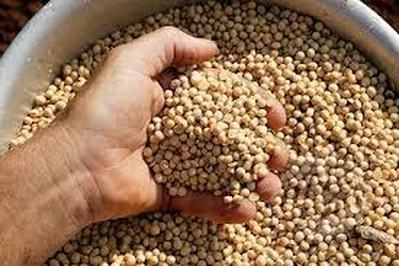 Soja
Soja
Proizvodnja soje će donijeti još
jedan rekord u 2014.g.
Prema nivou proizvodnje soje iz 2013.g. i pozitivnim izgledima za ovu godinu , Paragvaj očekuje da će ostati jedna od najvećih država za prehrambenu proizvodnju u svijetu. Uz liderstvo predsjednika Horacia Cartesa, proizvodnja organskih poljoprivrednih proizvoda u Paragvaju će povećati svoje prisustvo na međunarodnim tržištima i očekivanja su visoka uz pretpostavku da potencijalni prihod ostvaren izvozom pomogne smanjenju razine siromaštva i poboljšanju životnog standarda u zemlji. Po istovjetnoj logici, kako saznajem, Republika Turska će nastaviti širiti svoje poslovne veze s Paragvajom, uz povećanje nivoa uvezenih poljoprivrednih proizvoda iz zemlja koja nema izlaz na more, prije svega organskog šećera, soe i proizvoda od soje.
Proizvodnja soje ima posebno mjesto na listi paragvajskih roba - uz organski šećer, škroba manioke, kukuruza, uspona i visoke kvalitete goveđeg mesa - koji se tradicionalno izvoze u inostranstvo, dok su se polja plantaža za ovaj vrlo zahtijevni usjev udvostručila u posljednjih nekoliko godina i razine proizvodnje su povećana za sedam puta u manje od jednog desetljeća, zahvaljujući primjeni najnovije („cutting edge“) tehnologije koja zahtijeva značajne i dugoročne investicije od strane proizvođača .
Tokom ove godine, izgledi za proizvodnju zrna soje su vrlo obečavajući, a procjenjuje se da dostići više od 10 miliona tona, što je prekretnica koji će biti još jedan rekord na listi dostignuća Paragvaja kao dodatak oporavku globalnog statusa koji se smatrao svjetskom korpom hljeba.
Roland Segovia, paragvajski stručnjak za međunarodnu trgovinu navodi: "Paragvajska proizvodnja soje je dobila posebnu pažnju, zahvaljujući visokoj kvaliteti i rastu potražnje na međunarodnim tržištima, na prvom Forumu poljoprivrede Južne Amerike, koji je održan u 22. 11. 2013.g., u Foz de Iguazu.“ Paragvaj ima potencijal za proizvednju više od 9 miliona tona soje na površini većoj od 3,2 miliona hektara, dok Benjamin Fernandez Bogado iz dnevnih novina „Diario 5Dias“ iz Asunciona kaže: "Rast i djelotvornost uzgoja su rangirali Paragvaj kao šestog najvećeg izvoznika soje i proizvoda sjemenki ulja u svijetu. Samo protekle godine je ostvaren prihod koji doseže 4,9 milijardi američkih dolara što je ekvivalent za više od 9 milijuna tona proizvodnje."
Poljoprivreda u Paragvaju predstavlja više od 18 % bruto domaćeg proizvoda, a izvoz soje je dostigao više od 50 % iznosa strane valute koji je ušla u zemlju.
U 2014 se očekuju slični uslovi, cijena robe će imati blagi pad, iako je velika tvornica za preradu soje izgrađena u Paragvaju, ali će navedeno donijeti dodatnu vrijednost naciji sa ciljem postizanja odgovarajuće cijene, dok budu imali veći prihod nego 2013.g.
Proizvodnja soje u drugim zemljama Južne Amerike i dalje će rasti i očekuje se do 160 miliona tona u tim zemljama. Od tog iznosa 90 milijuna tona soje bit će proizvedeno u Brazilu, što predstavlja porast od 8 miliona tona. S druge strane, očekuje se 77 miliona tona kukuruza da budu izvezene iz Brazila tokom ove godine. Dobri vremenski uslovi pogoduju regionalnom uzgoju soje koji se procjenjuje da premaše 160 miliona tona.
Prema izjavi gosp. Peter Tasea, naučnog istraživača sa paragvajskih studija "Paragvajska ekonomija će doživjeti snažan rast znatno iznad prosjeka tokom ove godine. Privatna preduzeća i ekonomisti predviđaju sjajni učinak paragvajske privrede, i to je na osnovu rasta sektora prijateljskog rada koji će generirati nova radna mjesta i pružiti više održiv rast u poređenju sa prethodnim godinama."
Paragvaj se pozicionira kao zemlja s značajno većom političkom stabilnošću, snažnim financijskim i ekonomskim rastom i postaje sve više inkluzivno društvo. Istovremeno, Asuncion počinje sa uspostavljanjem ugleda na svjetskim tržištima, sa vlastitim visoko kvalitetnim poljoprivrednim proizvodima, kao i divljenja vrijednom ekonomskom rastu od preko13 % (u 2013.). Ova zemlja se može razviti kao motor razvoja regije i izvan nje.
Prema pisanju „Diario 5Dias“, nacionalnih dnevnih novina usmjerenih na privredu Paragvaja i njenom doprinosu i značajnoj ulozi na međunarodnim tržištima, se navodi: "Javno-privatni savez koji objedinjuje javni i privatni kapital dodatno će osnažiti bankarski sektor, donijeti veću fleksibilnost u monetarnoj politici, kao i izbjeći težak teret koji utječe na najugroženije dijelove društva. Poljoprivredna proizvodnja je ostvarila veliki nivo povjerenja kod stranih investitora koji planiraju izgraditi svoje fabrike, uložiti velike iznose kapitala i uobličiti nove korporacije u različitim sektorima. Svi ovi pozitivni elementi mogu učiniti uspješnom godinu pred nama."
Inicijativa modernizacije poljoprivrednog sistema je jedan od mnogih projekata koje je poduzela vlada predsjednika Horacio Cartesa na nacionalnoj razini, kako bi se smanjilo siromaštvo i povećali standardi uslova života širom Paragvaja. Pod vodstvom predsjednika Cartesa, još jedan ambiciozni plan se odvija na području infrastrukture i javnih radova koji će omogućiti poljoprivrednim proizvođačima da kvalitetnije razmjenjuju robu i usluge sa regionalnim gradskim - tržištima i osiguraju bolju kvalitetu proizvoda.
jedan rekord u 2014.g.
Prema nivou proizvodnje soje iz 2013.g. i pozitivnim izgledima za ovu godinu , Paragvaj očekuje da će ostati jedna od najvećih država za prehrambenu proizvodnju u svijetu. Uz liderstvo predsjednika Horacia Cartesa, proizvodnja organskih poljoprivrednih proizvoda u Paragvaju će povećati svoje prisustvo na međunarodnim tržištima i očekivanja su visoka uz pretpostavku da potencijalni prihod ostvaren izvozom pomogne smanjenju razine siromaštva i poboljšanju životnog standarda u zemlji. Po istovjetnoj logici, kako saznajem, Republika Turska će nastaviti širiti svoje poslovne veze s Paragvajom, uz povećanje nivoa uvezenih poljoprivrednih proizvoda iz zemlja koja nema izlaz na more, prije svega organskog šećera, soe i proizvoda od soje.
Proizvodnja soje ima posebno mjesto na listi paragvajskih roba - uz organski šećer, škroba manioke, kukuruza, uspona i visoke kvalitete goveđeg mesa - koji se tradicionalno izvoze u inostranstvo, dok su se polja plantaža za ovaj vrlo zahtijevni usjev udvostručila u posljednjih nekoliko godina i razine proizvodnje su povećana za sedam puta u manje od jednog desetljeća, zahvaljujući primjeni najnovije („cutting edge“) tehnologije koja zahtijeva značajne i dugoročne investicije od strane proizvođača .
Tokom ove godine, izgledi za proizvodnju zrna soje su vrlo obečavajući, a procjenjuje se da dostići više od 10 miliona tona, što je prekretnica koji će biti još jedan rekord na listi dostignuća Paragvaja kao dodatak oporavku globalnog statusa koji se smatrao svjetskom korpom hljeba.
Roland Segovia, paragvajski stručnjak za međunarodnu trgovinu navodi: "Paragvajska proizvodnja soje je dobila posebnu pažnju, zahvaljujući visokoj kvaliteti i rastu potražnje na međunarodnim tržištima, na prvom Forumu poljoprivrede Južne Amerike, koji je održan u 22. 11. 2013.g., u Foz de Iguazu.“ Paragvaj ima potencijal za proizvednju više od 9 miliona tona soje na površini većoj od 3,2 miliona hektara, dok Benjamin Fernandez Bogado iz dnevnih novina „Diario 5Dias“ iz Asunciona kaže: "Rast i djelotvornost uzgoja su rangirali Paragvaj kao šestog najvećeg izvoznika soje i proizvoda sjemenki ulja u svijetu. Samo protekle godine je ostvaren prihod koji doseže 4,9 milijardi američkih dolara što je ekvivalent za više od 9 milijuna tona proizvodnje."
Poljoprivreda u Paragvaju predstavlja više od 18 % bruto domaćeg proizvoda, a izvoz soje je dostigao više od 50 % iznosa strane valute koji je ušla u zemlju.
U 2014 se očekuju slični uslovi, cijena robe će imati blagi pad, iako je velika tvornica za preradu soje izgrađena u Paragvaju, ali će navedeno donijeti dodatnu vrijednost naciji sa ciljem postizanja odgovarajuće cijene, dok budu imali veći prihod nego 2013.g.
Proizvodnja soje u drugim zemljama Južne Amerike i dalje će rasti i očekuje se do 160 miliona tona u tim zemljama. Od tog iznosa 90 milijuna tona soje bit će proizvedeno u Brazilu, što predstavlja porast od 8 miliona tona. S druge strane, očekuje se 77 miliona tona kukuruza da budu izvezene iz Brazila tokom ove godine. Dobri vremenski uslovi pogoduju regionalnom uzgoju soje koji se procjenjuje da premaše 160 miliona tona.
Prema izjavi gosp. Peter Tasea, naučnog istraživača sa paragvajskih studija "Paragvajska ekonomija će doživjeti snažan rast znatno iznad prosjeka tokom ove godine. Privatna preduzeća i ekonomisti predviđaju sjajni učinak paragvajske privrede, i to je na osnovu rasta sektora prijateljskog rada koji će generirati nova radna mjesta i pružiti više održiv rast u poređenju sa prethodnim godinama."
Paragvaj se pozicionira kao zemlja s značajno većom političkom stabilnošću, snažnim financijskim i ekonomskim rastom i postaje sve više inkluzivno društvo. Istovremeno, Asuncion počinje sa uspostavljanjem ugleda na svjetskim tržištima, sa vlastitim visoko kvalitetnim poljoprivrednim proizvodima, kao i divljenja vrijednom ekonomskom rastu od preko13 % (u 2013.). Ova zemlja se može razviti kao motor razvoja regije i izvan nje.
Prema pisanju „Diario 5Dias“, nacionalnih dnevnih novina usmjerenih na privredu Paragvaja i njenom doprinosu i značajnoj ulozi na međunarodnim tržištima, se navodi: "Javno-privatni savez koji objedinjuje javni i privatni kapital dodatno će osnažiti bankarski sektor, donijeti veću fleksibilnost u monetarnoj politici, kao i izbjeći težak teret koji utječe na najugroženije dijelove društva. Poljoprivredna proizvodnja je ostvarila veliki nivo povjerenja kod stranih investitora koji planiraju izgraditi svoje fabrike, uložiti velike iznose kapitala i uobličiti nove korporacije u različitim sektorima. Svi ovi pozitivni elementi mogu učiniti uspješnom godinu pred nama."
Inicijativa modernizacije poljoprivrednog sistema je jedan od mnogih projekata koje je poduzela vlada predsjednika Horacio Cartesa na nacionalnoj razini, kako bi se smanjilo siromaštvo i povećali standardi uslova života širom Paragvaja. Pod vodstvom predsjednika Cartesa, još jedan ambiciozni plan se odvija na području infrastrukture i javnih radova koji će omogućiti poljoprivrednim proizvođačima da kvalitetnije razmjenjuju robu i usluge sa regionalnim gradskim - tržištima i osiguraju bolju kvalitetu proizvoda.
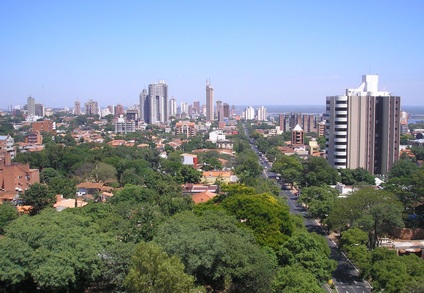 Asuncion
Asuncion
Stvaranje napretka
u međunarodnoj trgovini
Paragvaj je 2011.g. bio deveti svjetski izvoznik mesa bez kostiju, mentola, eteričnih ulja i agrumsa. Zemlja je osjetila povećanje izvoza govedine odmah nakon sezone epidemije goveđe bolesti koja se dogodila u periodu između septembra 2011.g. i januara 2012.g.
Od ukupnog iznosa izvoza govedine, 21.000 kilograma se sastojalo od jestivih unutarnjih organa, što je dovelo u 2012.g. do dodatne zarade za paragvajske izvoznike govedine, dosegnuvši više od 87 miliona dolara.
Rusija zauzima prvo mjesto među 23 zemlje uvoznice jestivih unutarnjih organa od Asunciona. Azijskog diva slijede Hong Kong, Gabon, Angola, Vijetnam i Demokratska Republika Kongo.
U toku ove godine, glavno odredište za paragvajske goveđe proizvode i dalje ostaje Rusija, sa 70 % od ukupne izvezene količine, Brazil je na drugom mjestu sa 14 %, a Angola i Izrael su na trećem odnosno na četvrtom mjestu.
Međunarodni tržišni učešće Paragvaja od izvoza govedine je u porastu; meso njegove stoku se smatra da je mekanog i nježnog okusa koji je različit od goveđih proizvoda koje izvoze Argentina i Brazil.
Paragvajska industrija ispaše stoke je u potpunosti ovisna o organski uzgojenoj hrani koja se daje životinjama, i to je razlog zbog čega zemlje poput Rusije, pa čak i Brazila, radije uvoze meso iz ove kopnene zemlje za koju se smatra da ima potencijal obebjeđenja hrane za cijeli svijet.
Prema riječima dr. Blas Oddonea, DVM, lokalnog stručnjaka po pitanju trenutnih kapaciteta izvoza govedine "izvoz govedine je značajno porastao u 2012.g. u zemlji bez izlaza na more, unatoč mnogim zdravstvenim problemima životinja s kojima se suočavaju farmeri. Prošle godine iz Paragvaja je izvezeno ukupno 186.289.829 kilograma govedine, dosegnuvši više od 903 miliona dolara u vrijednosti i osiguravši više od 105 miliona dolara porasta prihoda u odnosu na stanje iz 201.g."
u međunarodnoj trgovini
Paragvaj je 2011.g. bio deveti svjetski izvoznik mesa bez kostiju, mentola, eteričnih ulja i agrumsa. Zemlja je osjetila povećanje izvoza govedine odmah nakon sezone epidemije goveđe bolesti koja se dogodila u periodu između septembra 2011.g. i januara 2012.g.
Od ukupnog iznosa izvoza govedine, 21.000 kilograma se sastojalo od jestivih unutarnjih organa, što je dovelo u 2012.g. do dodatne zarade za paragvajske izvoznike govedine, dosegnuvši više od 87 miliona dolara.
Rusija zauzima prvo mjesto među 23 zemlje uvoznice jestivih unutarnjih organa od Asunciona. Azijskog diva slijede Hong Kong, Gabon, Angola, Vijetnam i Demokratska Republika Kongo.
U toku ove godine, glavno odredište za paragvajske goveđe proizvode i dalje ostaje Rusija, sa 70 % od ukupne izvezene količine, Brazil je na drugom mjestu sa 14 %, a Angola i Izrael su na trećem odnosno na četvrtom mjestu.
Međunarodni tržišni učešće Paragvaja od izvoza govedine je u porastu; meso njegove stoku se smatra da je mekanog i nježnog okusa koji je različit od goveđih proizvoda koje izvoze Argentina i Brazil.
Paragvajska industrija ispaše stoke je u potpunosti ovisna o organski uzgojenoj hrani koja se daje životinjama, i to je razlog zbog čega zemlje poput Rusije, pa čak i Brazila, radije uvoze meso iz ove kopnene zemlje za koju se smatra da ima potencijal obebjeđenja hrane za cijeli svijet.
Prema riječima dr. Blas Oddonea, DVM, lokalnog stručnjaka po pitanju trenutnih kapaciteta izvoza govedine "izvoz govedine je značajno porastao u 2012.g. u zemlji bez izlaza na more, unatoč mnogim zdravstvenim problemima životinja s kojima se suočavaju farmeri. Prošle godine iz Paragvaja je izvezeno ukupno 186.289.829 kilograma govedine, dosegnuvši više od 903 miliona dolara u vrijednosti i osiguravši više od 105 miliona dolara porasta prihoda u odnosu na stanje iz 201.g."
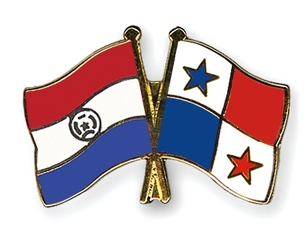 vezane zastave Paname i Paragvaja
vezane zastave Paname i Paragvaja
Panama je još jedan važan trgovinski partner Paragvaja. Obje zemlje su proslavile 20. godišnjicu početka bilateralne suradnje, koja je značajno razvijena u posljednjih nekoliko godina, uglavnom u sektorima trgovine, turizma i u saradnji u ratu protiv organiziranog kriminala i izručenja zatvorenika. Prijateljski odnosi Paragvaja sa Panamom su omogućili da Copa -a, Vodeća avionska kompanija uvede direktne letove između Asuncion i Panama City-ja , i to od 2007.g.
Paragvajske vlasti su izuzetno uključenje i neprestano razmjenjuju vrijedne informacije i znanje sa svojim panamskom kolegama, posebno u područjima kao što su: proizvodnja hidroelektrana i najnovije primijenjene tehnologije unutar navedenog, programe dvojezičnih osposobljavanja za oružane snage i pomoći u poboljšanju performansi javno - zdravstvenih projekata.
Sa druge strane, Panama City dijeli svoje uspješno i dugo iskustvo sa Asuncionom, posebno u prevozu roba i upravljanju tereta, lučke uprave, liječenju tropskih bolesti, reforme financijskog sistema i socijalnim programima stambenog zbrinjavanja.
Krajem 2012.g. ministarstva Paname i Paragvaja su potpisala bilateralni sporazum koji će dodatno potaknuti i promovirati bilateralnu trgovinu. Opsežno partnerstvo i saradnja između Asunciona i Panama City-ja dodatno se zasniva na drugom važnom stupu te bilateralne trgovinske razmjene. U 2010.g. kapacitet proizvda izvezenih iz Paragvaja u Panamu se udvostručio i iznosio je više od 13,7 miliona dolara u poređenju sa prethodnom godinom, koja se sastojala u iznosu od samo 6 miliona dolara. U 2011.g., izvoz iz Paragvaja je dosegao novčane vrijednosti od više od 6,8 miliona dolara, a uvozni proizvodi iz Paname iznosili su 3,9 miliona dolara .
Bilateralni trgovinski odnosi su bili uglavnom u korist Paragvaja iako potonji nije narod rođen na okeanu. Postoji velika prilika za obje zemlje da unaprijede vlastite strategije prema maksimalnom korištenju bogatstva prirodnih resursa Paragvaja i povoljnog geografskog položaja Paname, a to su kvalitete koje bi neizmjerno mogle obnoviti i oživjeti privredu oba naroda.
20.5.2014.
Paragvajske vlasti su izuzetno uključenje i neprestano razmjenjuju vrijedne informacije i znanje sa svojim panamskom kolegama, posebno u područjima kao što su: proizvodnja hidroelektrana i najnovije primijenjene tehnologije unutar navedenog, programe dvojezičnih osposobljavanja za oružane snage i pomoći u poboljšanju performansi javno - zdravstvenih projekata.
Sa druge strane, Panama City dijeli svoje uspješno i dugo iskustvo sa Asuncionom, posebno u prevozu roba i upravljanju tereta, lučke uprave, liječenju tropskih bolesti, reforme financijskog sistema i socijalnim programima stambenog zbrinjavanja.
Krajem 2012.g. ministarstva Paname i Paragvaja su potpisala bilateralni sporazum koji će dodatno potaknuti i promovirati bilateralnu trgovinu. Opsežno partnerstvo i saradnja između Asunciona i Panama City-ja dodatno se zasniva na drugom važnom stupu te bilateralne trgovinske razmjene. U 2010.g. kapacitet proizvda izvezenih iz Paragvaja u Panamu se udvostručio i iznosio je više od 13,7 miliona dolara u poređenju sa prethodnom godinom, koja se sastojala u iznosu od samo 6 miliona dolara. U 2011.g., izvoz iz Paragvaja je dosegao novčane vrijednosti od više od 6,8 miliona dolara, a uvozni proizvodi iz Paname iznosili su 3,9 miliona dolara .
Bilateralni trgovinski odnosi su bili uglavnom u korist Paragvaja iako potonji nije narod rođen na okeanu. Postoji velika prilika za obje zemlje da unaprijede vlastite strategije prema maksimalnom korištenju bogatstva prirodnih resursa Paragvaja i povoljnog geografskog položaja Paname, a to su kvalitete koje bi neizmjerno mogle obnoviti i oživjeti privredu oba naroda.
20.5.2014.
|
| ||||||||||||
By Peter Tase and Sabahudin Hadžialić
DIOGEN focus: Paraguay
President Cartes’ government to invest US$1.5 billion in
Sustainable Rural Projects
Jorge Gattini, the Paraguayan Minister of Agriculture and Livestock, announced Monday in the Presidential Palace that his ministry will invest more than US$ 1.5 Billion towards the development of agricultural and livestock production in the nation. These investments will take place in the technological innovation sector of agricultural production and is part of the overall national plan of investment that reaches over 16 Billion US Dollars.
According to Minister Jorge Gattini, these expenses “will go towards the betterment of technological equipments, cutting edge innovation tools in the rural areas, including a vast system of irrigation, construction of greenhouses as well as provide a sustainable system of production for Summer time. Another important objective is the improvement of soil quality and its output. This visionary project has the support of multilateral organizations as well as the national public – private associations, it will also receive funding from the national treasure.”
According to Minister Gattini, the Ministry of Agriculture and Livestock will begin to develop irrigation systems for 30 thousand acres in the next five years, and will build 5,000 greenhouses in order to secure a constant agricultural production throughout the year; this will have a great impact towards maintaining a more stable price in the markets of agricultural products and increase domestic consumption in national markets as well as encourage exports in the neighboring countries.
DIOGEN focus: Paraguay
President Cartes’ government to invest US$1.5 billion in
Sustainable Rural Projects
Jorge Gattini, the Paraguayan Minister of Agriculture and Livestock, announced Monday in the Presidential Palace that his ministry will invest more than US$ 1.5 Billion towards the development of agricultural and livestock production in the nation. These investments will take place in the technological innovation sector of agricultural production and is part of the overall national plan of investment that reaches over 16 Billion US Dollars.
According to Minister Jorge Gattini, these expenses “will go towards the betterment of technological equipments, cutting edge innovation tools in the rural areas, including a vast system of irrigation, construction of greenhouses as well as provide a sustainable system of production for Summer time. Another important objective is the improvement of soil quality and its output. This visionary project has the support of multilateral organizations as well as the national public – private associations, it will also receive funding from the national treasure.”
According to Minister Gattini, the Ministry of Agriculture and Livestock will begin to develop irrigation systems for 30 thousand acres in the next five years, and will build 5,000 greenhouses in order to secure a constant agricultural production throughout the year; this will have a great impact towards maintaining a more stable price in the markets of agricultural products and increase domestic consumption in national markets as well as encourage exports in the neighboring countries.

Soybean Production Will Break Another Record in 2014
According to the soybean production levels of 2013 and positive prospects for this year, Paraguay is expected to remain one of the largest food producing nations in the world. Under the leadership of President Horacio Cartes, Paraguay’s organic agricultural products will increase their presence in the international markets and expectations are high as the potential income generated by exports will help lower the poverty levels and improve the living standards at home. In the same token, the Republic of Turkey will continue to expand its commercial ties with Paraguay as well as increase the level of imported agricultural products from the landlocked country, primarily organic sugar, soybean and its derivatives.
Soybean production has earned a special place in the list of Paraguayan commodities – in addition to organic sugar, manioc starch, corn, rise and high quality beef – which are traditionally exported abroad, the plantation fields for this highly demanded crop have doubled in the last few years and production levels have multiplied seven times in less than a decade, thanks to the application of a cutting edge technology which requires substantial and long term investments from producers.
During the current year, the prospects for soy bean production are very promising, it is estimated to reach over 10 million tons, a mile stone that will be another record in Paraguay’s list of accomplishments in addition to recovering its global status of being considered as the world’s bread basket.
According to Mr. Rolando Segovia, a Paraguayan expert in International Trade: "Paraguayan soybean production received special attention, thanks to its high quality and growing demand in international markets, in the first Forum of Agriculture of South America, held in November 22, 2013, in Foz de Iguazu." Paraguay has the potential to produce more than 9 million tons of soybeans in a surface of more the 3.2 million acres. According to Benjamin Fernandez Bogado of Diario 5 Dias in Asuncion, “growth and cultivation efficiency have ranked Paraguay as the sixth largest exporter of soybeans and oil seed products in the world. Only last year it has generated a revenue that reaches US$ 4.9 billion equivalent to more than 9 million tons of production.” Agriculture in Paraguay represents over 18 percent of the Gross Domestic Product as well as soybean exports have reached more than 50 percent of the foreign currency that has entered the country.
In 2014 are expected similar conditions, price of commodities will have a slight decrease even though a large factory of soy processing is built in Paraguay and that will bring an added value to nation in order to reach suitable prices, while reaching a higher revenue than 2013.
Soybean production in the other South American Countries will continue to increase, it is expected to reach 160 million tons. From this amount 90 million tons of soy will be produced by Brazil, this represents an increase of 8 million tons. On the other hand 77 million tons of corn are expected to be exported by Brazil during this year. Good weather conditions favor a regional cultivation of soy which is estimated to exceed 160 million tons.
According to Mr. Peter Tase, a research scholar of Paraguayan studies, "the Paraguayan economy will enjoy a robust growth of well above average during this year. Private companies and economists predict a splendid performance of Paraguayan economy, this is due to the growth of a labor friendly sector which will generate new employment and provide a more sustainable growth if compared to previous years."
Paraguay is positioning itself as a country with a greater political stability, robust financial and economic growth and is becoming a more inclusive society. At the same time Asuncion is starting to establish a reputation in the global markets, with its high quality agricultural products, as well as its admirable economic growth of over 13 per cent (in 2013). This country could emerge as an engine of development in the region and beyond.
According to Diario 5 Dias, a national daily newspaper focused on Paraguay’s economy and its contribution and significant role in international markets: “the Public Private Alliance which combines public and private capital will further strengthen the banking sector, bring greater flexibility in monetary policy as well as avoid a heavy burden that affects the most vulnerable sectors of society. Agricultural production has generated a great level of trust towards foreign investors who are planning to establish their factories, invest large amounts of capital and start new corporations in various sectors. All these positive elements could bring a successful year ahead of us.”
The agricultural systems’ modernization initiative is one of many projects that are taken by the government of President Horacio Cartes at the national level, in order to reduce poverty and increase the standards of living conditions throughout Paraguay. Under the leadership of President Cartes, another ambitious plan is taking place in the area of infrastructure and public works, which will allow agricultural producers to better commute with regional city – markets and provide better quality products.
According to the soybean production levels of 2013 and positive prospects for this year, Paraguay is expected to remain one of the largest food producing nations in the world. Under the leadership of President Horacio Cartes, Paraguay’s organic agricultural products will increase their presence in the international markets and expectations are high as the potential income generated by exports will help lower the poverty levels and improve the living standards at home. In the same token, the Republic of Turkey will continue to expand its commercial ties with Paraguay as well as increase the level of imported agricultural products from the landlocked country, primarily organic sugar, soybean and its derivatives.
Soybean production has earned a special place in the list of Paraguayan commodities – in addition to organic sugar, manioc starch, corn, rise and high quality beef – which are traditionally exported abroad, the plantation fields for this highly demanded crop have doubled in the last few years and production levels have multiplied seven times in less than a decade, thanks to the application of a cutting edge technology which requires substantial and long term investments from producers.
During the current year, the prospects for soy bean production are very promising, it is estimated to reach over 10 million tons, a mile stone that will be another record in Paraguay’s list of accomplishments in addition to recovering its global status of being considered as the world’s bread basket.
According to Mr. Rolando Segovia, a Paraguayan expert in International Trade: "Paraguayan soybean production received special attention, thanks to its high quality and growing demand in international markets, in the first Forum of Agriculture of South America, held in November 22, 2013, in Foz de Iguazu." Paraguay has the potential to produce more than 9 million tons of soybeans in a surface of more the 3.2 million acres. According to Benjamin Fernandez Bogado of Diario 5 Dias in Asuncion, “growth and cultivation efficiency have ranked Paraguay as the sixth largest exporter of soybeans and oil seed products in the world. Only last year it has generated a revenue that reaches US$ 4.9 billion equivalent to more than 9 million tons of production.” Agriculture in Paraguay represents over 18 percent of the Gross Domestic Product as well as soybean exports have reached more than 50 percent of the foreign currency that has entered the country.
In 2014 are expected similar conditions, price of commodities will have a slight decrease even though a large factory of soy processing is built in Paraguay and that will bring an added value to nation in order to reach suitable prices, while reaching a higher revenue than 2013.
Soybean production in the other South American Countries will continue to increase, it is expected to reach 160 million tons. From this amount 90 million tons of soy will be produced by Brazil, this represents an increase of 8 million tons. On the other hand 77 million tons of corn are expected to be exported by Brazil during this year. Good weather conditions favor a regional cultivation of soy which is estimated to exceed 160 million tons.
According to Mr. Peter Tase, a research scholar of Paraguayan studies, "the Paraguayan economy will enjoy a robust growth of well above average during this year. Private companies and economists predict a splendid performance of Paraguayan economy, this is due to the growth of a labor friendly sector which will generate new employment and provide a more sustainable growth if compared to previous years."
Paraguay is positioning itself as a country with a greater political stability, robust financial and economic growth and is becoming a more inclusive society. At the same time Asuncion is starting to establish a reputation in the global markets, with its high quality agricultural products, as well as its admirable economic growth of over 13 per cent (in 2013). This country could emerge as an engine of development in the region and beyond.
According to Diario 5 Dias, a national daily newspaper focused on Paraguay’s economy and its contribution and significant role in international markets: “the Public Private Alliance which combines public and private capital will further strengthen the banking sector, bring greater flexibility in monetary policy as well as avoid a heavy burden that affects the most vulnerable sectors of society. Agricultural production has generated a great level of trust towards foreign investors who are planning to establish their factories, invest large amounts of capital and start new corporations in various sectors. All these positive elements could bring a successful year ahead of us.”
The agricultural systems’ modernization initiative is one of many projects that are taken by the government of President Horacio Cartes at the national level, in order to reduce poverty and increase the standards of living conditions throughout Paraguay. Under the leadership of President Cartes, another ambitious plan is taking place in the area of infrastructure and public works, which will allow agricultural producers to better commute with regional city – markets and provide better quality products.
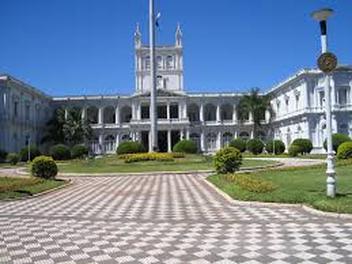
Making Headway in International Trade
In 2011, Paraguay was the World’s 9th exporter of Boneless meat, Menthol, Essential oils and citrus fruits. The country experienced an increase in beef exports immediately after the season of cattle disease outbreak which occurred between September 2011 and January 2012.
Of the total amount of exported beef, 21,000 kilograms consisted of edible internal organs, which brought in 2012 an additional profit for Paraguayan beef exporters, reaching more than $87 million.
Russia is in the first place among the 23 countries importing edible internal organs, from Asuncion. The Asian giant is followed by Hong Kong, Gabon, Angola, Vietnam and Democratic Republic of Congo.
In the course of this year, the main destination for Paraguayan beef products remains Russia, with 70% of the total amount exported, Brazil is in the second place with 14% and Angola and Israel are in the third and fourth places, respectively.
Paraguay’s international market share of beef exports is on the rise; its cattle are considered to have a tender flavor and taste which is different from beef products exported by Argentina and Brazil.
Paraguay’s industry of cattle grazing is fully dependent on organically grown food fed to the animals, which has been cited as the reason why countries such as Russia and even Brazil, prefer to import beef from this landlocked country which is thought to have a potential of providing food for the whole world.
According to Dr. Blas Oddone, DVM, a local expert in Paraguay’s current exporting capacity of beef, “In 2012, the Mediterranean country, experienced a substantial growth in beef exports despite many animal health issues faced by the cattle ranchers. Last year Paraguay exported a total of 186,289,829 kilograms of beef, reaching more than $903 million in value, and securing more than $105 million dollars revenue growth when compared to the balance of 2011.”
In 2011, Paraguay was the World’s 9th exporter of Boneless meat, Menthol, Essential oils and citrus fruits. The country experienced an increase in beef exports immediately after the season of cattle disease outbreak which occurred between September 2011 and January 2012.
Of the total amount of exported beef, 21,000 kilograms consisted of edible internal organs, which brought in 2012 an additional profit for Paraguayan beef exporters, reaching more than $87 million.
Russia is in the first place among the 23 countries importing edible internal organs, from Asuncion. The Asian giant is followed by Hong Kong, Gabon, Angola, Vietnam and Democratic Republic of Congo.
In the course of this year, the main destination for Paraguayan beef products remains Russia, with 70% of the total amount exported, Brazil is in the second place with 14% and Angola and Israel are in the third and fourth places, respectively.
Paraguay’s international market share of beef exports is on the rise; its cattle are considered to have a tender flavor and taste which is different from beef products exported by Argentina and Brazil.
Paraguay’s industry of cattle grazing is fully dependent on organically grown food fed to the animals, which has been cited as the reason why countries such as Russia and even Brazil, prefer to import beef from this landlocked country which is thought to have a potential of providing food for the whole world.
According to Dr. Blas Oddone, DVM, a local expert in Paraguay’s current exporting capacity of beef, “In 2012, the Mediterranean country, experienced a substantial growth in beef exports despite many animal health issues faced by the cattle ranchers. Last year Paraguay exported a total of 186,289,829 kilograms of beef, reaching more than $903 million in value, and securing more than $105 million dollars revenue growth when compared to the balance of 2011.”
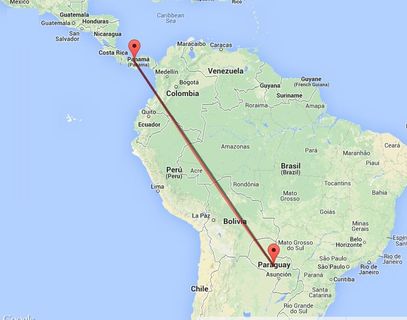
Panama is another important trading partners of Paraguay. Both countries celebrated their 20th anniversary of the beginning of bilateral cooperation, which has grown substantially in the last years, mainly in the sectors of trade, tourism and cooperation in the war against organized crime and extradition of inmates. Paraguay’s friendly relations with Panama have made possible COPA’s, Panama’s airlines’ service flagship, with direct flights between Asuncion and Panama City, since 2007.
Paraguayan authorities are highly engaged and constantly share valuable information and expertise with their Panamanian counterparts, especially in areas such as: hydroelectric production and its latest applied technology, bilingual training programs for the armed forces and assistance in improving the performance of public health projects.
On the other hand, Panama City shares its successful and long experience with Asuncion, particularly in the shipment and cargo management, port administration, treatment of tropical disease, financial systems reform, and social housing programs.
In late 2012, the ministries of Panama and Paraguay signed a bilateral agreement that would further stimulate and promote bilateral trade. The extensive partnership and cooperation between Asuncion and Panama City, is additionally based in another important pillar that of bilateral trade exchange.
In 2010, the capacity of Paraguay’s exported products to Panama was doubled consisting in more than USD 13.7 million as compared to the previous year which consisted in only USD 6 million. In 2011, Paraguayan exports reached a monetary value of more than USD 6.8 million and imported products from Panama totaled USD 3.9 million.
Bilateral trade relations have been predominantly in favor of Paraguay even though the latter is not an „ocean born nation“. There are great opportunity for both countries to rekindle their respective strategies towards maximizing the use of Paraguay’s wealth of natural resources and Panama’s favorable geographic position, such characteristics that would immensely help and reinvigorate the economies of both nations.
20.5.2014
Paraguayan authorities are highly engaged and constantly share valuable information and expertise with their Panamanian counterparts, especially in areas such as: hydroelectric production and its latest applied technology, bilingual training programs for the armed forces and assistance in improving the performance of public health projects.
On the other hand, Panama City shares its successful and long experience with Asuncion, particularly in the shipment and cargo management, port administration, treatment of tropical disease, financial systems reform, and social housing programs.
In late 2012, the ministries of Panama and Paraguay signed a bilateral agreement that would further stimulate and promote bilateral trade. The extensive partnership and cooperation between Asuncion and Panama City, is additionally based in another important pillar that of bilateral trade exchange.
In 2010, the capacity of Paraguay’s exported products to Panama was doubled consisting in more than USD 13.7 million as compared to the previous year which consisted in only USD 6 million. In 2011, Paraguayan exports reached a monetary value of more than USD 6.8 million and imported products from Panama totaled USD 3.9 million.
Bilateral trade relations have been predominantly in favor of Paraguay even though the latter is not an „ocean born nation“. There are great opportunity for both countries to rekindle their respective strategies towards maximizing the use of Paraguay’s wealth of natural resources and Panama’s favorable geographic position, such characteristics that would immensely help and reinvigorate the economies of both nations.
20.5.2014
|
| ||||||||||||
.
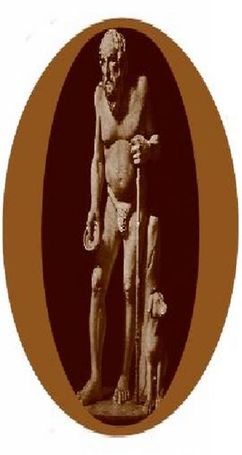
Copyright © 2015 Peter Tase & Sabahudin Hadžialić
Design: Sabi / Autors & Sabahudin Hadžialić. Design LOGO - Stevo Basara.
Freelance gl. i odg. urednik od / Freelance Editor in chief as of 2009: Sabahudin Hadžialić
All Rights Reserved. Publishers and owners: Peter Tase & Sabahudin Hadžialić
Whitefish Bay, WI, United States of America
Diogen pro kultura magazin (Online)
ISSN 2296-0929
Diogen pro kultura magazin (Print)
ISSN 2296-0937
Library of Congress USA / Biblioteka - Knjižnica Kongresa SAD
Contact Editorial board E-mail: [email protected];
Narudžbe/Order: http://www.diogenpro.com/diogen-all-in-one.html
Pošta/Mail USA: Peter Tase, 5023 NORTH BERKELEY BLVD. WHITEFISH BAY, WI, 53217, USA
Pošta/Mail BiH: Sabahudin Hadžialić, Grbavička 32, 71000 Sarajevo i/ili Dr. Wagner 18/II, 70230 Bugojno, Bosna i Hercegovina
Design: Sabi / Autors & Sabahudin Hadžialić. Design LOGO - Stevo Basara.
Freelance gl. i odg. urednik od / Freelance Editor in chief as of 2009: Sabahudin Hadžialić
All Rights Reserved. Publishers and owners: Peter Tase & Sabahudin Hadžialić
Whitefish Bay, WI, United States of America
Diogen pro kultura magazin (Online)
ISSN 2296-0929
Diogen pro kultura magazin (Print)
ISSN 2296-0937
Library of Congress USA / Biblioteka - Knjižnica Kongresa SAD
Contact Editorial board E-mail: [email protected];
Narudžbe/Order: http://www.diogenpro.com/diogen-all-in-one.html
Pošta/Mail USA: Peter Tase, 5023 NORTH BERKELEY BLVD. WHITEFISH BAY, WI, 53217, USA
Pošta/Mail BiH: Sabahudin Hadžialić, Grbavička 32, 71000 Sarajevo i/ili Dr. Wagner 18/II, 70230 Bugojno, Bosna i Hercegovina




